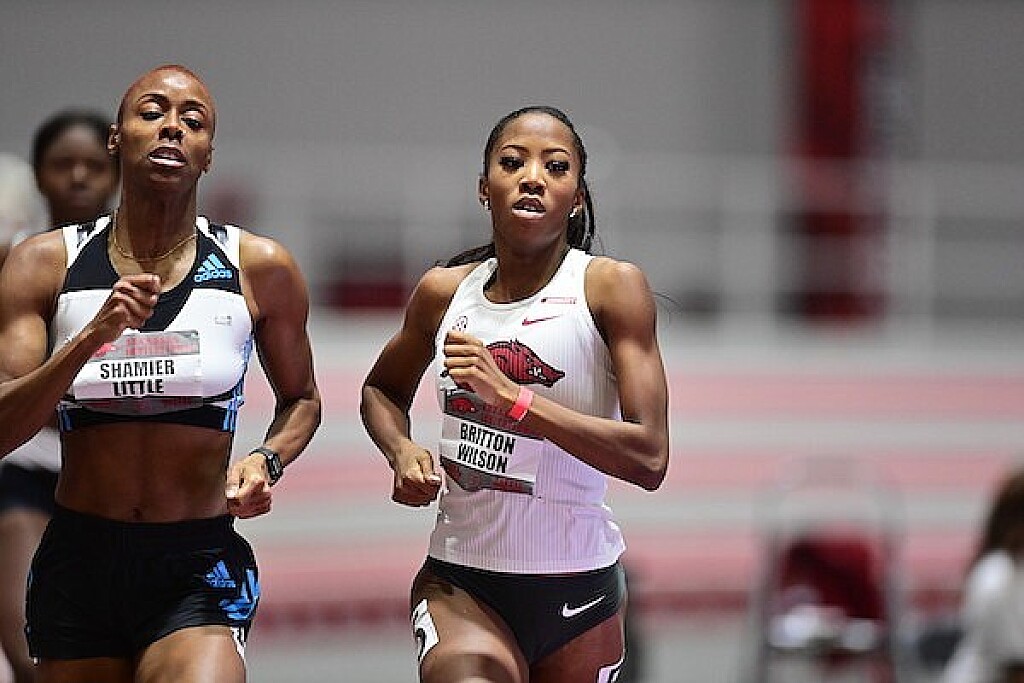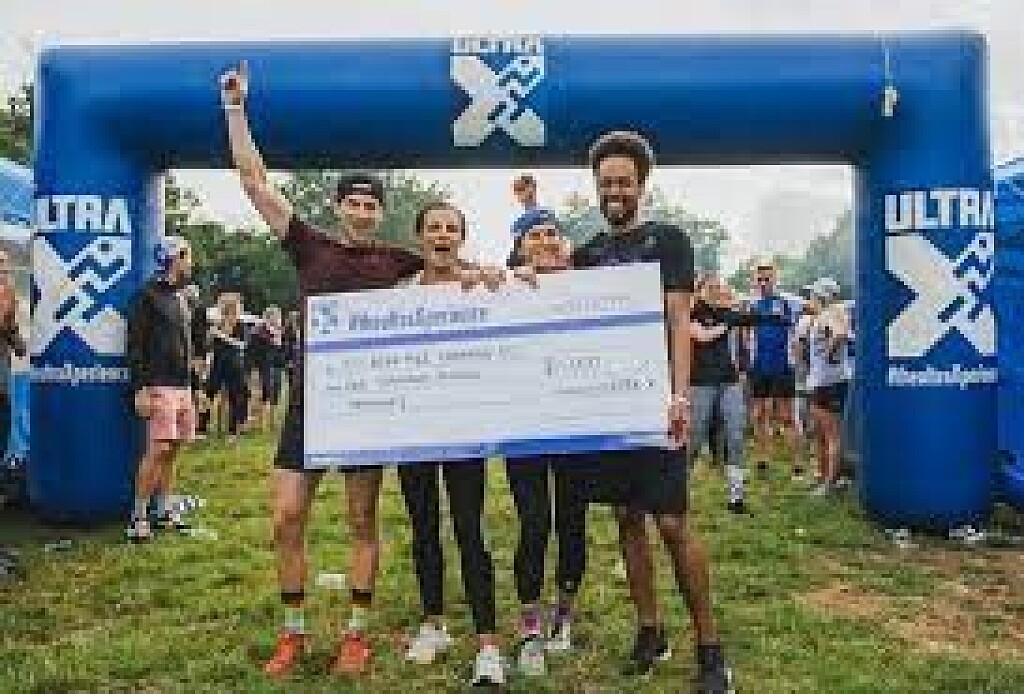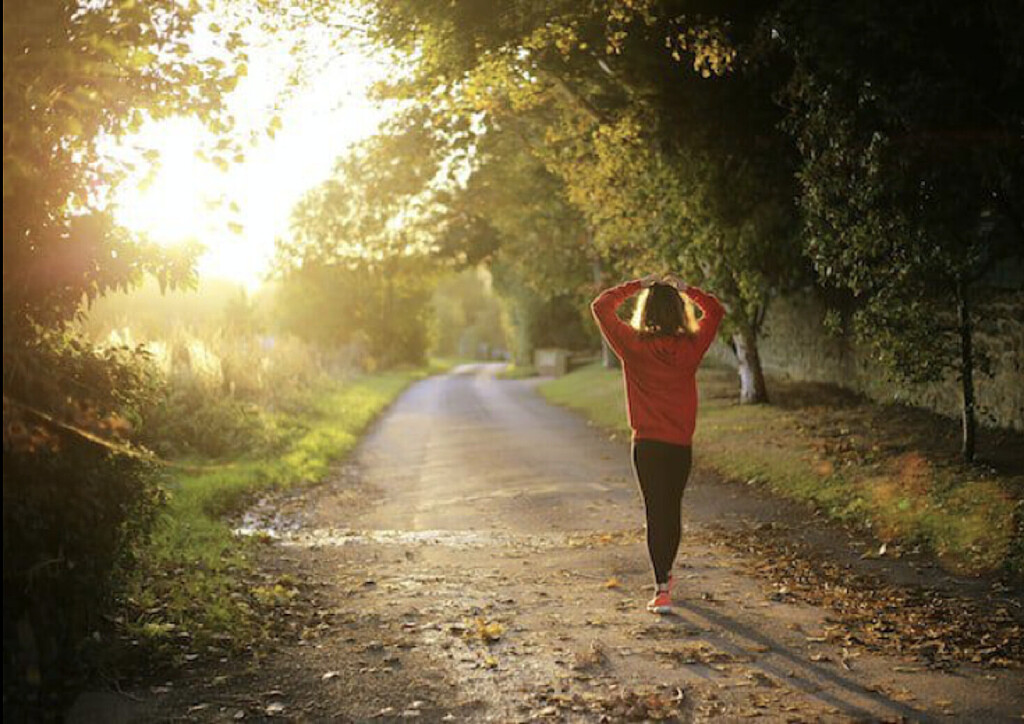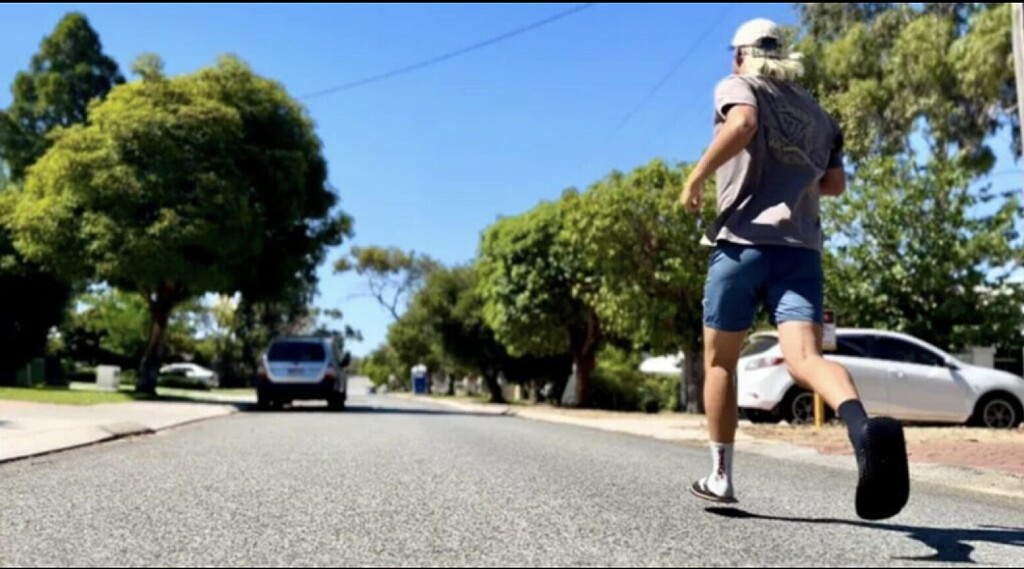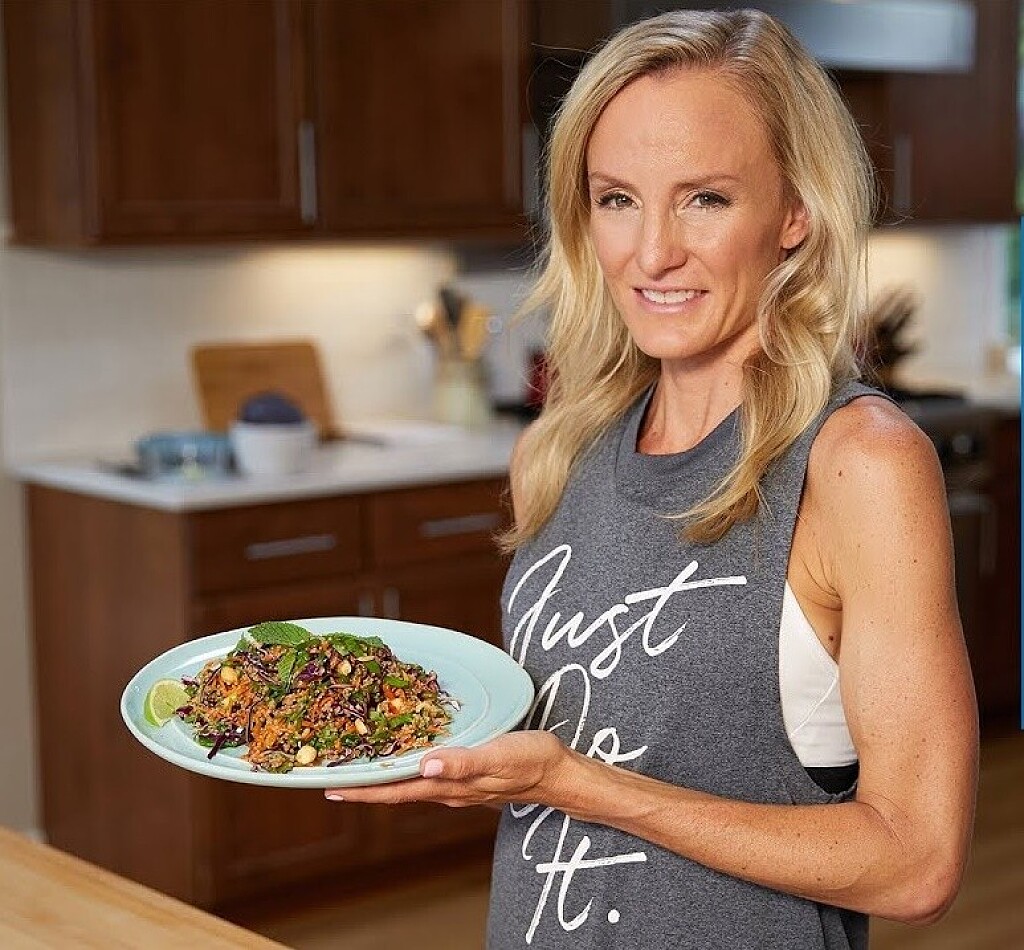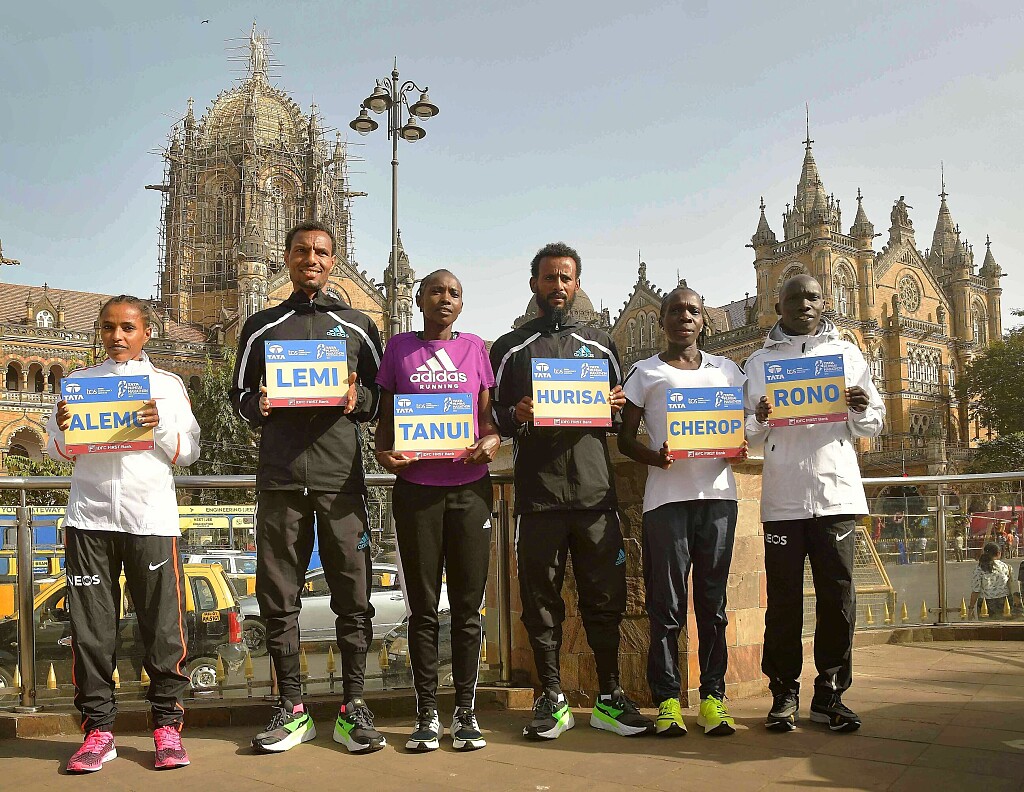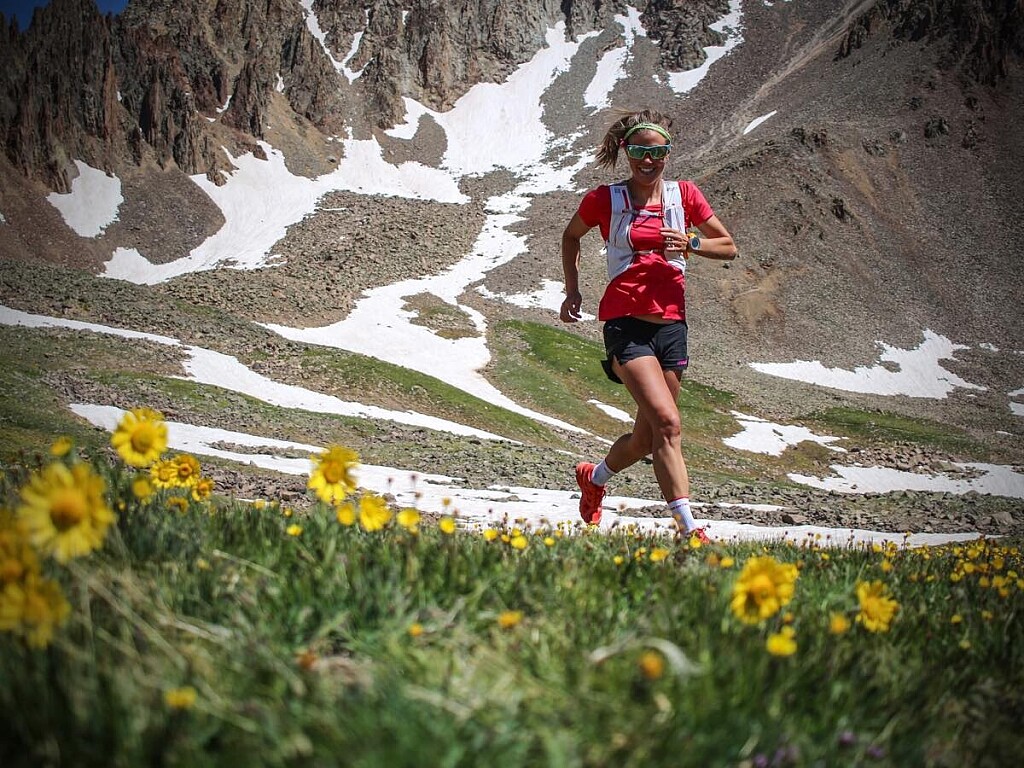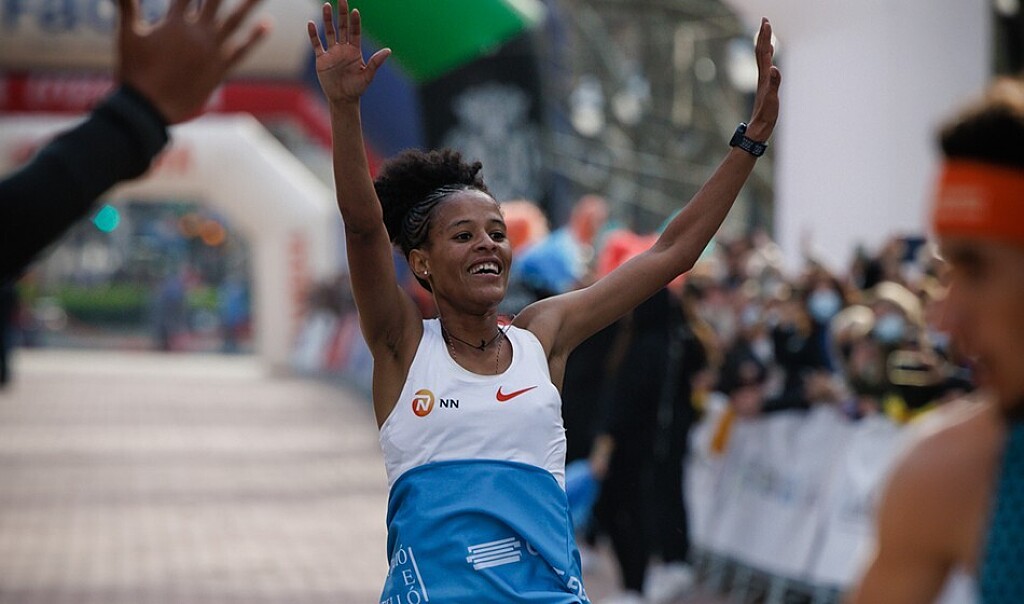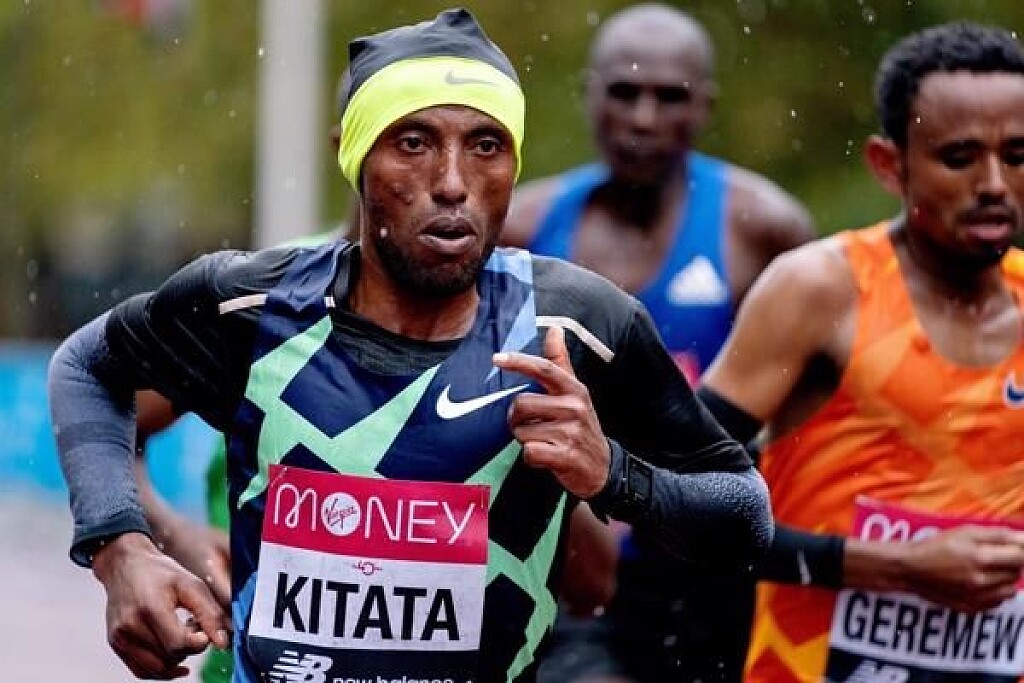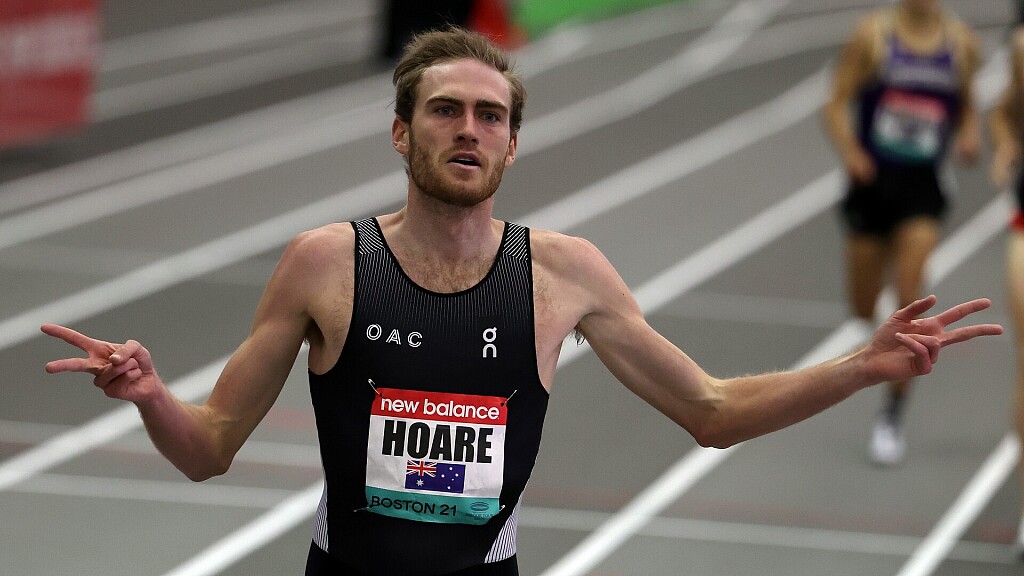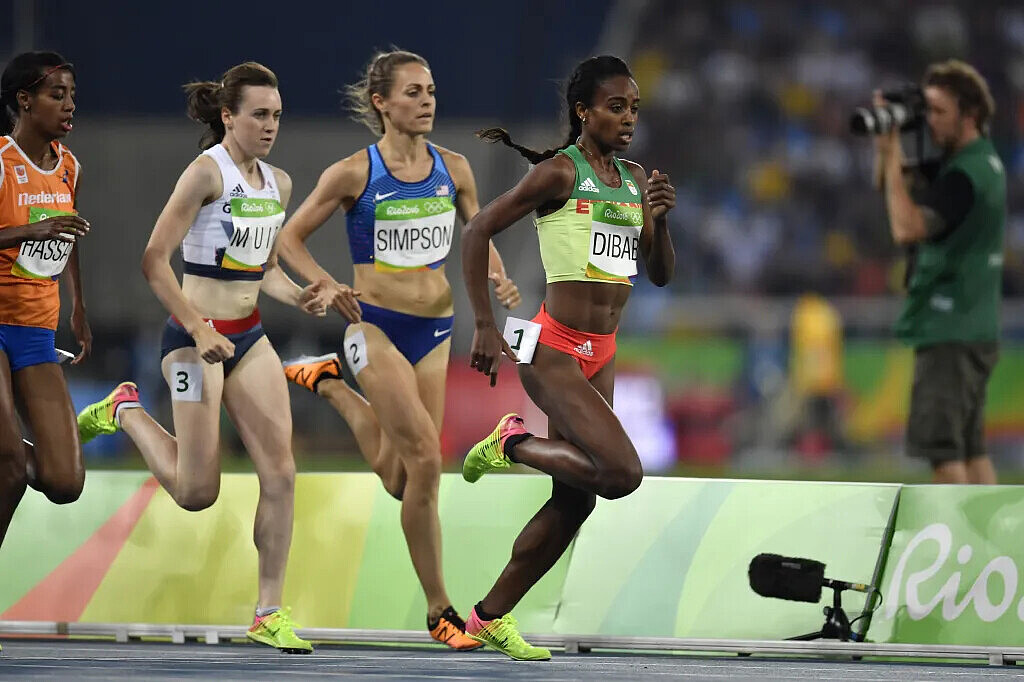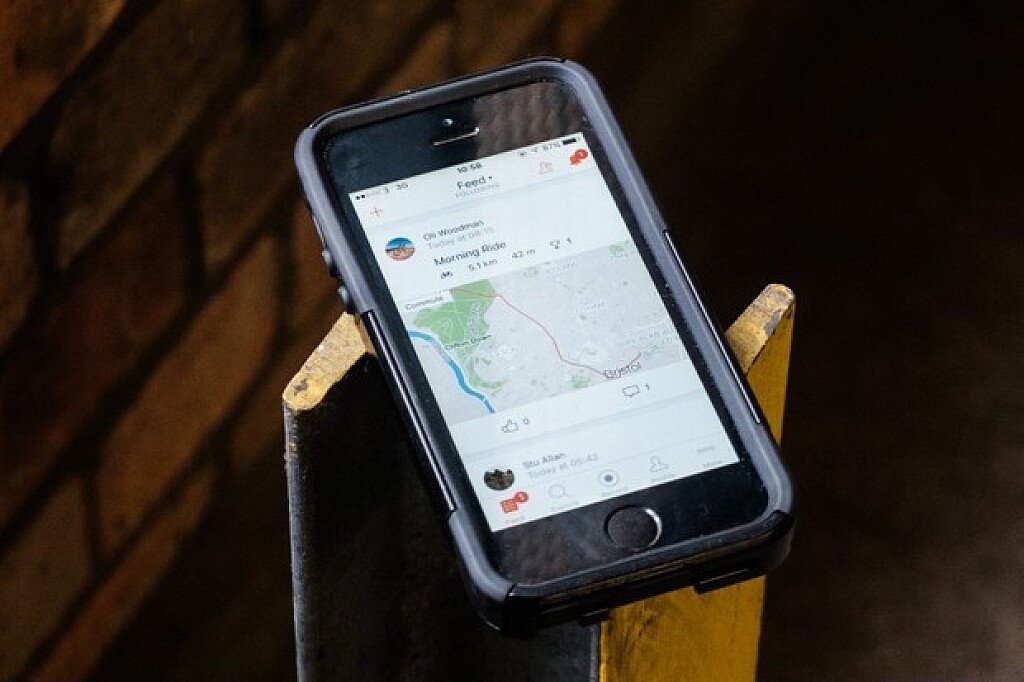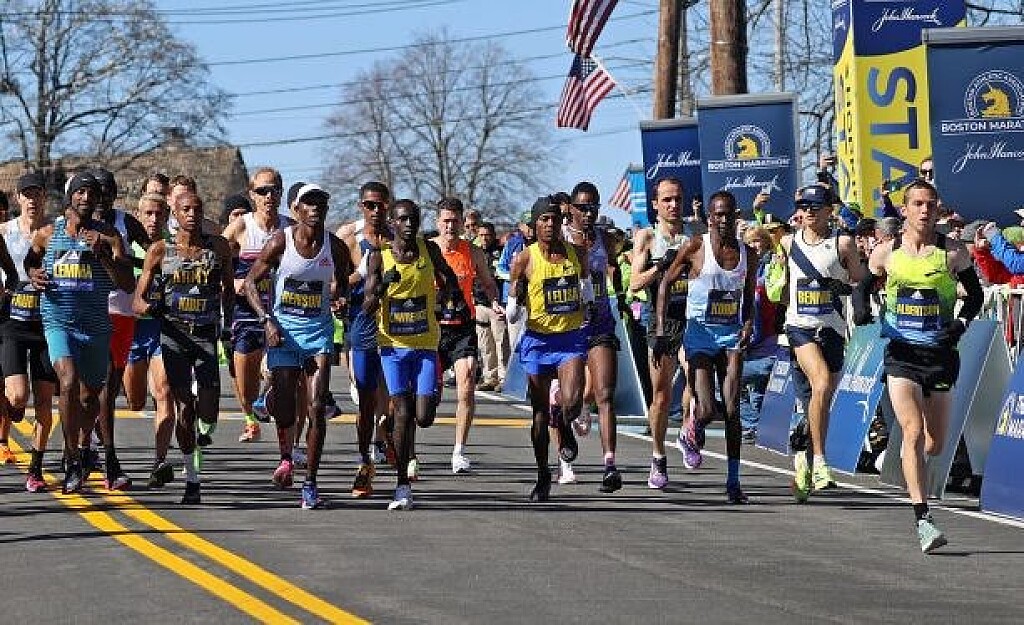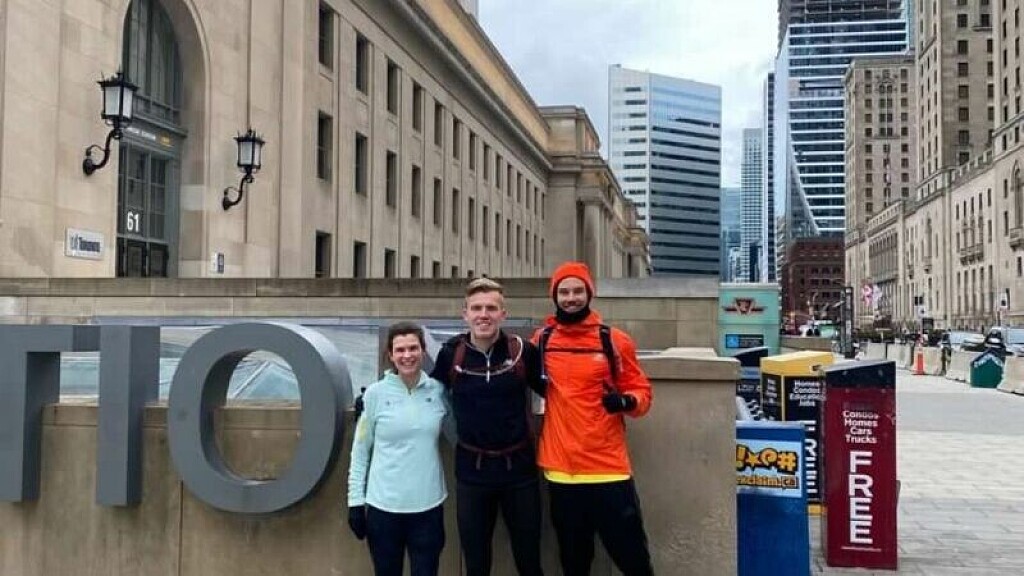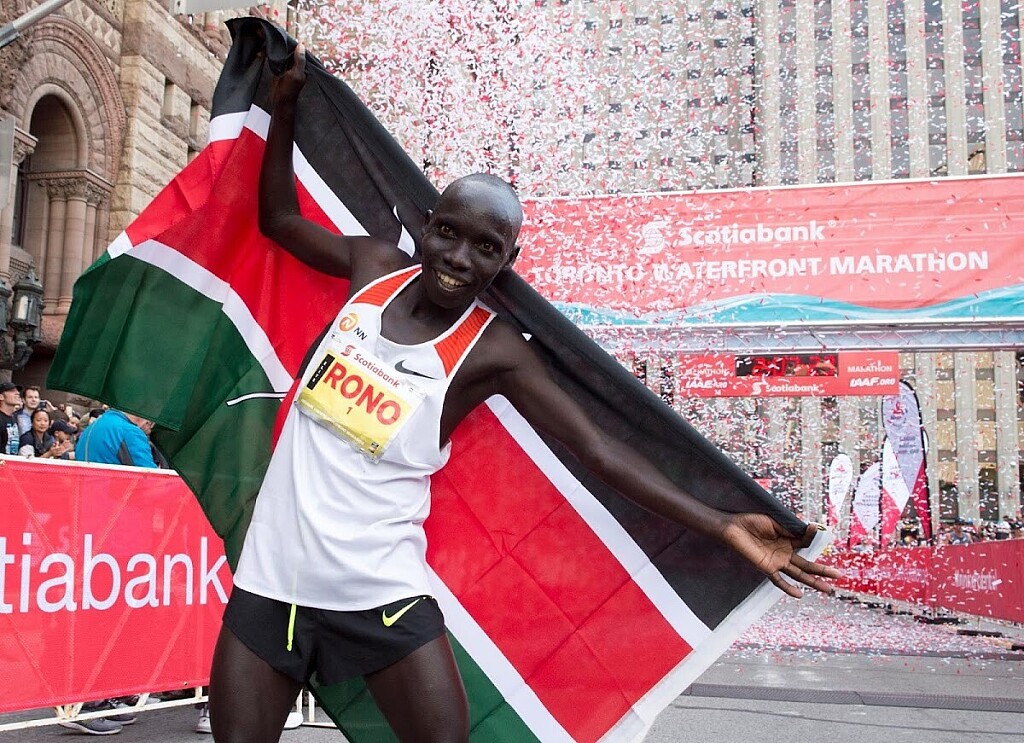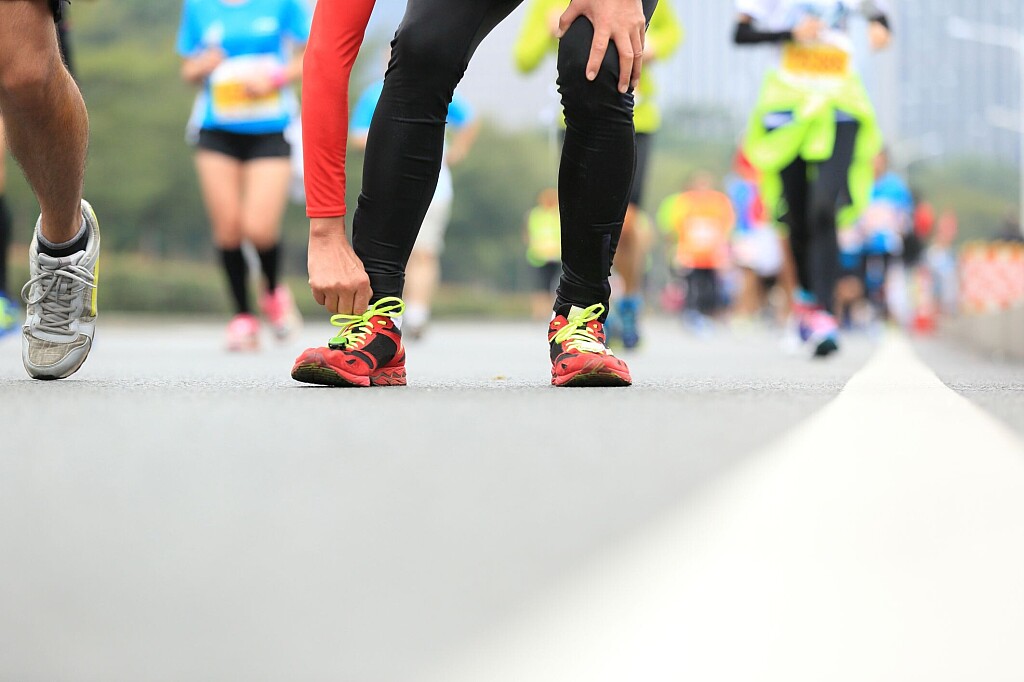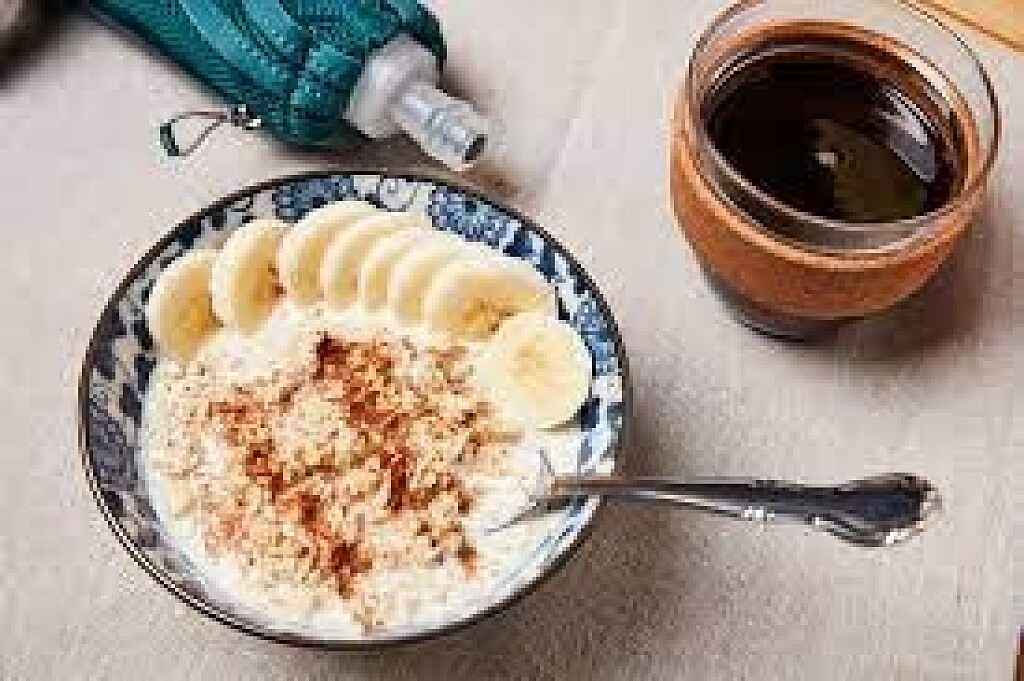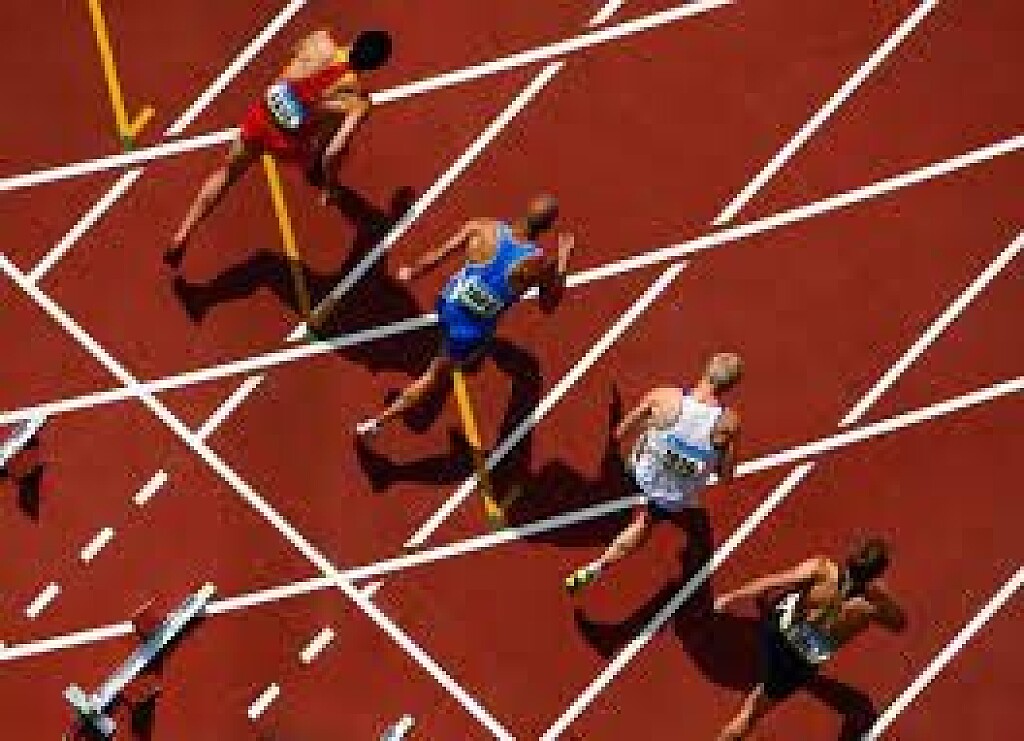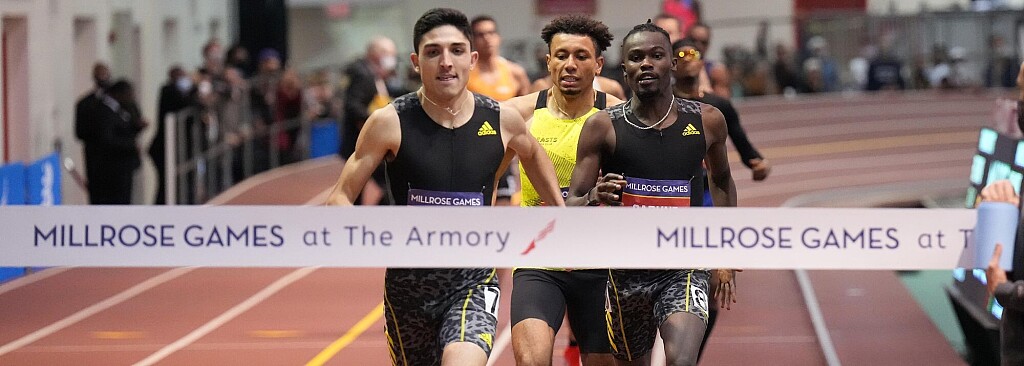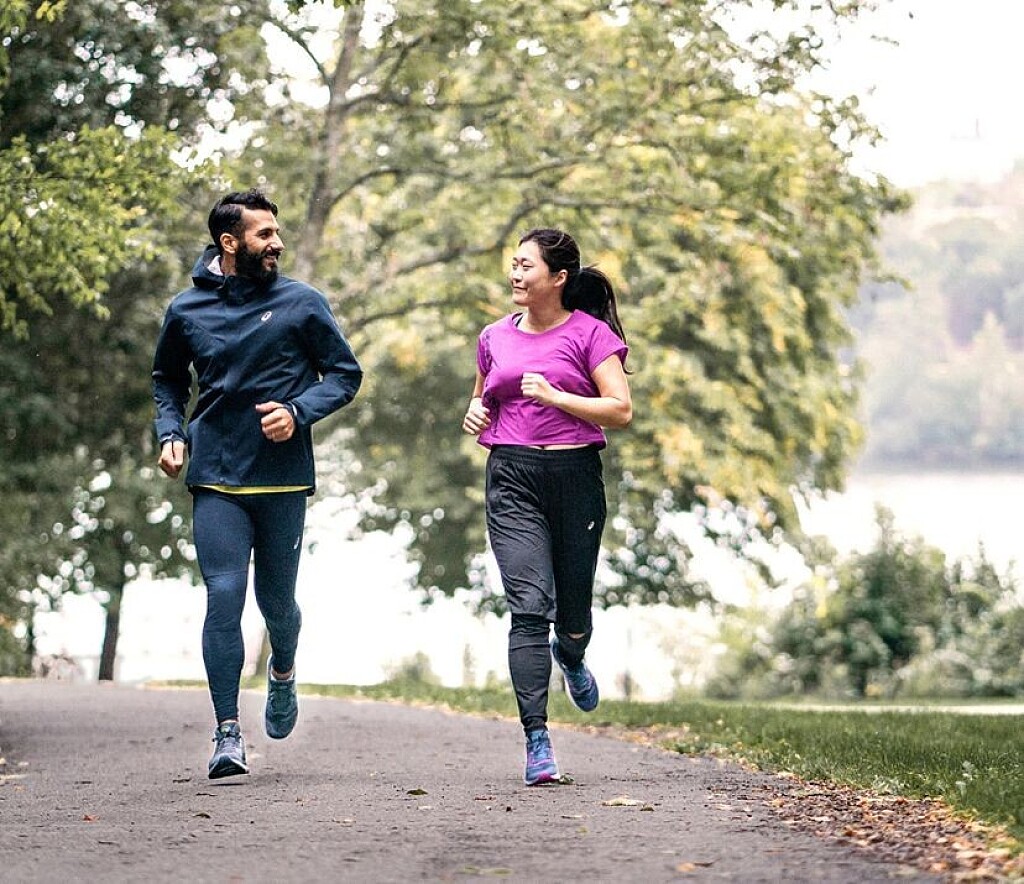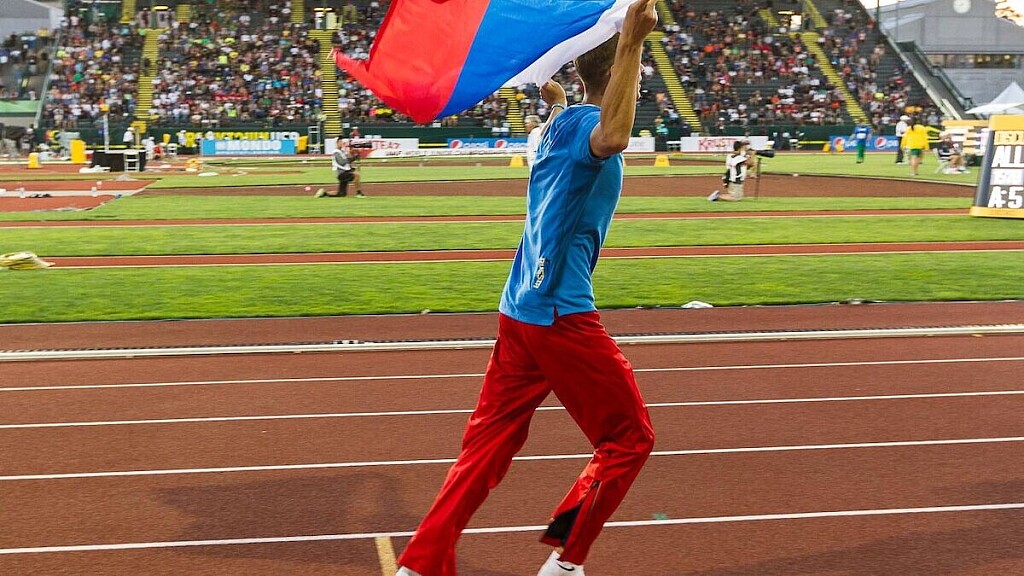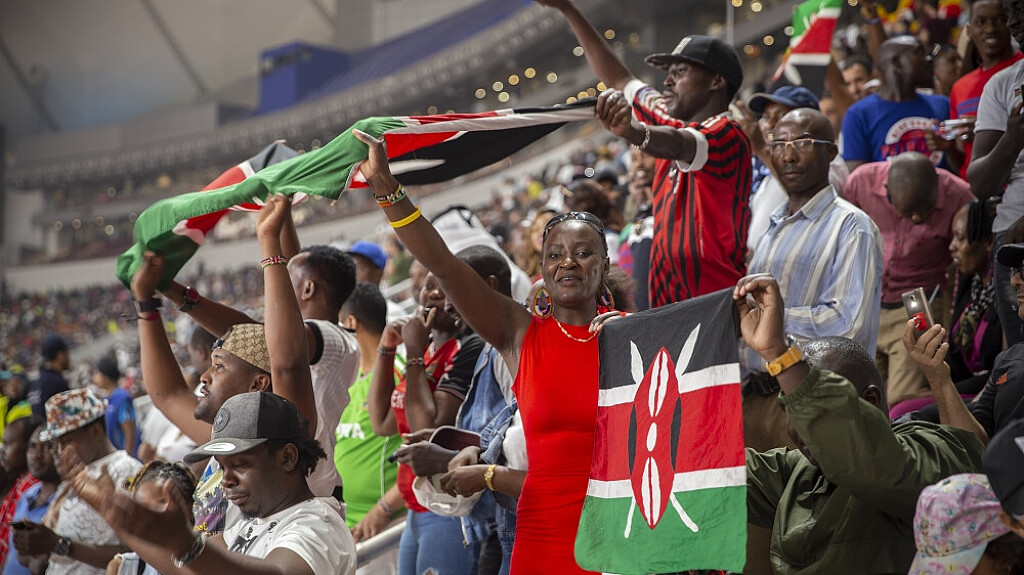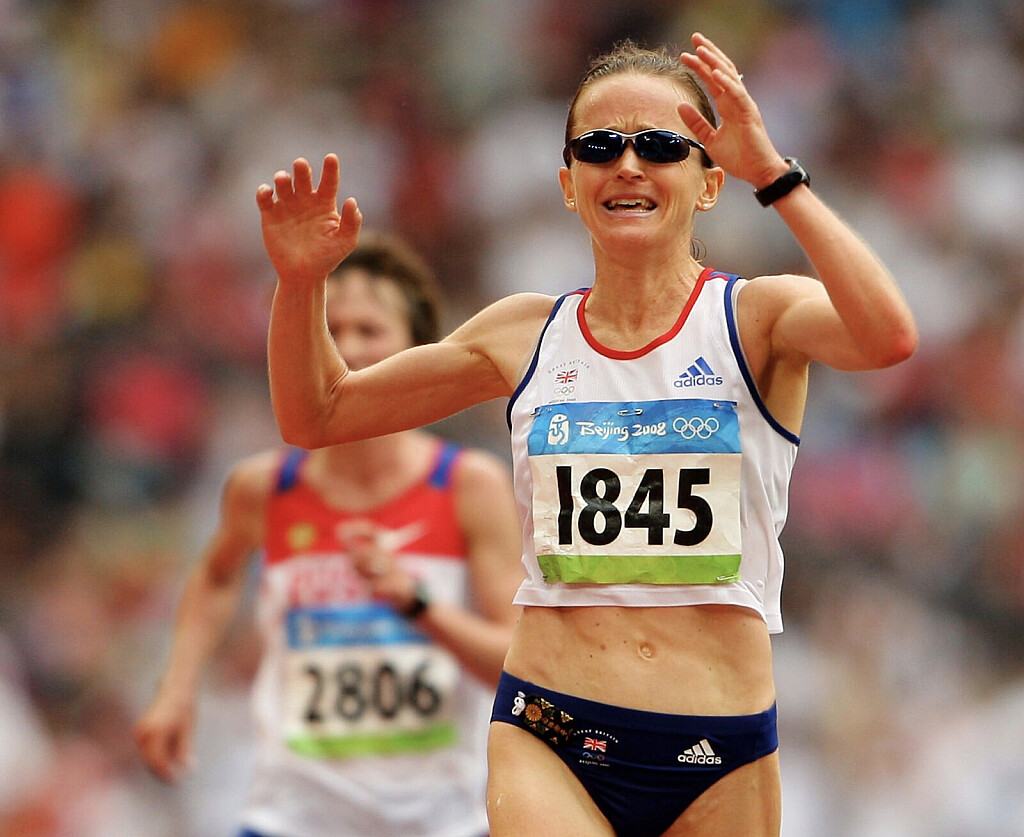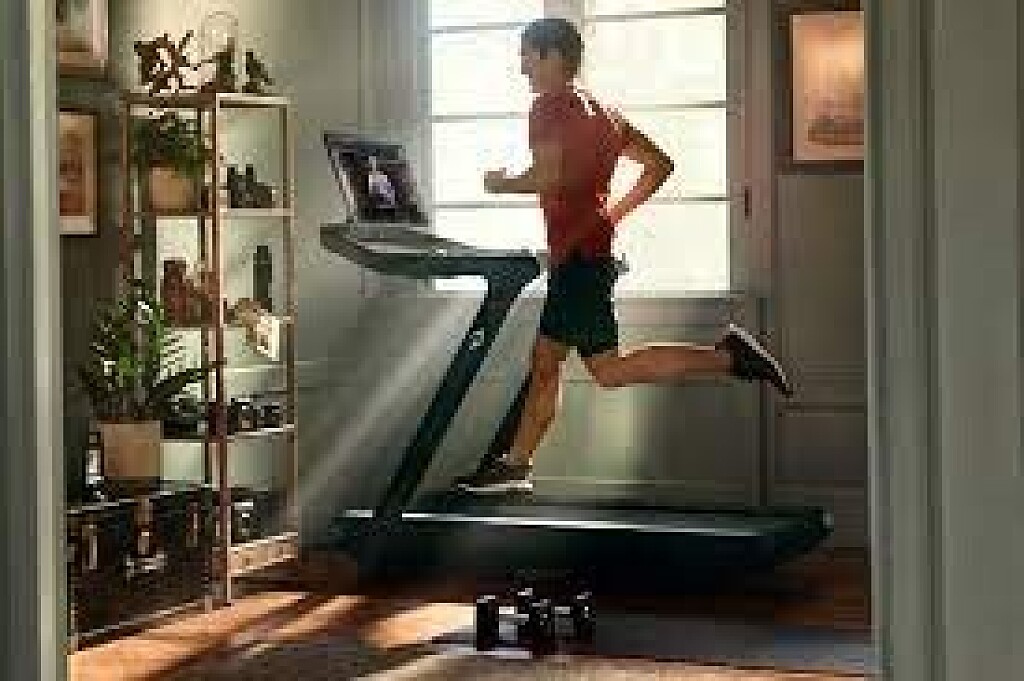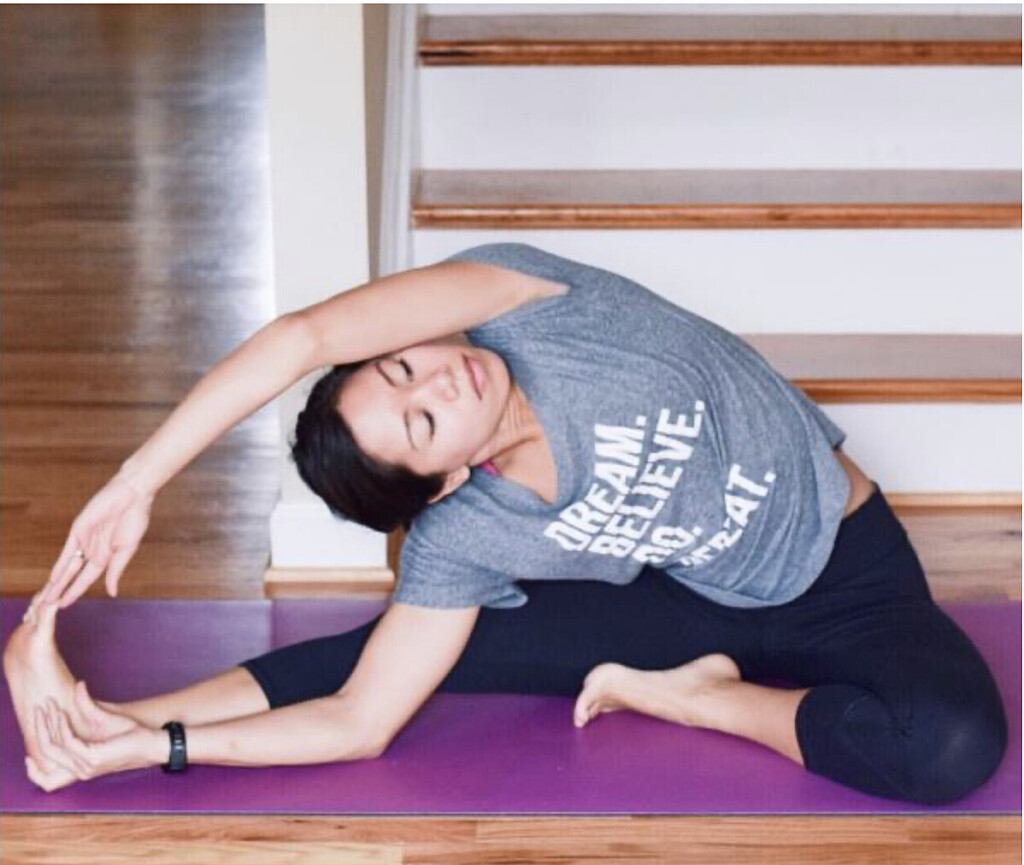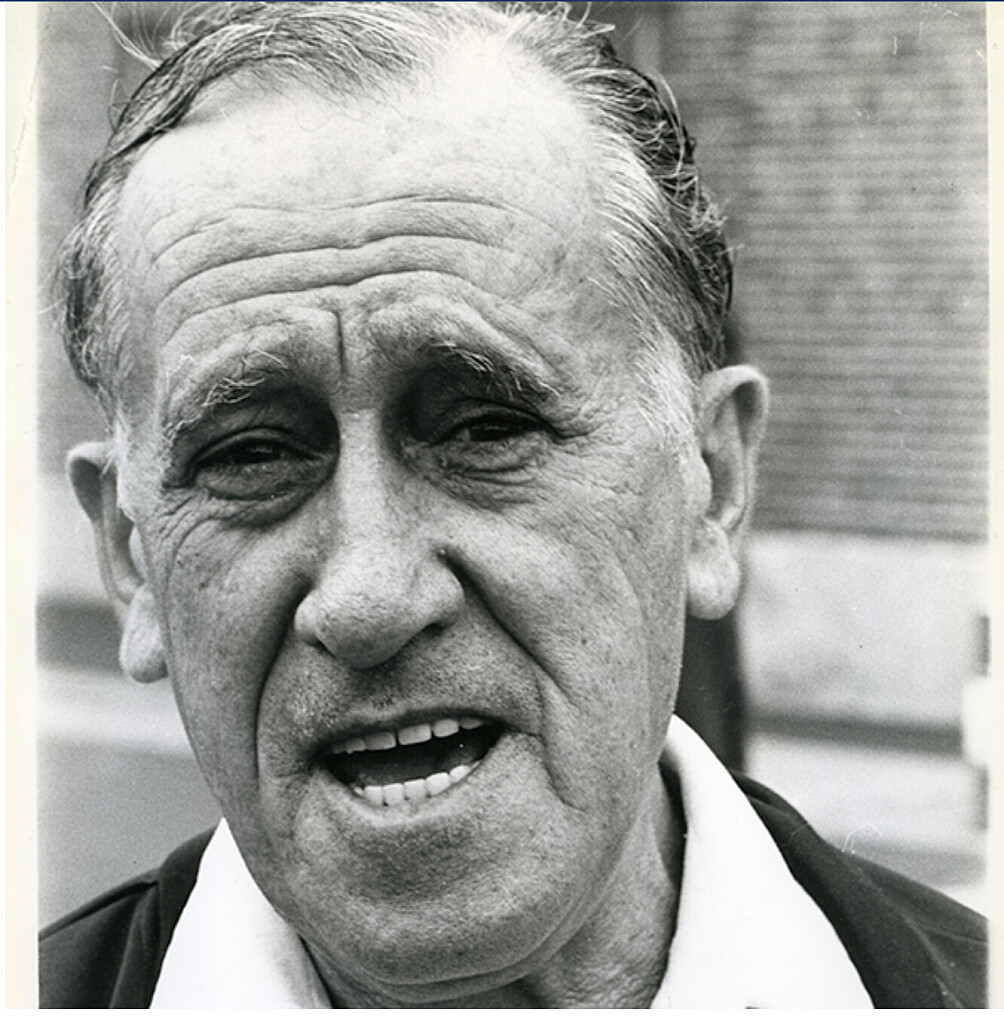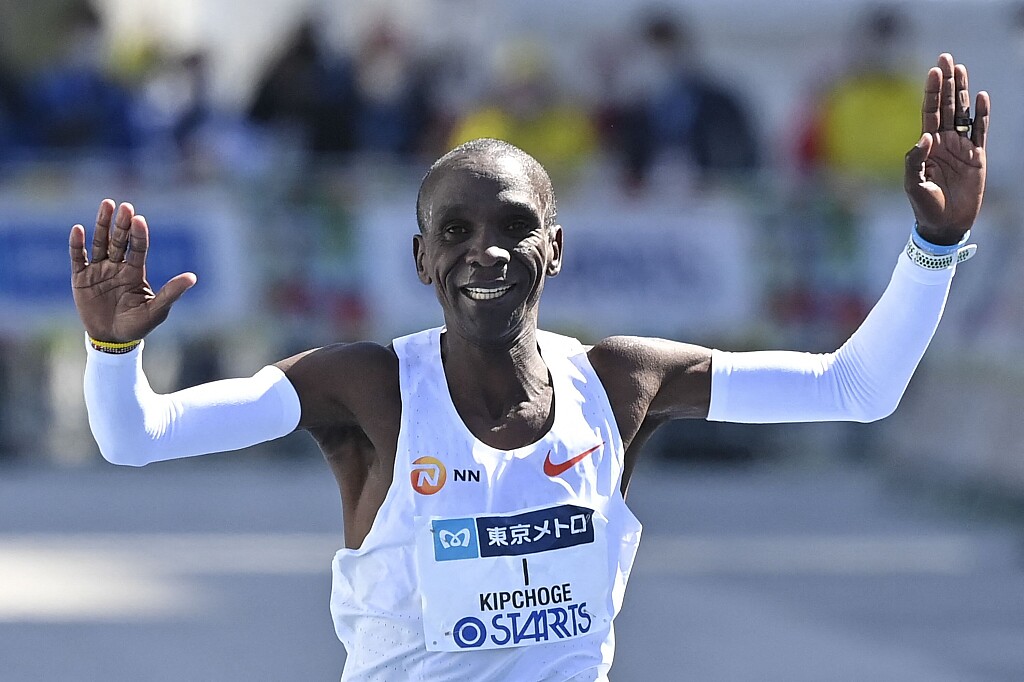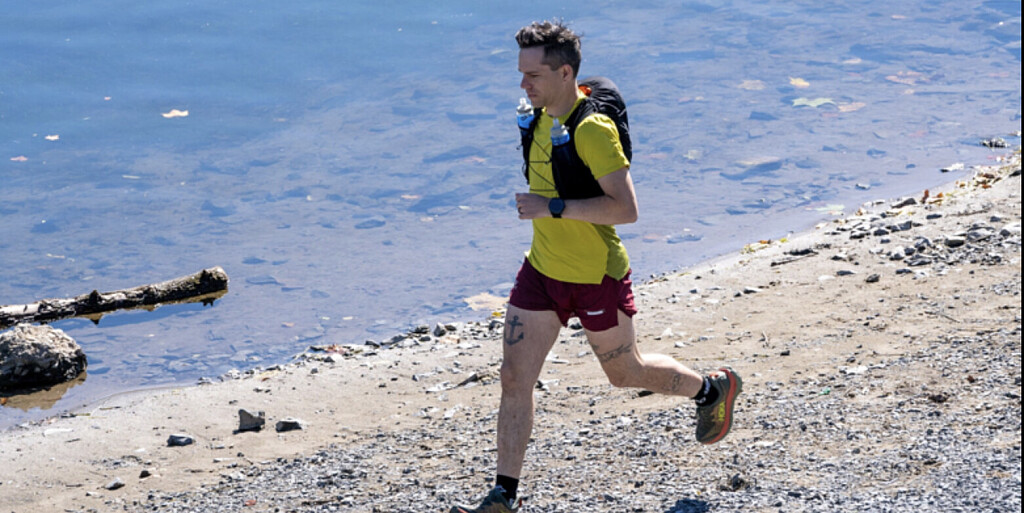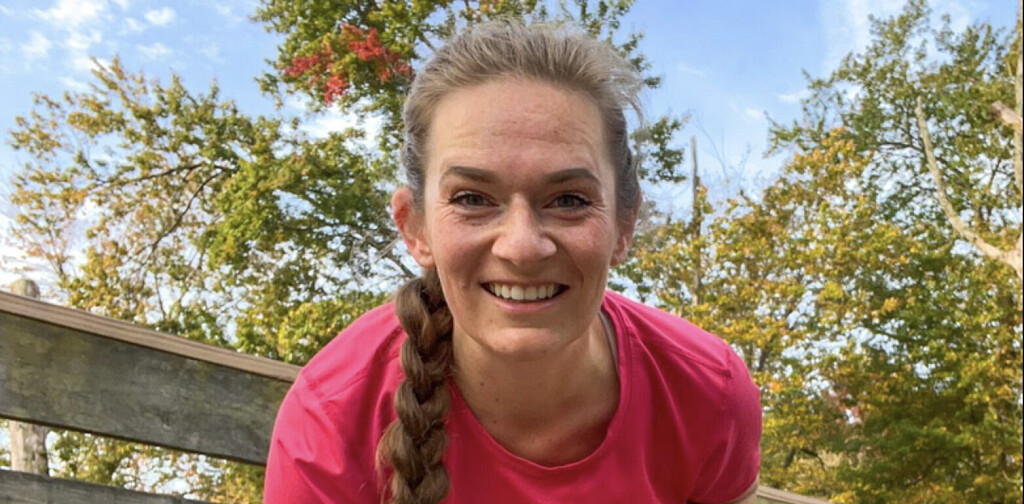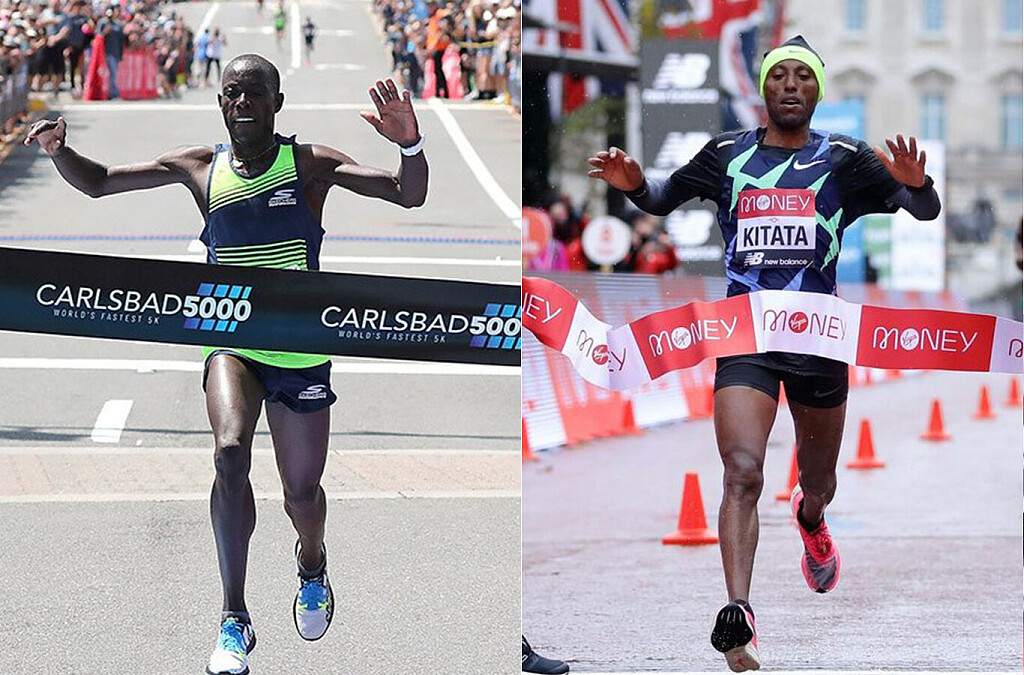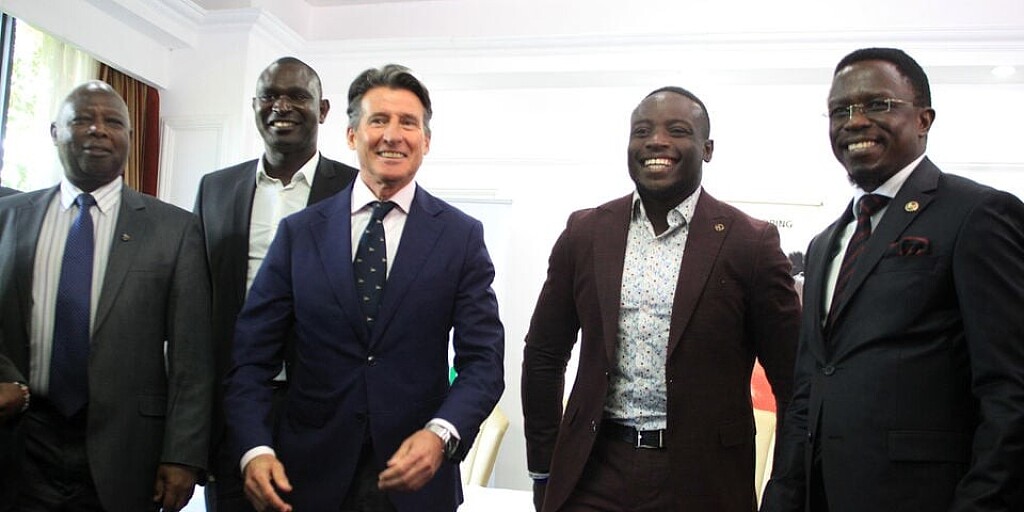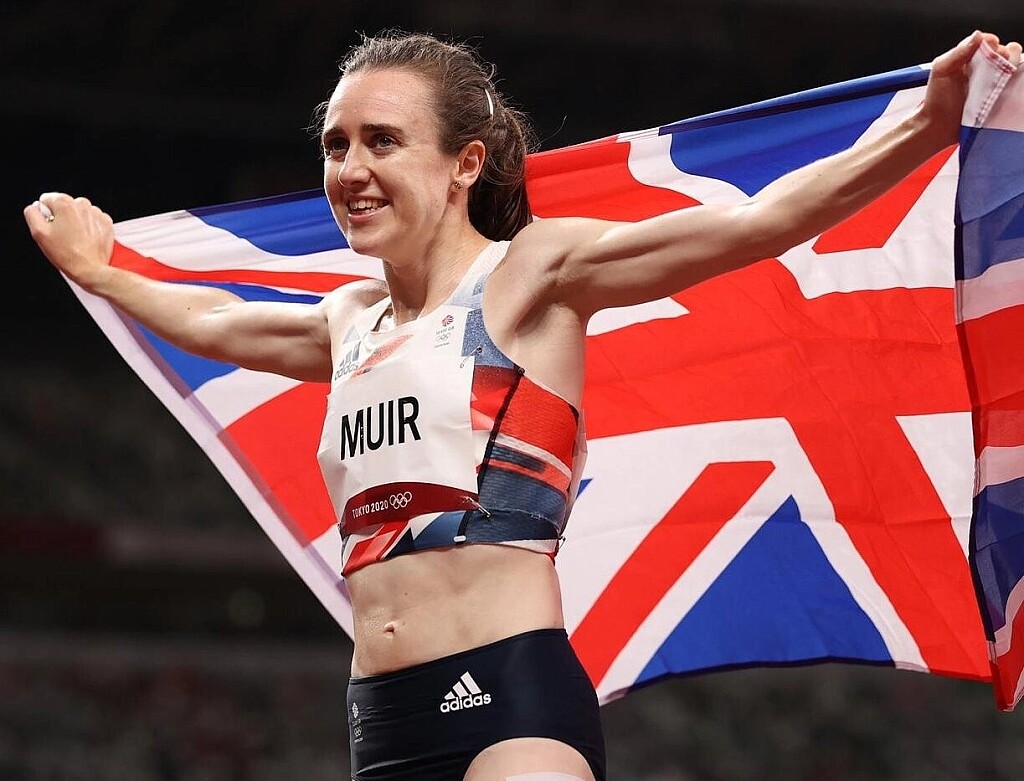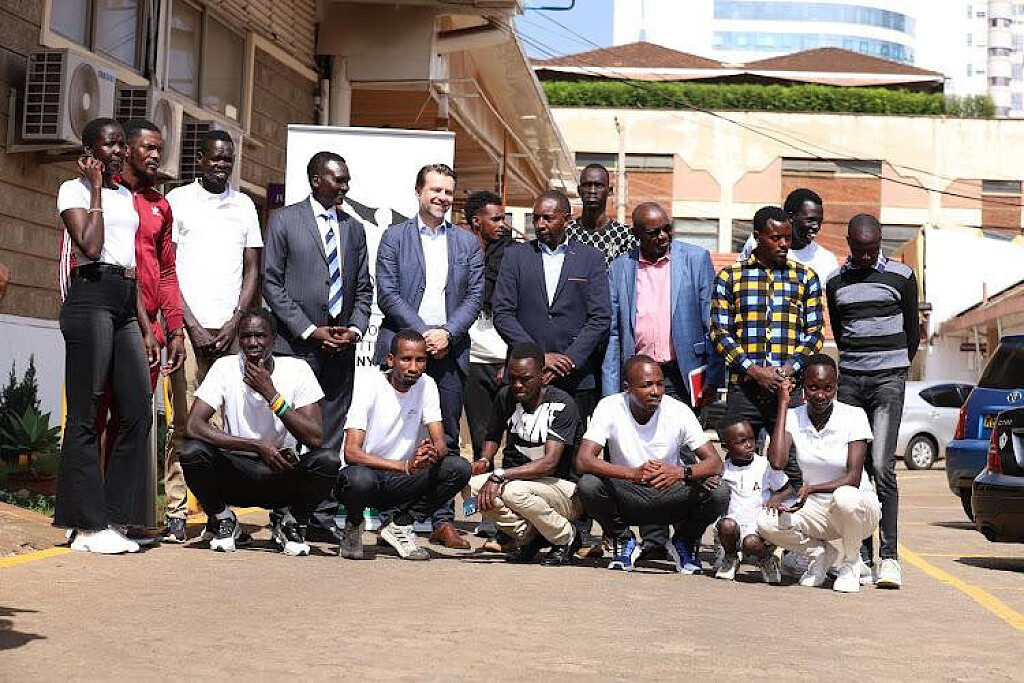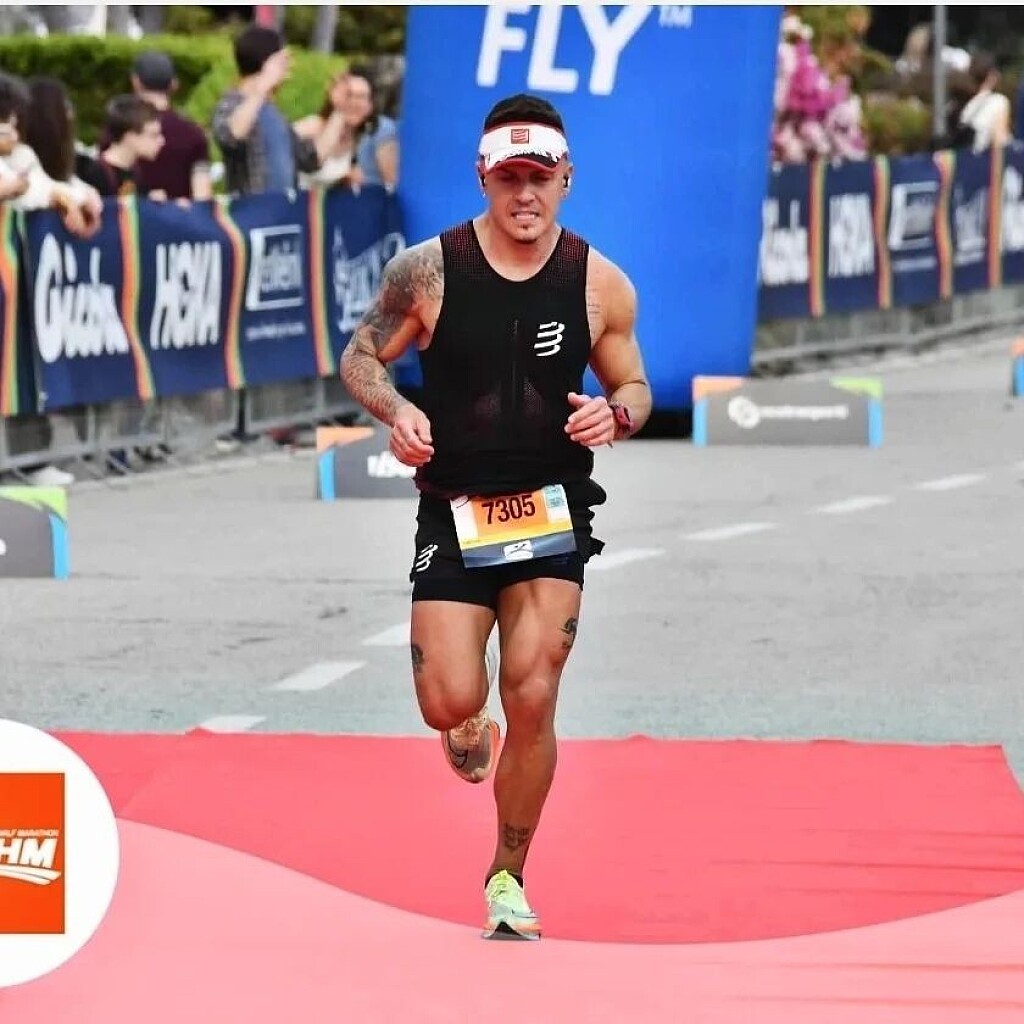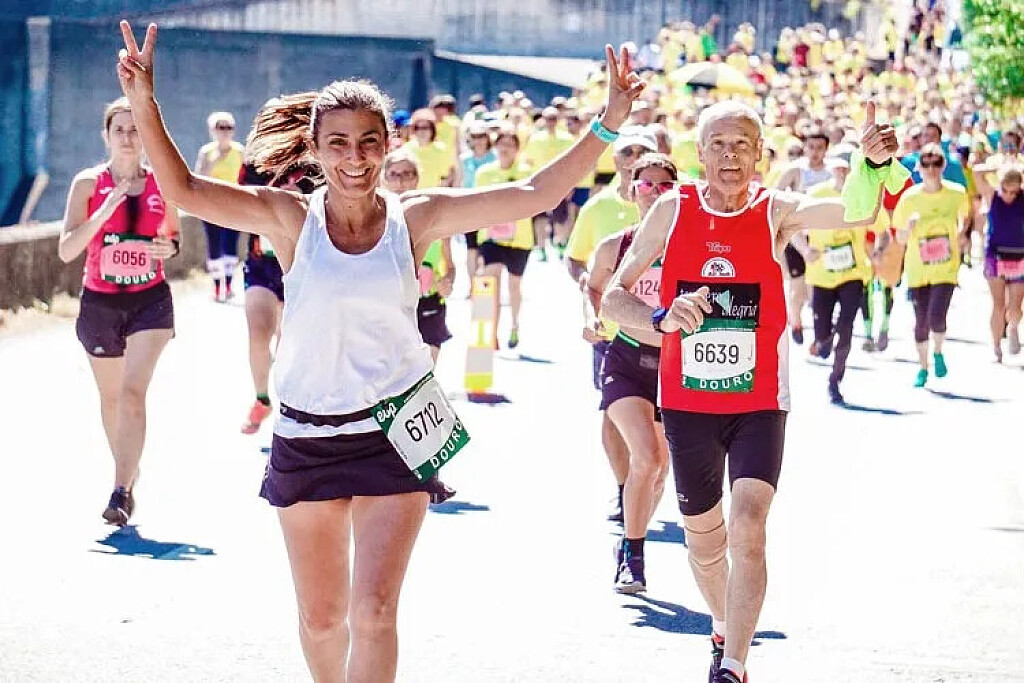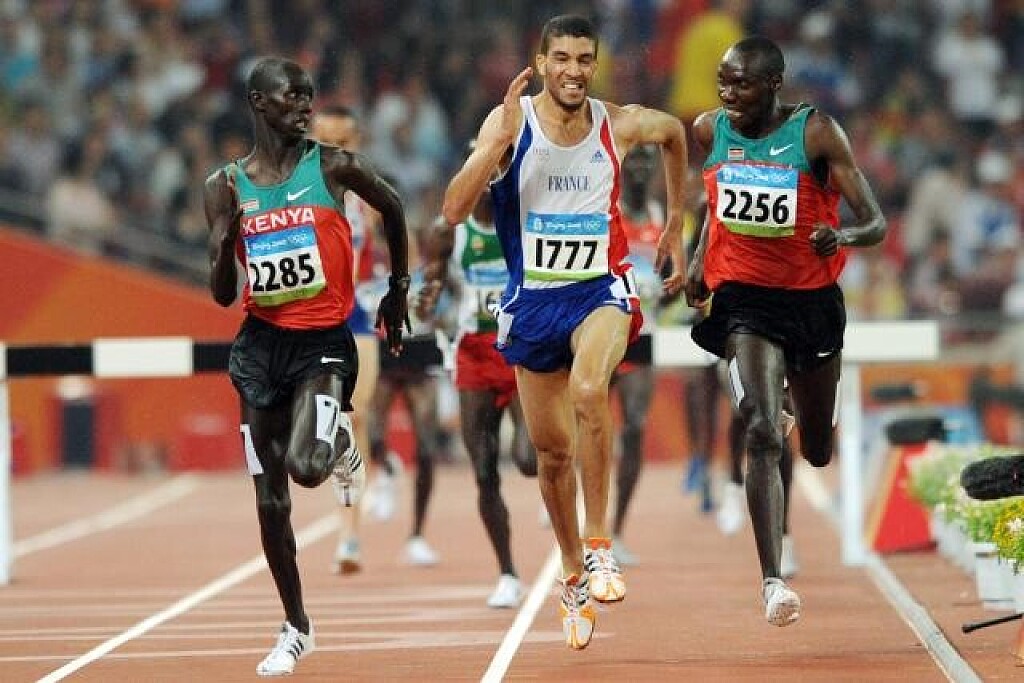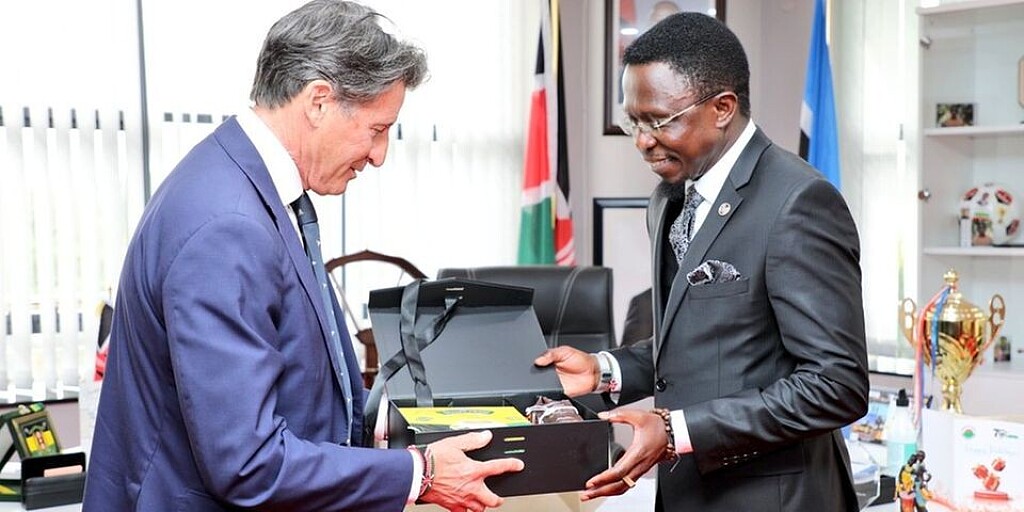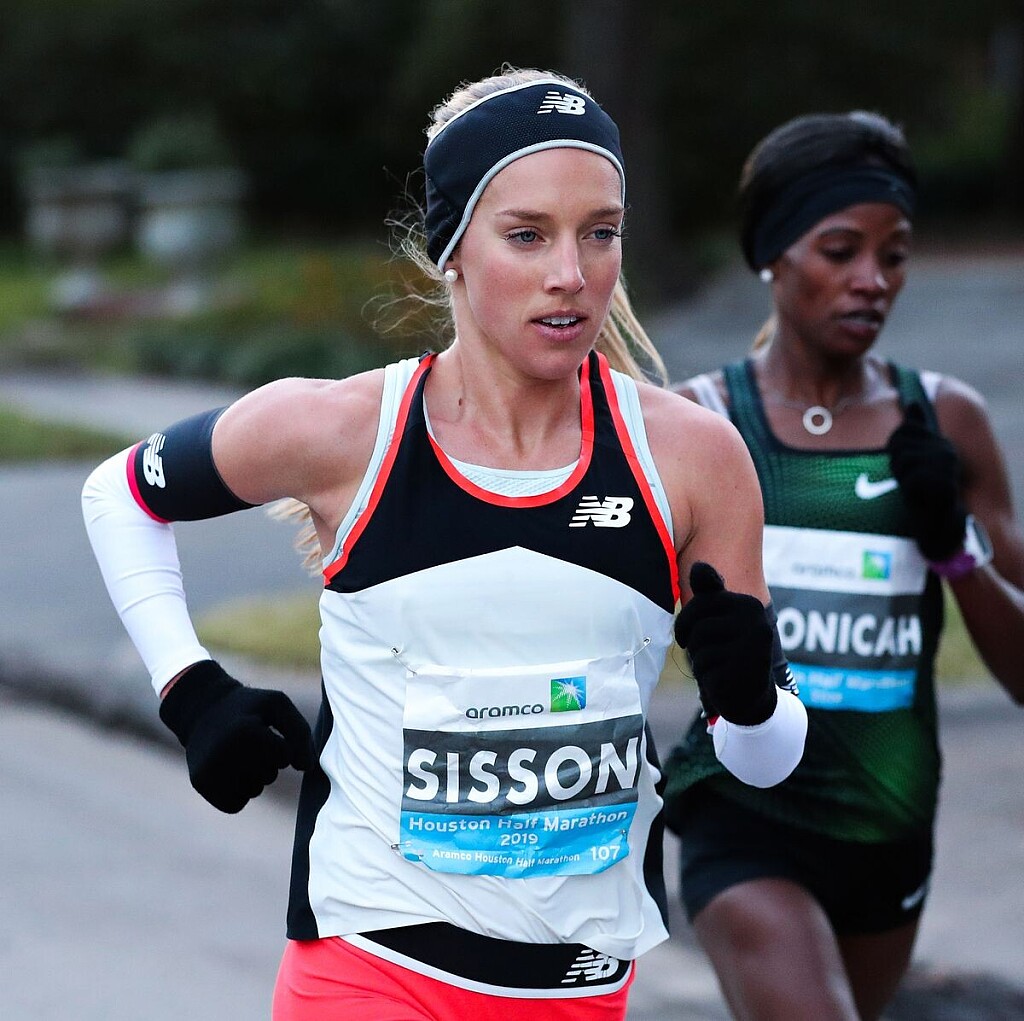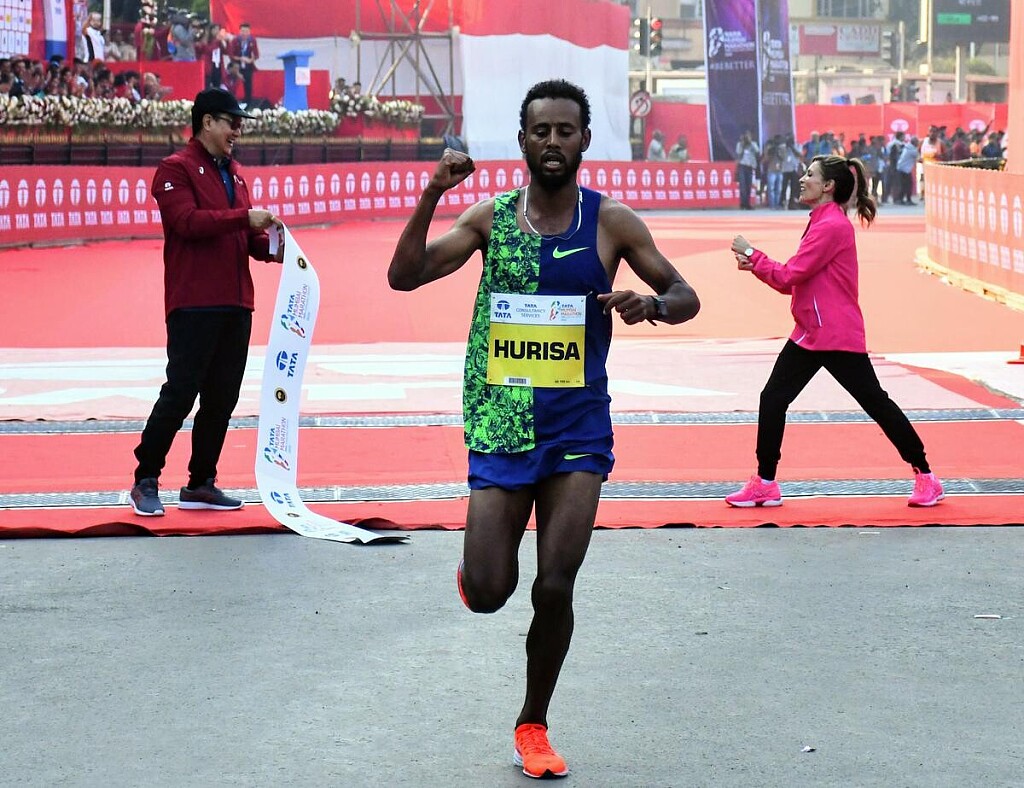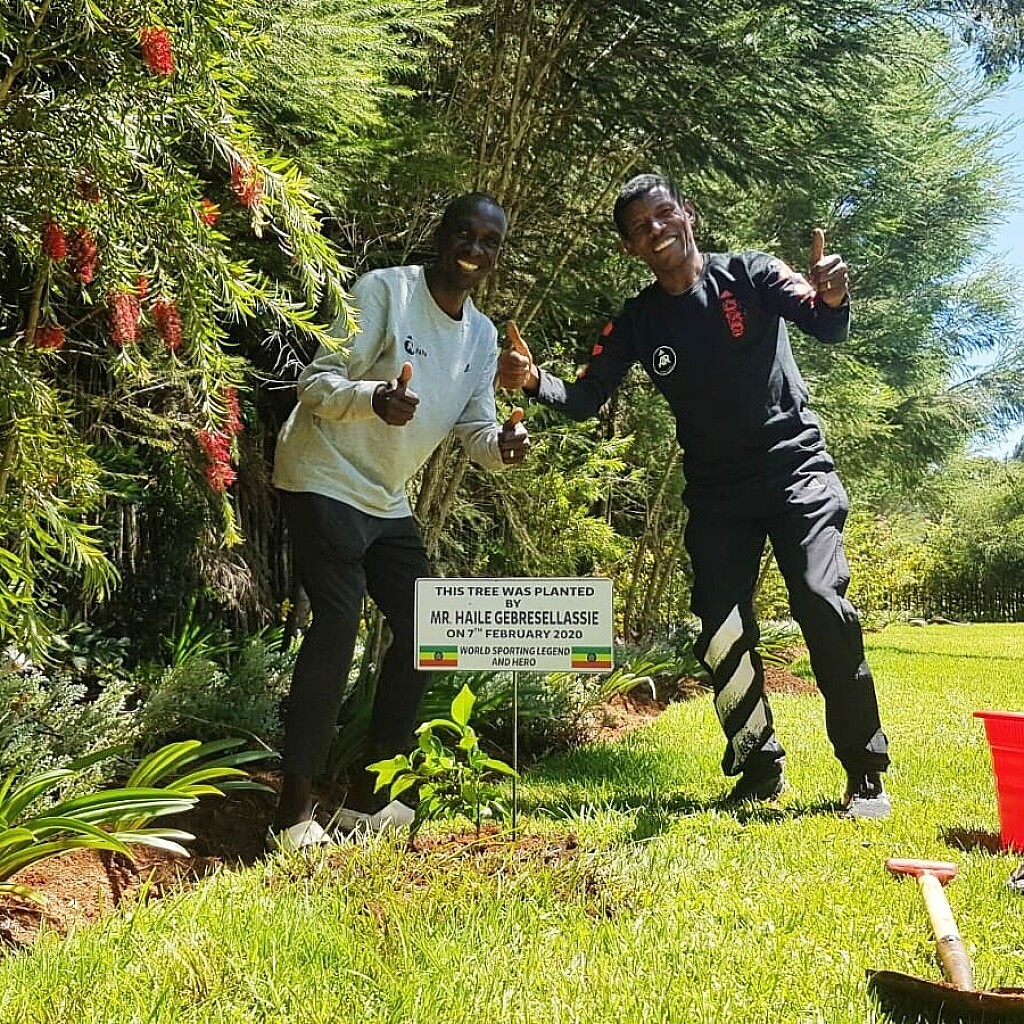Running News Daily
Running News Daily is edited by Bob Anderson in Mountain View, California USA and team in Thika Kenya, La Piedad Mexico, Bend Oregon, Chandler Arizona and Monforte da Beira Portugal. Send your news items to bob@mybestruns.com Advertising opportunities available. Over one million readers and growing. Train the Kenyan Way at KATA Running Retreat Kenya. (Kenyan Athletics Training Academy) in Thika Kenya. Opening in june 2024 KATA Running retreat Portugal. Learn more about Bob Anderson, MBR publisher and KATA director/owner, take a look at A Long Run the movie covering Bob's 50 race challenge.
Index to Daily Posts · Sign Up For Updates · Run The World Feed
Britton Wilson Breaks Athing Mu's Collegiate Indoor 600m Record
Razorback Britton Wilson opened the indoor track season with a collegiate record as runner-up in the 600m on Friday evening during the Arkansas Invitational held at the Randal Tyson Track Center.
Wilson posted a time of 1:25.16 over the distance, breaking the previous collegiate record of 1:25.80 set by Texas A&M’s Athing Mu in 2021.
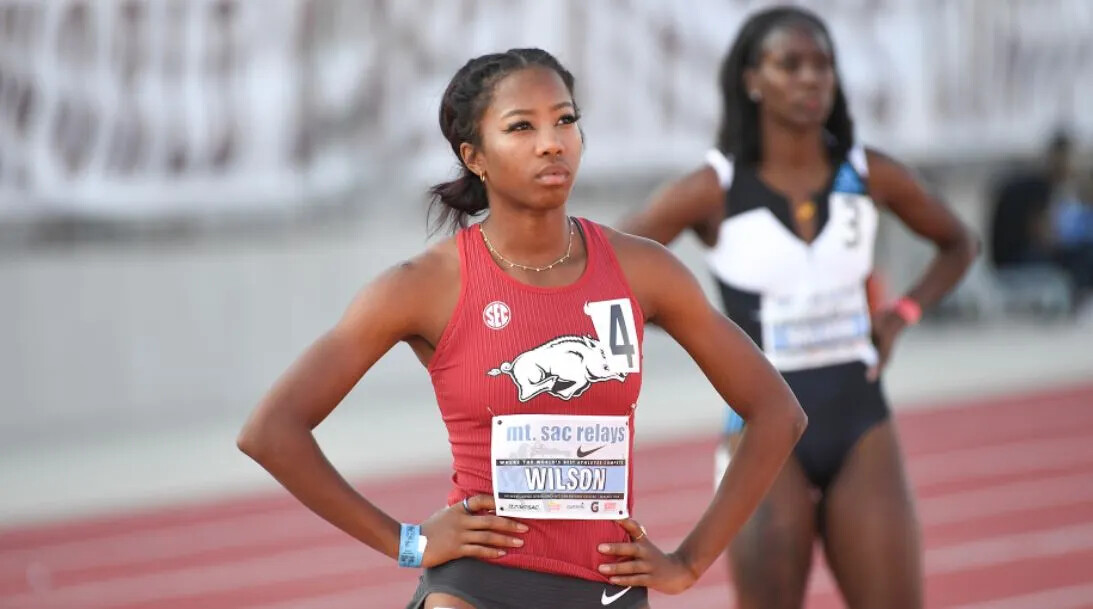
Razorback volunteer Shamier Little won the race in 1:24.65, which ranks No. 5 on the U.S. all-time list and No. 7 on the world all-time list. Third in the race was Arkansas alum Shafiqua Maloney in 1:27.45.
For Wilson, her mark ranks No. 7 U.S. and No. 10 world all-time. The previous UA record of 1:27.29 was set in December of 2021 by Morgan Burks-Magee. Wilson had a time of 1:30.34 in her debut at the distance last year.
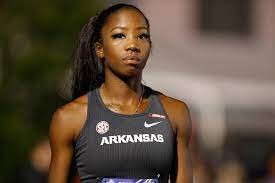
Victories for the Razorbacks included Ackera Nugent with a world-leading 8.00 in the 60m hurdles, moving to No. 5 on the UA all-time list. Arkansas alum Taliyah Brooks finished second in 8.13 as both hurdlers bettered the meet record of 8.13 held by Payton Chadwick since 2018.
Paris Peoples also registered a world-leading effort of 53.10 in the 400m in leading a 1-2-3 sweep with teammates Ashanti Denton runner-up in a career best 53.68 while Aaliyah Pyatt finished third in 53.79.
Racing at the mile distance for the first time indoors, freshman Mary Ellen Eudaly clocked a 4:43.01 to lead a 1-2-3 Arkansas finish. Eudaly bettered her outdoor mile time of 4:51.99. Finishing behind her with a pair of career best times were Heidi Nielson (4:44.79) and Laura Taborda (4:45.77).
A sweep of the top four places in the 200m had Rosey Effiong leading the way in 23.45 as Amber Anning finished second in 23.47 while Nickisha Pryce set a PR of 23.76.
Alum Jada Baylark won the 60m in 7.25 while Ariane Linton was the top Razorback at 7.46 for fifth. Linton ran 23.93 for fourth in the 200m. Gracie Hyde won the 800m in 2:13.50.
Racing a pair of relay teams in the final section of the 4 x 400, the Razorbacks registered world-leading times of 3:30:38 and 3:30.79.
The winning squad included Anning (52.64), Wilson (51.60), Pryce (52.59) and Denton (53.55). The runner-up crew had Peoples (54.09), Effiong (51.51), Joann Reid (52.15) and Pyatt (53.04).
The women’s opening event produced a career best for Sydney Billington as she cleared 5-10.75 (1.80) in placing second in the competition. Billington, who had a previous best of 5-10, cleared five consecutive bars on first attempts before missing three attempts at 6-0 (1.83).
Texas A&M’s Bara Sajdokova, who needed two attempts at 5-10.75, cleared the 6-0 height on a third try for the win.
Kaitlyn Banas led a 4-5-6 finish for the Arkansas vaulters with a clearance of 13-6.5 (4.13). Grace Ridgeway matched that height to set a career best in fifth place. Bailey McCorkle and Marin Chamberlin each cleared 13-0.75 (3.98) to place sixth and eighth.
(01/14/2023) ⚡AMPby Shawn Price
More Prize Money Is Flowing Into Trail Running. What Does That Mean for the Sport?
Annie Hughes, one of the top trail runners in the U.S. for the past two years, had another amazing season running ultra-distance races in 2022. On September 17, the 24-year-old Hoka-sponsored runner and part-time college student won the Run Rabbit Run 100 in Steamboat Springs, Colorado, her fourth win of 100 miles or longer since April. Earlier this year, she won the Coldwater Rumble 100 in January, Cocodona 250 in April and the High Lonesome 100 in July.
Those were all exceptional efforts in really challenging races, but the big difference she experienced after crossing the Run Rabbit Run finish line, 21 hours and 26 minutes later, was that she won $17,500. (And yes, she was handed one of those cartoonish, oversized checks at the awards ceremony.)
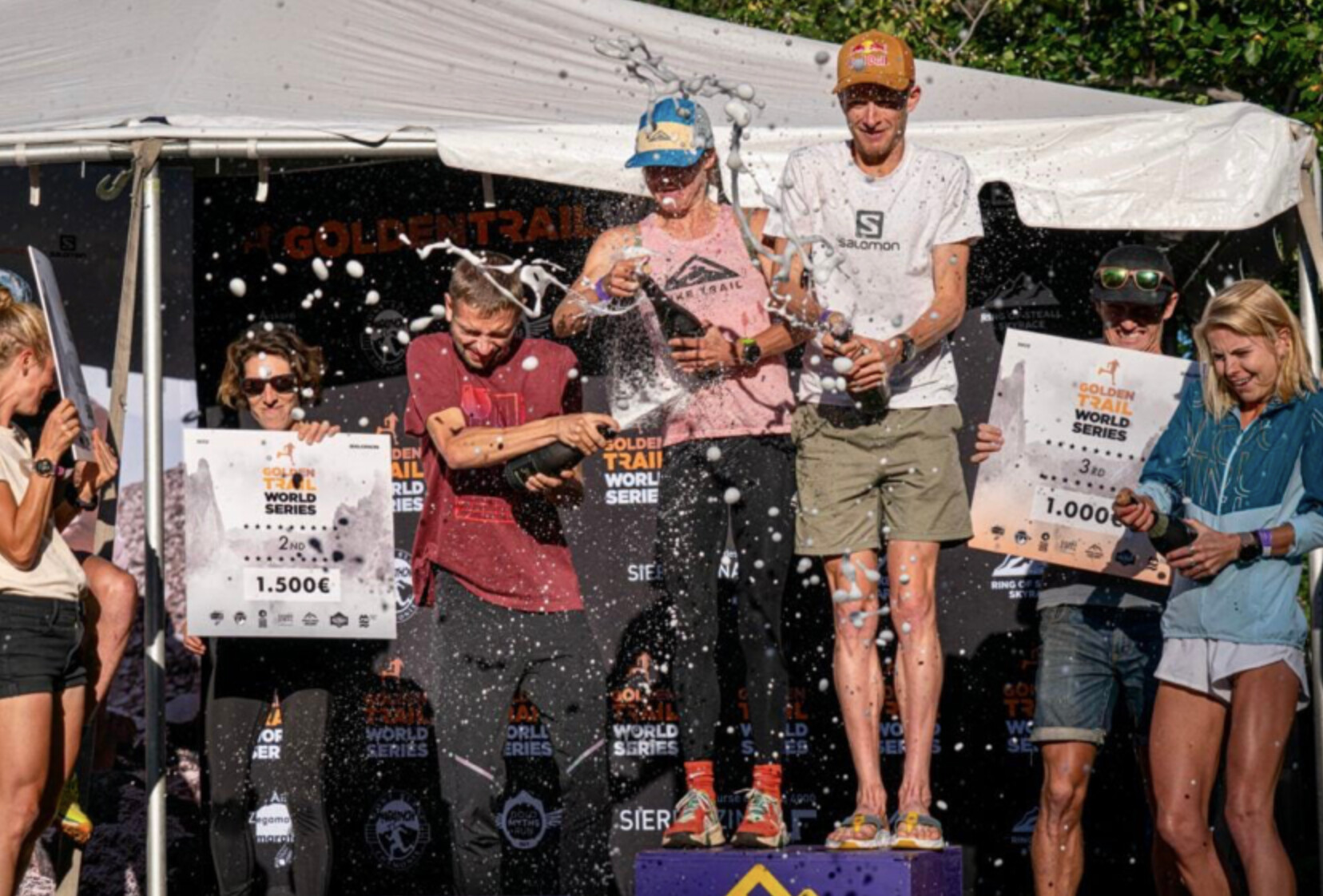
Run Rabbit Run is one of the rare American trail races that offers a relatively large prize purse, and for a decade, it's been the largest in the sport. Hughes earned $15,000 for winning the women's race and split another $5,000 with Arizona trail runner Peter Mortimer (who placed 12th overall) as part of the event's new team competition.
"That wasn't the reason I was drawn to the race, but it was definitely pretty cool to win that much money," Hughes said. "I'm glad I did it, because it wound up being a really great race with an amazing course on a beautiful day."
The origins of trail running were always more about the joy and freedom of ambling through the natural world, and less about the specific time and pace of any run or race, which is why winning big cash prizes is mostly uncommon in the sport, even for top-tier runners like Hughes. Over the past two years, Hughes has won 10 races of 50 miles or longer, yet her Run Rabbit Run victory was the first time she's ever earned money for her efforts.
More sponsorship money and bigger cash prizes are flowing into the sport, helping the top athletes earn a full-time living in the sport and become global stars. But that evolution has also created a desperate need for a unified governing body and more consistent drug-testing as doping becomes a more acute concern.
A Windfall of Prize Money
Historically, America's biggest and most notable trail running races haven't offered any prize money at all-Western States 100, Hardrock 100, Dipsea Trail Race, Leadville 100, Mount Marathon Race, Seven Sisters, Black Mountain Marathon/Mount Mitchell Challenge-partially because races simply couldn't afford to pay it, and also because, at the soul of the sport, that's not what the races were historically about or why most top runners were competing.
But with the continued growth of the sport-trail running has grown by 231 percent over the past 10 years, according to one report-and the dawn of a new level of professionalization over the past decade, there is a lot more money being injected into the sport. That includes more high-profile events and race series, more brands investing in the sport, more sponsored runners and trail running teams, as well as a growing expectation that prize money should be part of the equation as it is in road running, triathlon, and even obstacle course racing.
For many years, The North Face 50 near San Francisco was one of the only ultra trail races in the world to offer a significant prize purse. From its inception in 2006, until it disappeared after 2019, that race famously awarded $30,000 in prize money, which included $10,000 to the top finishers in the men's and women's races, plus $4,000 for second and $1,000 for third. It was a race to look forward to at the end of the calendar year, both for the cash awards and the prize-induced competition that drew top runners from around the world.
During that span, Run Rabbit Run, though a lower-profile race, quietly began dishing out some of the biggest payouts in the sport, in part because race organizers Fred Abramowitz and Paul Sachs believe in rewarding its top athletes for their efforts (as well as giving back to the community via even bigger charitable contributions). The race winnings come primarily from entry fees of the 600-runner event and sponsors, if and when the race has them. That wasn't possible back in the early days of the sport, when entry fees were minuscule and cash sponsors were mostly non-existent, but things have started to change.
Abramowitz and Sachs, who both earn their living as attorneys, are unique in that they want to give back to the elite athletes and the Steamboat Springs community, but they also want to help grow the sport. Abramowitz outlined what he calls "A Blueprint for Sponsors of Ultra Running," a three-page document that explains how and why trail ultrarunning-both as a sport and as individual races-can connect to more casual runners, sports fans, and the general public.
He points to the rampant growth of NASCAR, Professional Bull Riding, and professional poker over the past 20 years from their roots as fringe sports, relatively speaking, to mainstream spectacles with massive fan bases, TV contracts, and social media followings. Trail and ultrarunning aren't there yet, Abramowitz has noted, but they've certainly been growing rapidly.
"Today millions watch those events, though the actual number of participants is minuscule," Abramowitz wrote in his missive. "Ultrarunning can learn from these events: it needs new ideas, new ways of attracting the already committed runners and the casual sports fan to our terrific sport. Fields need to be competitive and races [need to be] dramatic; there are hundreds of 100-mile races, but those that offer competitive fields are a handful at most. Most ultra-races offer spectacular scenery in interesting venues."
Abramowitz said sponsors should support races such as Run Rabbit Run that offer prize money not merely because it's good for sport, but also because prize money can attract competitive fields, and competitive fields attract interest-from spectators, participants, potential sponsors, and the general public. He also points out that having prize money at more domestic races is a way to keep the sport from becoming entirely Euro-centric, which has been an increasing trend in the past several years.
The trend of cash purses seems to be increasing, and on the face of it, that's good for elite athletes capable of podium finishes. But it's a complex topic and one that certainly will simultaneously increase the competitiveness of the sport while, some argue, continue to pull the sport away from its organic, racing-in-nature roots that was mostly viewed as the antithesis of competitive road racing.
On the same day Run Rabbit Run paid out $75,000 in total prize money, the Pikes Peak Ascent awarded $18,000 in prize money for its top 10 finishers-including $3,000 apiece to the men's and women's winners-while the Pikes Peak Marathon, on September 18, had an additional $10,500 in total prize money for the top five runners. The races also offered $2,000 (Ascent) and $4,000 (Marathon), respectively, as course-record bonuses, and a $10,000 premium to any runner surpassing a pie-in-the-sky time well ahead of the course records. None of those records were broken, but the $28,500 in total prize money-partially backed by the Salomon-sponsored Golden Trail Series-was one of several large prize purses offered at U.S. races this year.
Other big American prize purses were also primarily tied to the Golden Trail Series events-the $50,000 spread over four races at the mid-June Broken Arrow Sky Races in Olympic Valley, California, and the September 25 Flagstaff Sky Peaks 26K race in Flagstaff, Arizona, where runners competed for $18,000 in prize money and a chance to compete at the Golden Trails World Series Final, and the $15,000 winner's earnings at the Madeira Ocean & Trails 5-Day Stage Race in October.
Also of note, the November 18-20 Golden Gate Trail Classic paid out $25,000 in total prize money to the top five finishers in both the 100K and half-marathon races, which were part of this year's nine-race $270,000 Spartan Trail World Championship Series.
Meanwhile, the Cirque Series, sponsored by On, paid out $3,600 in total prize money at each of its six sub-ultra mountain running races in the U.S., including $1,000 for the men's and women's winners. The Mt. Baldy Run-to-the-Top on September 5 in Southern California offered $3,000 to runners who broke the event's longstanding course records, and Joe Gray and Kim Dobson obliged by taking down each mark.
Most U.S. Trail and Mountain Running Championships have a minimum of $2,000 in prize money. Typically that comes from regional sponsors eager to support the local race organizations, such as the case with Northeast Delta Dental's contributions behind this year's Loon Mountain Race in Lincoln, New Hampshire, which hosted the U.S. Mountain Running Championships. That event had a $1,500 total prize purse that was paid out to the top three men and women in each race, but it also had an additional $1,500 for an Upper Walking Boss premium that was spread among the top three fastest times in each gender on the super-steep upper part of the course.
Meanwhile, the 2022 World Mountain and Trail Running Championships in Thailand paid out $66,000 to the top five finishers over four races, including $4,000 to the winners of each event.
"(The prize money) is way better than it's ever been, both for the athletes earning it and the number of sponsors who are contributing to it," says Nancy Hobbs, executive director of the American Trail Running Association and the chairperson of the USATF Mountain Ultra Trail Council that oversees national championship races and the U.S. Mountain Running Team.
From a longer view over the past decade or so, Joe Gray agrees there is more money coming into the sport than ever before. As a top-tier pro since 2008 and 21-time U.S. champion, he's regularly won more prize money at high-level races in Europe for more than a decade. But more than the growth of prize money, he has seen more brands interested in putting money behind athletes, races, and the sport in general.
"I think there has always been prize money there, and if you're successful you could make a lot more money really quickly," said Gray, a two-time World Mountain Running Champion. "I do think there is more money coming from the sponsors paying out better contracts and bigger bonuses, which I think will wind up being more beneficial to athletes overall."
Most elite trail runners get annual stipends from their sponsoring brands and bonus money for top performances. Gray is backed by Hoka, but he also has sponsorship deals with Fox River Socks, Kriva, Never Second, Knockdown, Tanri, Momentous, Casio, and GoSleeves. In addition to Hoka, Annie Hughes gets additional support from Ultraspire, Coros, and Tailwind Nutrition. But the life of professional trail runners-independent contractors who don't get healthcare and retirement program benefits-can get expensive with the growing cost of travel, regular bodywork/physio treatments, and private health insurance.
The sport's top-tier elite athletes-Joe Gray, Kilian Jornet, Courtney Dauwalter, Jim Walmsley, Maude Mathys, and Scott Jurek, among others-make a good living from their sponsorships. But there are really only a handful American trail runners making more than about $50,000 a year from shoe brand sponsorships. (Most "sponsored" trail runners are making somewhere between $10,000 to $30,000 per year.) The bottom line is that winning prize money, for those who are fast enough to consistently finish on the podium in big races, certainly helps make ends meet and is necessary to keep the sport's top athletes from having to work other jobs so they can focus entirely on training, recovery, and racing.
"This [2022] is the first year I've gone all-in on trail running," said Hughes, who worked as a waitress in Leadville the previous two years. "I'm able to live off what I make, but I'm not really saving anything. So it was really nice to win that money because then I can put some away in savings."
Higher European Standards
So far, Abramowitz appears to be right about the sport shifting to more of a European focus, and it's, at least in part, tied to the increased prize money that has attracted competitive athletes. While many top-tier European events have paid out modest prize purses for years, some of those races have also helped out visiting runners by way of travel stipends, hotel accommodations, or appearance fees. That's partially because European races are generally larger (500 to 1,000 participants or more) than U.S. races (typically fewer than 500 participants).
Unlike Hughes, who only raced in the U.S. this year, American runner Abby Hall, who runs for the Adidas-Terrex team, raced three times in Europe and earned prize money each time. She placed second in the Transgrancanaria 126K in the Canary Islands in March (which doubled as the Spartan Trail World Championship), finished third in the CCC 100K in Chamonix in August, and won the Transvulcania by UTMB 72K back in the Canary Islands in October.
Like Hughes, Hall receives an annual stipend and race bonuses from her sponsor, but admits it's been nice to have more opportunities to win money-both because it helps her make a living wage and because it's consistent with other professional endurance sports.
"In the past, it hadn't even been a consideration before, for how income would work out as an athlete," Hall said. "But this year it actually added up to be a decent amount. I'm grateful for the opportunities."
In 2022, American runner Hayden Hawks won an off-the-radar 100K a race in Krynica, Poland, and brought home the 100,000 zloty winner's prize ($26,000), one of the bigger individual purses ever awarded in trail running. In 2017, when Hawks won the CCC race, he didn't win anything because UTMB had refused until 2018 to offer prize money at its races, partly because race founders Catherine and Michel Poletti have believed that increased prize money will bring more incentive for some athletes to consider doping or that agents would take too big of a cut.
UTMB finally began offering prize money to podium finishers in 2018 with a total purse of about $34,000 (35,000) and continued that through 2021. But after forging a business relationship with Ironman and launching the new UTMB World Series, it has increased the prize money awarded in Chamonix. In 2022, UTMB said it paid out about $162,000 in total prize money (the approximate equivalent of its stated 156,000 prize purse) to the top 10 men and women finishers of the UTMB, CCC, and OCC races.
That includes $10,400 to the winners of each of those races, with approximately $5,200 going to second-place finishers and $3,125 for third. Fourth- and fifth-place finishers in each of those races earned about $1,500, while 6th through 10th took home $1,000.
While those more notable ultrarunning paydays can be big windfalls for a trail runner, they still pale in comparison to what elite-level road marathoners and triathletes earn at the biggest races that have a much larger audience, including live TV coverage. For example, the 2022 Boston Marathon awarded $876,500 in prize money and $150,000 to the winners, while New York City Marathon paid out $530,000 in total prize money at its November 6 race, including $100,000 to the men's and women's winners. The 2021 Ironman World Championships in St. George, Utah, had a $750,000 prize purse, including $125,000 to the winners, similar to what was awarded at the 2022 Ironman World Championships October 6-8 in Hawaii.
While only a few top trail runners could have opted to pursue a marathon or triathlon career instead of trail running, what's more relevant is the spike of growth trail running. Although it is not yet internationally televised as major marathons and triathlons are, the surge in participation and livestream viewing options is starting to bring in more media attention and sponsorship money than ever before. And more media attention begets more participation and professionalization.
"I think we'll definitely see ultra-trail running continue to grow for years to come," says Mike McManus, director of global sports marketing for Hoka. "I think it's at a point where it's just on the cusp of the real growth that's coming and all that will come with it, similar to where the marathon was in the 1980s and triathlon in the 1990s. It might never be as big as marathoning, but trail running will definitely get more built out as it continues to grow."
"It's nice to make some money for the sport we do. This is my job, and being able to support my family with a decent chunk of money is pretty nice," Hawks says. "I definitely don't go after races just for money, but if there is a gap in my schedule where I can win a little bit of money, I am definitely going to take advantage of that for sure. I want to continue to be in this sport and live this lifestyle as long as I can, so knowing that there are sponsors and races investing more in runners is something I am really grateful for."
The Ongoing Dilemma
While Abramowitz and Sachs have been eager to give out prize money at Run Rabbit Run, not all races are equipped to do so. Many U.S. races are garage-shop operations that barely break even, while some are just too small to make it happen. The Western States 100-Mile Endurance Run (WSER) is operated by a non-profit organization, and offering prize money goes against the mission of the race, says race director Craig Thornley.
The biggest concern that race directors have, including Thornley, is that prize money attracts athletes willing to use performance-enhancing drugs because the sport lacks a comprehensive anti-doping strategy that includes both post-race testing and out-of-competition testing.
"In general, I think the prize money is probably a good thing because professional athletes are able to make a living," Thornley said. "But I think, as a sport, we'll probably have to be more aware of people trying to use drugs or some other ways to get that prize money."
A few years ago, the Western States 100 famously announced its zero-tolerance policy regarding the use of performance-enhancing drugs (PEDs) that prohibits any athlete who has been determined to have violated anti-doping rules or policies-by World Athletics, World Anti-Doping Agency (WADA), U.S. Anti-Doping Agency (USADA), or any national sports federation-is ineligible for entry into the WSER. Although Western States has regularly drug-tested its top finishers, only a few other big trail or ultra-distance races test its finishers with a WADA-sanctioned program.
Thornley believes the incentive to cheat has probably increased as more brands have stepped up to sponsor athletes, but the increase in prize money probably makes it more tangible.
He's not the only one. Ultrarunning coach and podcaster Jason Koop, an outspoken proponent for authentic drug-testing in the sport, agrees, saying that it's time for the sport to collectively start developing mandatory drug-testing protocols, even on a small scale. While he doesn't believe doping is prevalent in trail running, he believes it's definitely already an issue.
"People would be fooling themselves if they thought that every trail running performance was clean. If you think that that's the case, then I have a bridge to sell you," Koop says. "Prize money or no prize money, I think the bigger thing is that the ecosystem is developed enough and there is enough financial reward at stake to where everyone kind of owes it to everybody else to get something done."
In other words, it's time for the sport to take some next steps-either by big governing bodies or small factions of people interested in the long-term health of the sport-to develop more structure and universal anti-doping policies.
(01/14/2023) ⚡AMPby Trail Runner Magazine
Low winter motivation? Three minutes of intense activity could save your life
Many of us experience a dip in motivation during the shorter, colder days of the fall and winter months, and find it hard to fit in regular training. A new study out of the University of Sydney reports that people who averaged a few quick bursts of physical activity a day were significantly less likely to die prematurely.
Here’s what you need to know to keep the health benefits rolling in, even if you don’t feel like going for a long run.
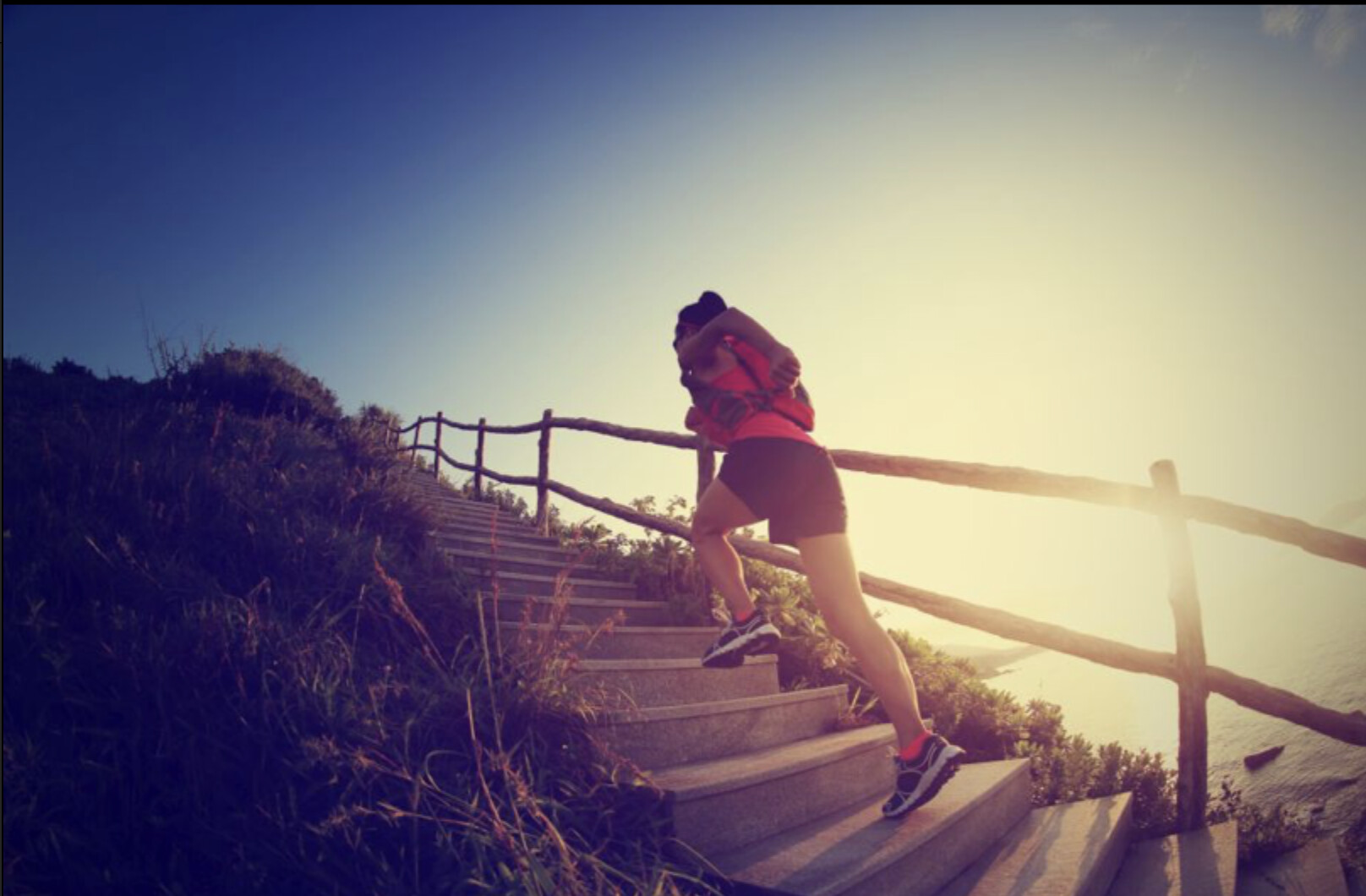
The study
In an analysis of more than 25,000 middle-aged adults who did not participate in any regular leisure exercise like running, researchers determined that if participants were able to rack up three very short bouts of vigorous activity a day, they had a 39 per cent lower risk of death than those who did no vigorous activity.
University of Sydney’s Professor Mark Hamer, who led the study, shared with the Guardian: “This could be things like playing with children. It could be [that] you see your bus just about to leave so you have to walk extremely quickly to get the bus.”
“It may be that you live in a block of flats and you have to carry that shopping up a flight of stairs,” Hamer adds. “It’s those sorts of little bursts that would happen in everyday life.”
The participants all wore fitness trackers–similar to smartwatches–on their wrists to monitor activity levels throughout the day. While the results seem striking, Hamer says they align with what other research has shown.
“Small-scale trials have shown that very small doses of vigorous intermittent activity can improve cardiorespiratory fitness, a vital predictor of longevity,” he explains.
The takeaway
What does this mean for runners? It’s a great reminder that anything is better than nothing–substantially better, in fact. If you can’t find the motivation to log your usual mileage, make the effort to get in a few short bursts of intense movement throughout the day.
While your running strength and speed need regular training to improve, if you’re simply looking to stay healthy through the winter, this is reassuring news. Try running up the stairs in your house a few times, racing your kids down the street or adding a few speed-walking intervals to your dog stroll. Make a few minutes a day count, and you’ll still reap remarkable health benefits.
(01/14/2023) ⚡AMPby Running Magazine
Australian surfer to run marathon in thongs
Sam Hensen-Thompson of Perth, Australia, has never been a runner or a fan of “land sports,” but one day after he could not find a pair of running shoes for a trot along the beach path, he decided to take matters into his own hands and run in style wearing his beach thongs.
Now, after a few runs in thongs, the 24-year-old surf coach is determined to complete a marathon.
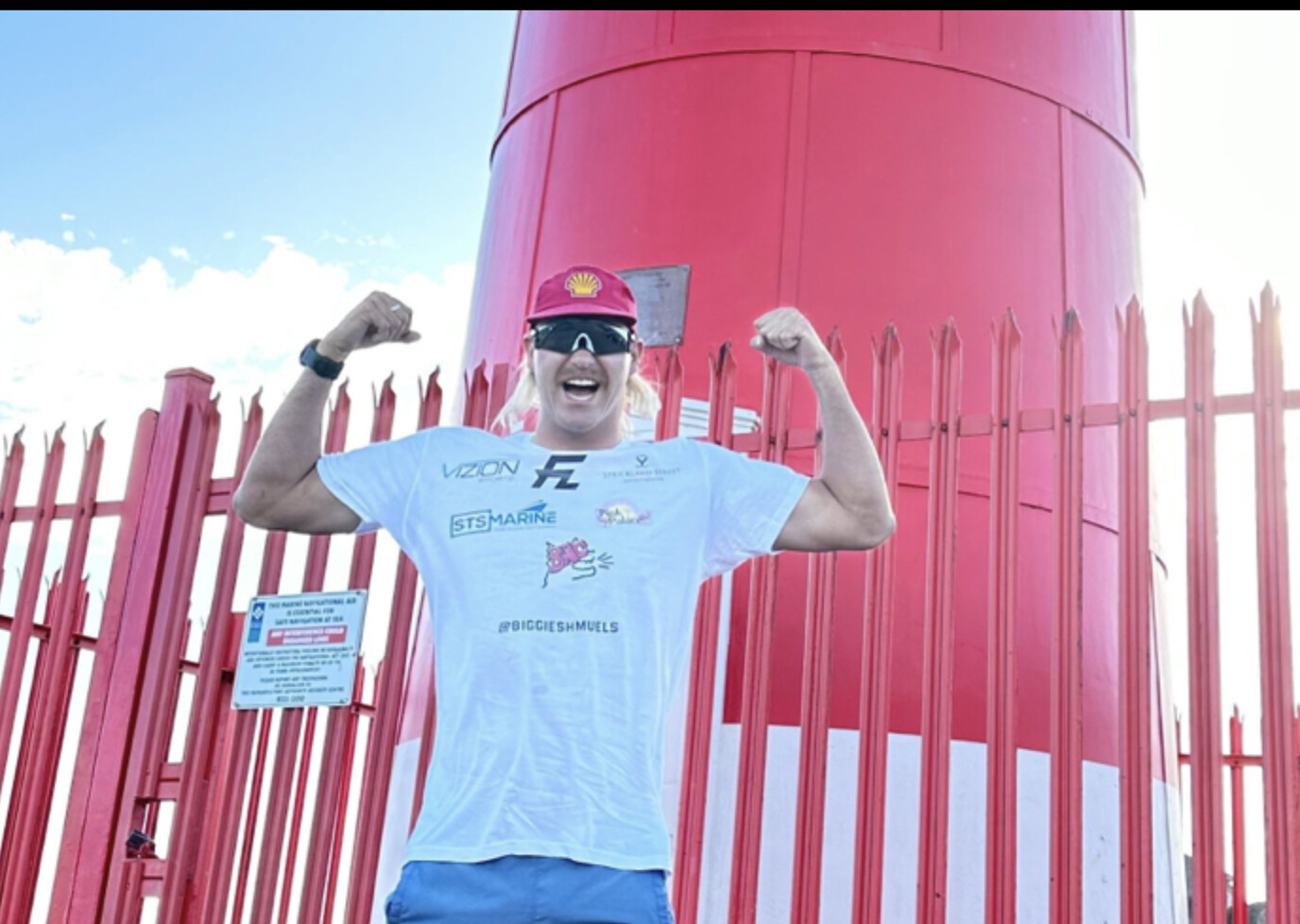
Thongs, not to be mistaken for women’s underwear, is the Australian term for flip flops or sandals. The Aussie version comprises a rubber sole held to the foot by two straps that meet between the first and second toes.
For what started as a 10K jog, Hensen-Thompson worked his way up to a respectable 1:51 “thong” half marathon last week. “The half was not easy, but it wasn’t as hard as I thought,” says Hensen-Thompson. “It took 11 kilometres to settle in, then I put the hammer down for the last 10.”
“I’m planning to do the marathon in late February, but currently sorting out logistics and where to finish,” says Hensen-Thompson.
It’s currently the middle of summer in Perth, and many of the marathons in Western Australia are during the winter season. “I want to accomplish this goal ASAP,” he says. If his marathon goes well, Hensen-Thompson is considering running 100 km in thongs.
Hensen-Thompson says the last time he ran was in high school. “I consider myself more of an ocean man,” he laughs. “I have been training for the marathon though—don’t worry.”
The goal of his run is to raise $5,000 for a specific cause very close to him: “I am raising money for Perth Children’s Hospital. As a surf coach, I deal with kids every day—the thought of making an impact on kids pulls a few of my heartstrings,” he says.
Hensen-Thompson will be sporting the Aussie thong brand Pistol Menace for his marathon. “These beauties are designed for all-terrain,” he says. “They are wider and thicker than your traditional thong, making them more durable and comfy for the long haul.”
(01/14/2023) ⚡AMPby Running Magazine
Shalane Flanagan’s stir-fry recipe: a ‘choose your own adventure’ meal
Every household should have an easy, quick stir-fry to whip up on busy days, and Shalane Flanagan‘s recipe, packed with veggies of your choice, is versatile and easy to match the tastes you’re cooking for.
Flanagan, a four-time Olympian (twice in the marathon) and the 2017 New York City Marathon champion, may be retired from professional competition, but she’s still a busy coach for Bowerman Track Club, a mom, and co-author of three cookbooks with her former teammate and friend, Elyse Kopecki.

Flanagan says her family counts on a weekly stir-fry to use up what they have at home and suggests: “choose your own adventure, but aim for a range of colors to max out nutrition potential.”
Shalane and Elyse’s Eat the Rainbow Stir-Fry

Ingredients (marinade)
8 ounces skinless chicken, chopped
2 Tbsp soy sauce
1 Tbsp lime juice
2 Tbsp honey
1 Tbsp minced garlic and/or ginger
Veggies
2 Tbsp high-heat oil (like sesame, avocado or safflower oil)
1/2 large or 1 small onion, sliced
2 heaping cups chopped hard vegetables (broccoli, carrots, celery)
1 heaping cup sliced soft vegetables (snap peas, bell pepper, cabbage, box choy, mushrooms)
Directions
Place the chicken, soy sauce, lime juice and honey in a quart-size zipper bag and shake to combine. Leave out for 20 minutes to allow meat to marinate and come up to room temperature (for even more meat flavour, marinate overnight in the fridge).
Heat a wok or high-sided sauté pan over high heat. Add the oil, onion and hard vegetables. Cook, stirring frequently until the veggies begin to brown–about five minutes.
Turn the heat down to medium-high, add the soft vegetables, and sauté for about two minutes. Add the chicken with the marinade and sauté, stirring occasionally, until the chicken is cooked through, about five minutes.
Use a clean spoon to serve on top of brown rice or quinoa (or noodles) and drizzle with your favourite sauce, like sriracha or peanut sauce.
Flanagan’s tips: Prep all the veggies before frying, and chop veggies to similar sizes so that they cook evenly. Cook hard vegetables first, and moisture-rick ingredients last, and make sure your pan is really hot (and keep it hot). Don’t walk away: stir-frying means quick cooking over high heat with frequent stirring.
(01/13/2023) ⚡AMPby Running Magazine
Defending champion Hurisa eyes winning return in Tata Mumbai Marathon
Defending champion Derara Hurisa is back to where his marathon journey began — the prestigious Tata Mumbai Marathon — as he eyes a winning return from injury in the upcoming 18th edition on Sunday, January 15.
The 25-year-old Ethiopian clinched the 2020 crown with a blistering course record of 2:08:09 and went on to win both his outings over the classic distance in 2021 — Vienna and Guadalajara Marathon (Mexico) — but was disqualified in Austria due to a shoe technicality.

He spent 2022 recovering from a hip injury.
“I’ll try to defend my title, but the competition here is really good,” Hurisa told a news conference on Saturday. “My training was nice, with the focus on the Tata Mumbai Marathon,” he added.
In the men’s field, 10 runners hold personal bests under the course record, including Hurisa’s compatriot and training partner Hayle Lemi.
The 28-year-old is a winner of seven marathons, including the Boston Marathon in 2016 and Dubai in 2015. “The conditions here look good for me,” said Lemi, a.k.a. Lemi Berhanu, runner-up in the 2021 Boston Marathon in 2:10.37 and with a preference for warm weather.
Leading the Kenyan charge in the men’s International Elite field of 16 is Philemon Rono, the training partner of marathon legend Eliud Kipchoge. “My training has been good, I just got to go out there and express myself,” said the 31-year-old, who finished an impressive sixth at the 2019 Boston Marathon and won the Toronto Marathon for the third time that year in 2:05:00.
The women’s International Elite field will feature 2019 winner Worknesh Alemu of Ethiopia and the 2020 runner-up from Kenya, Rodah Jepkorir Tanui, and six runners with personal bests under the course record (2.24.33), headlined by the experienced Kenyan Sharon Cherop.
The 18th edition of the USD 405,000 prize fund World Athletics Gold Label Road Race takes place after a two-year pandemic-forced break and will also witness over 55,000 amateurs across six categories on its much-awaited return.
The elite men’s and women’s winners will take home USD 45,000 each. The runners will be further incentivized by a Course Record Bonus of USD 15,000.
(01/13/2023) ⚡AMPTata Mumbai Marathon
Distance running epitomizes the power of one’s dreams and the awareness of one’s abilities to realize those dreams. Unlike other competitive sports, it is an intensely personal experience. The Tata Mumbai Marathon is One of the World's Leading Marathons. The event boasts of fundraising platform which is managed by United Way Mumbai, the official philanthropy partner of the event. Over...
more...Hate hills? Here’s how to change that, pro ultrarunner Emelie Forsberg shares her tips and favorite uphill workouts
Hill workouts can be tough. They are also a powerful tool for building strength, making your body injury-resistant, and translate to speed on the flats: if you can learn to enjoy them it’s much easier to get out there.
“I love the feeling of being able to push myself to the max, as if the resistance is my friend,” Norway-based ultrarunner and ski mountaineering pro Emelie Forsberg shares in her book Sky Runner.
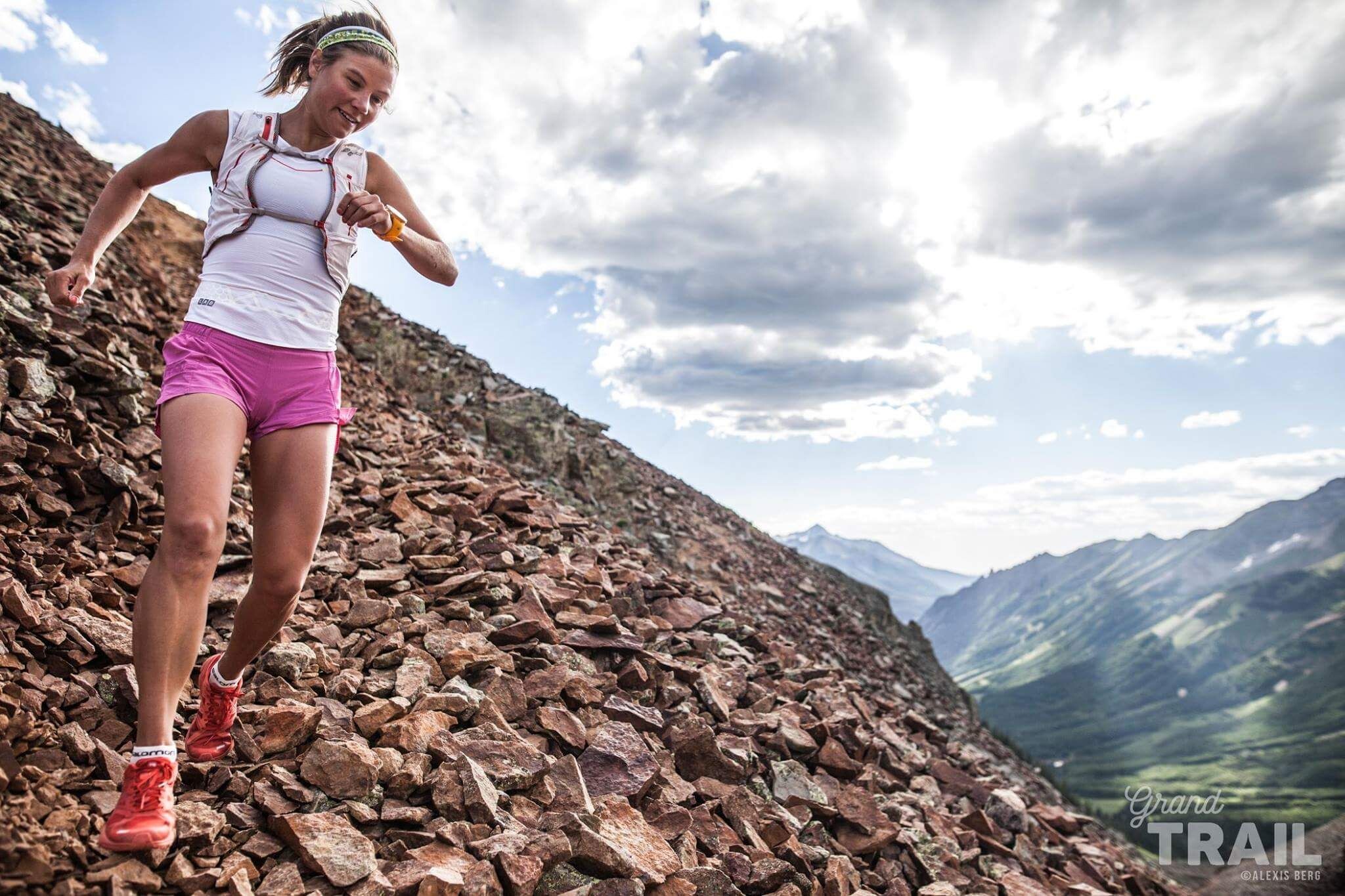
Try these tips and workouts to find your groove as you test out (or build on) your hill-climbing abilities. You, too, may soon be loving your uphill sessions.
Find the right technique
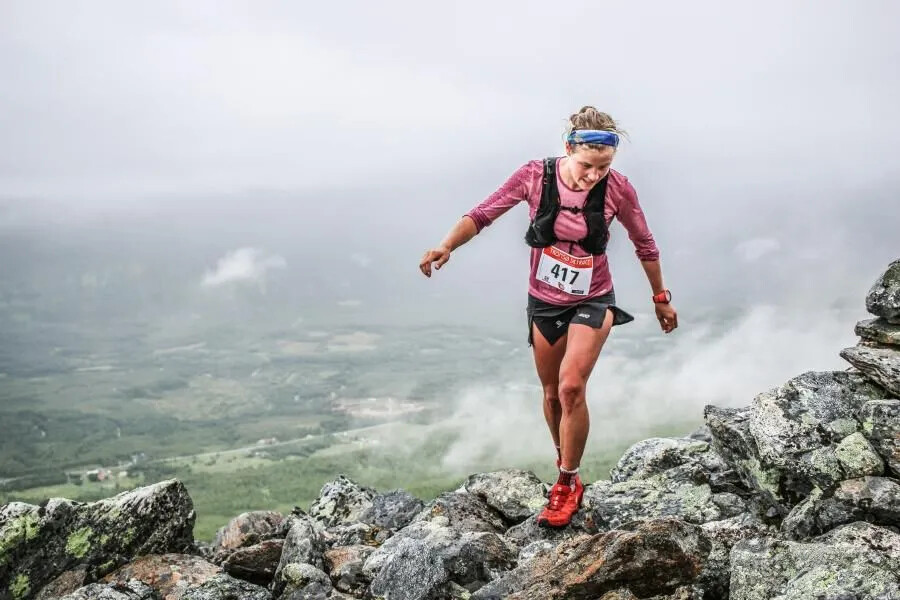
Forsberg suggests trying to make hill running as comfortable as possible by finding the right technique for the hill you’re on. For very steep hills she suggests switching between two methods of climbing: walking very fast with large strides, pushing against your thighs with your hands and arms, and taking shorter, faster steps with a higher turnover rate.
“Neither of these are faster than the other, but it’s nice to switch between the two techniques to use different muscle groups,” Forsberg explains, noting that she finds the shorter strides harder so opts to work on them more often in training. “I want to train with what I’m less comfortable with.”
Easier hill intervals
Forsberg suggests trying this session (adjusting the number of intervals to your ability) if you’re new to hills or returning to interval training, and says the pace and effort “should feel manageable the entire time.”
Warm up with 10 minutes easy running
10 x 2 minutes, easy run downhill for recovery (approx one minute)
Cool down with 10 minutes easy running
Hill sprints
“This is a very explosive exercise that can be very hard,” shares Forsberg, suggesting runners start moderately with fewer repetitions and increase accordingly. “It’s much more fun to get a positive surprise rather than never wanting to do the exercise again,” she explains. We definitely agree.
Warm up with 10 minutes of easy running
10 x 30 seconds of hard running with 30 seconds rest
Repeat 3x, with 2 minutes of recovery time in between each block
Cool down with 10 minutes of easy running
After a challenging uphill or speedwork session, make sure to take a recovery day or do some very easy running.
(01/13/2023) ⚡AMPby Keeley Milne
Yalemzerf Yehualaw will challenge her global mark of 29:14 this weekend in Valencia
Get ready for some quick times on Sunday (Jan 15) when the self-styled “ciudad del running” stages its annual 10km Valencia Ibercaja event on its famously fast roads.
Many of the world’s top distance runners will descend upon the Spanish city this weekend in search of record-breaking performances. These include Yalemzerf Yehualaw, who will attack her own women’s world record of 29:14 set in Castellón 11 months ago.
The 23-year-old impressed over the marathon last year, too, as she clocked what was, at the time, the world’s fastest ever debut by a woman with 2:17:23 in Hamburg before later capturing the London Marathon title in 2:17:26.
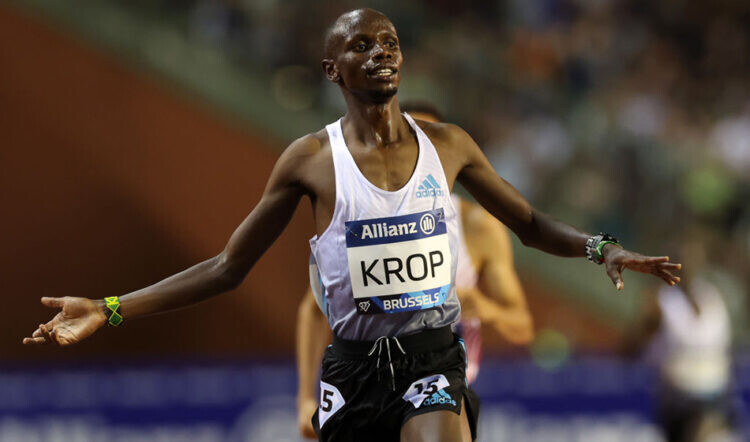
British athletes are in Valencia in force too. The Spanish road race clashes with the trial in Perth, Scotland, for the World Cross Country Championships, but many have opted to slip on their super-shoes rather than spikes to chase PBs on the road.
Yehualaw is the star attraction and will wear No.1 on her singlet on Sunday, but she is joined in Valencia by fellow Ethiopian Ejgayehu Taye, who holds the world 5km record with 14:19 from Barcelona in 2021. In addition, Karoline Grøvdal of Norway will attack the European record of 30:05 held by Lonah Salpeter of Israel.
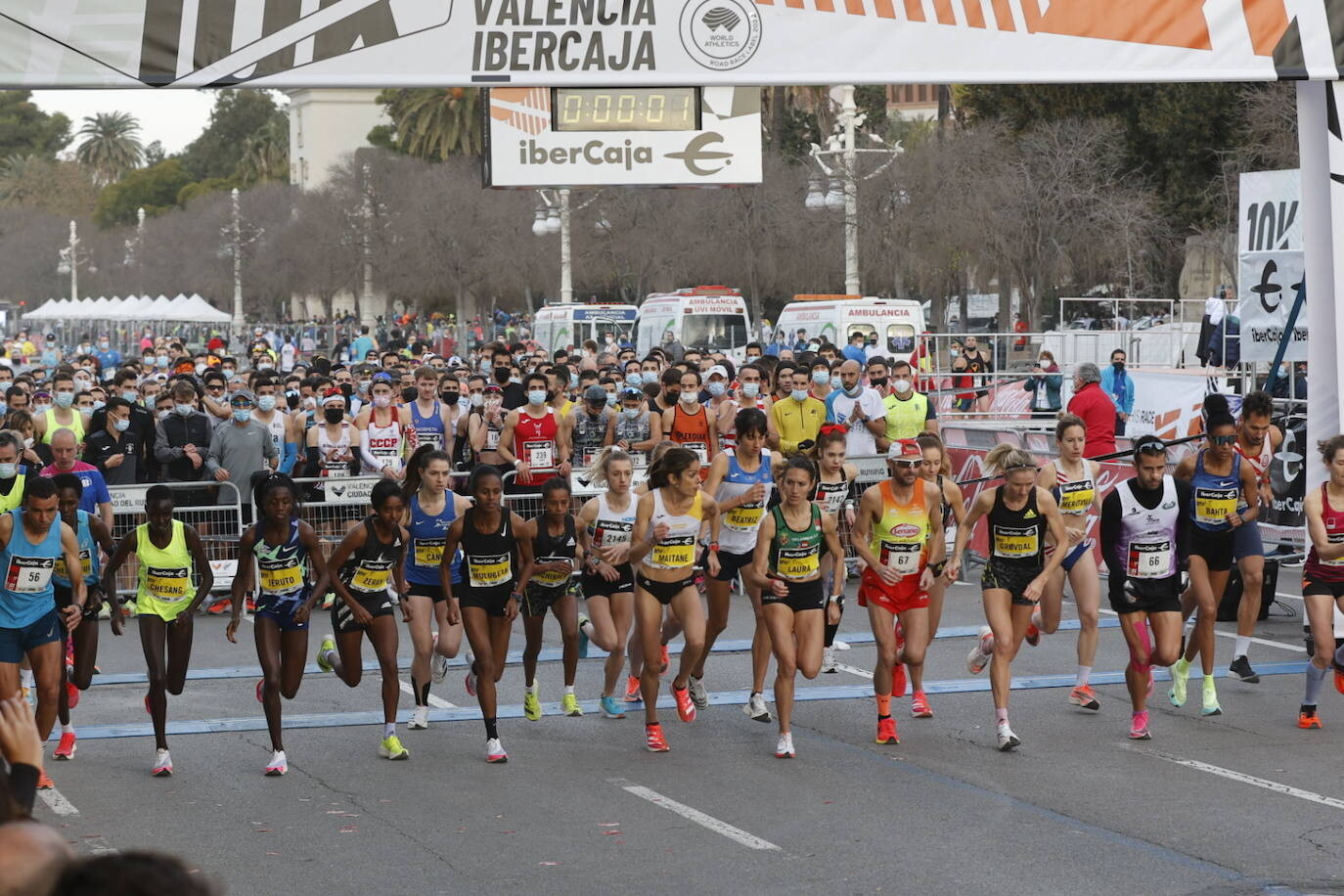
In the men’s field, sub-27min performers Richard Kimunyan Yator and Weldon Kipkirui Langat of Kenya plus Rodrigue Kwizera of Burundi lead the men’s entries in a field of around 11,000 runners which is set to feature about 100 elite athletes from 15 different nations.
Jacob Krop, the world 5000m silver medallist and 12:45.71 runner on the track, is also in the line-up together with Paul Chelimo of the United States, while Morhad Amdouni and Jimmy Gressier of France lead the European challenge.
Their target is Rhonex Kipruto’s world record of 26:24, which was set in this event in 2020.
“We want the men to approach the European record (27:13 by Julien Wanders set in Valencia in 2020) and, with the African armada, to look for sub-27 records and even approach the world record,” said Acuña. “The 2023 race will be the most competitive of all editions. The best European athletes want to run the 10km Valencia Ibercaja – and we have been working for months in that direction.”
He added: “The goal of the race is to become more international year after year and reach more and more countries. We are a world reference for the distance and the best athletes want to run in Valencia.”
Don’t be surprised to see the UK all-time rankings revised on Sunday when a large contingent of British athletes tackle the Valencia 10km.
They are led by Samantha Harrison, who already sits No.5 on the UK all-time rankings with 31:10 from Telford in December.
Calli Thackery, the fifth quickest British woman in history over 5km with 14:58, is also set to compete. Add to this Olympic marathoner Steph Twell, plus Amelia Quirk, Lucy Reid and Sarah Astin.
One week after out-kicking Jake Wightman indoors over 3000m, Phil Sesemann takes to the roads looking to beat his 28:24 PB from 2019.
The Mahamed brothers – Mahamed and Zak – are also in the line-up, plus Olympic 5000m finalist Andy Butchart, Efrem Gidey, Ellis Cross, Calum Elson and Kadar Omar.
The list goes on with Kieran Clements, Jack Gray, Jonathan Hopkins, Alfie Manthorpe, Lewis Jagger, Ronny Wilson, Jonny Davies, Alex Lepetre, Jonathan Escalante, Dan Studley, Norman Shreeve and Corey De’Ath.
(01/13/2023) ⚡AMPby Jason Henderson
10k Valencia Trinidad Alfonso
Around the corner we have one more edition of the 10K Valencia Ibercaja, organized one more year by the C. 10K VALENCIA Athletics premiering the running season in Valencia. It is a massive urban race with more than 3,000 registered annually of 10 kilometers, where the maximum duration of the test will be 1 hour 40 minutes (100 minutes). The...
more...Albert Korir, Shura Kitata and Gabriel Geay confirmed to take on Kipchoge in Boston
Major marathon winners Albert Korir and Shura Kitata, as well as 2015 world champion Ghirmay Ghebreslassie, are among the many additions to the men’s elite field for the Boston Marathon on April 17, organizers of the World Athletics Elite Platinum Label road race announced today (11).
Today’s announcement expands upon four previously announced men’s entrants including world record-holder and double Olympic champion Eliud Kipchoge, reigning Boston Marathon champion Evans Chebet, 2021 winner Benson Kipruto, and two-time victor Lelisa Desisa.
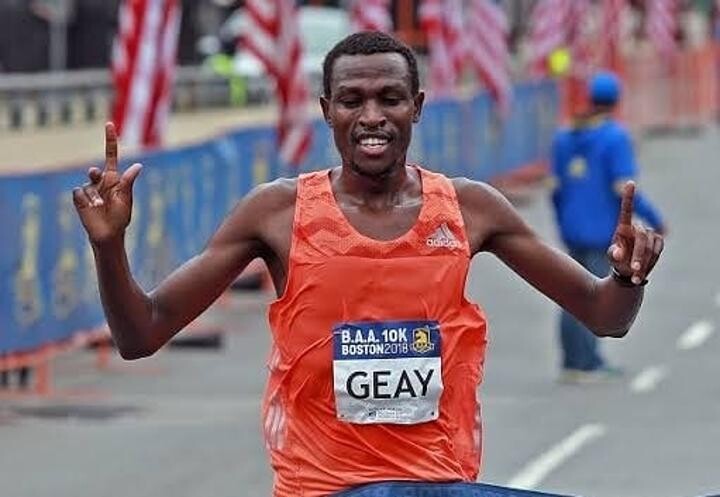
It brings the total number of sub-2:07 performers in the field to 15. Eight of those have bettered 2:05.
Korir, the 2021 New York Marathon champion, made his Boston debut last year and finished sixth. But Kitata, who beat Kipchoge to win the 2020 London Marathon champion, and Ghebreslassie will be making their Boston Marathon debuts.
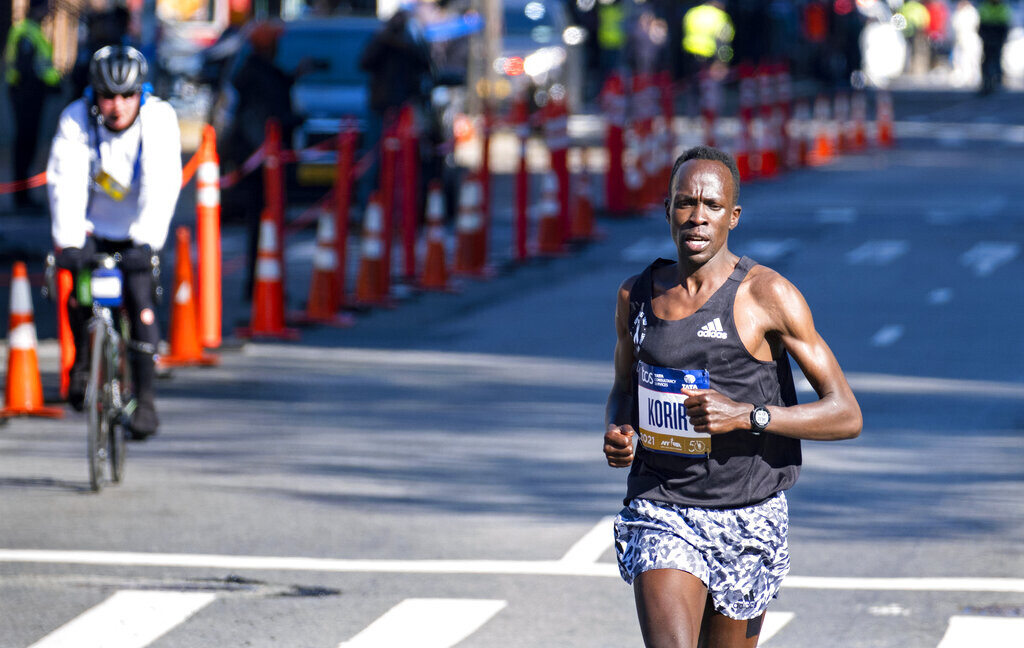
Tanzanian record-holder Gabriel Geay is the third fastest man in the field, after Kipchoge and Chebet. Geay, who finished runner-up at the Valencia Marathon last month in 2:03:00, has had success racing on the roads of Boston, winning the 2018 Boston 10K and placing fourth at last year’s Boston Marathon.
“I am excited to be returning to the Boston Marathon this year,” said Geay. “I fulfilled a dream by racing in Boston last year, but my goal is to one day win the race, and I hope that 2023 will be my year.”
Brazilian Olympian and national record-holder Daniel Do Nascimento will make his Boston debut, as will Ethiopia’s Herpasa Negasa, a 2:03:40 marathon runner. Augustine Choge, one of the most versatile runners in the world, will also line up in Boston, hoping to conquer the marathon distance once and for all.
After a 2:08:16 marathon debut in Chicago last year, USA’s Conner Mantz will take on the Boston course for the first time. He will be joined by world 50km record-holder CJ Albertson.
(01/13/2023) ⚡AMPby World Athletics
Boston Marathon
Among the nation’s oldest athletic clubs, the B.A.A. was established in 1887, and, in 1896, more than half of the U.S. Olympic Team at the first modern games was composed of B.A.A. club members. The Olympic Games provided the inspiration for the first Boston Marathon, which culminated the B.A.A. Games on April 19, 1897. John J. McDermott emerged from a...
more...Ollie Hoare to defend Wanamaker mile title at Millrose Games
Organizers of the Millrose Games have announced that Ollie Hoare will defend his Wanamaker Mile title at the World Athletics Indoor Tour Gold meeting in New York on February 11.
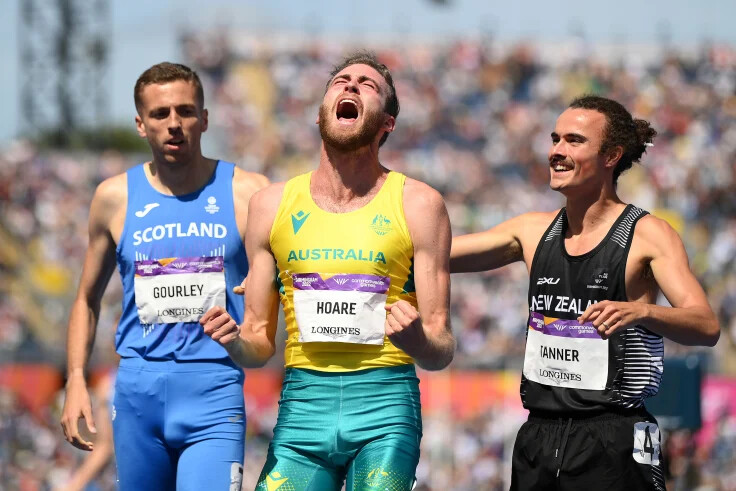
Hoare, the Commonwealth 1500m champion, won last year’s Wanamaker mile in an Oceanian indoor record of 3:50.83.
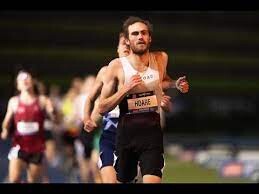
“I’m thrilled to be able to come back and defend my Wanamaker title,” said the Australian. “It will be great to be out there competing at one of my favorite mile races in the world.”
He will take on a field that includes 2021 US 1500m champion and Olympic finalist Cole Hocker, European bronze medalist Mario Garcia Romo of Spain, US Olympian Yared Nuguse, NCAA record-holder Eliud Kipsang of Kenya, 2017 world finalist Johnny Gregorek, three-time New Zealand champion Sam Tanner, world indoor and outdoor finalist Neil Gourley, as well as USA’s Josh Thompson, Sam Prakel and Drew Hunter.
(01/12/2023) ⚡AMPby World Athletics
NYRR Millrose Games
The NYRR Millrose Games,which began in 1908 as a small event sponsored by a local track club, has grown to become the most prestigious indoor track and field event in the United States. The NYRR Millrose Games meet is held in Manhattan’s Washington Heights at the New Balance Track & Field Center at the Armony, which boasts a state-of-the-art six-lane,...
more...Track legend Jenny Simpson puts her most challenging year behind her as she turns to the roads in 2023
After a year in which her world was turned upside down, the track legend has a new sponsor and new event as she makes her half marathon debut in Houston on Sunday.
As the Marshall Fire approached her house on December 30, 2021, there was a brief moment where Jenny Simpson thought to herself, I can’t believe I’m doing this. The house Simpson shares with her husband Jason was formerly a schoolhouse, built in 1900 and located in Marshall, Colo., 15 minutes southeast of Boulder. And on that day, it was under threat from what would eventually become the most destructive fire in state history.
The fire, spread by wind gusts of over 100 miles per hour, was moving quickly. As thick smoke enveloped their property, choking their lungs and blocking their vision, the Simpsons prepared for the worst. Trying to limit the burn, they watered down the yard with hoses, inadvertently soaking their clothes as the wind blew the spray everywhere. Then, as the flames moved in, Simpson took one last lap around the house, grabbing their laptops, their Jack Russell terrier Truman, and a bag containing her running medals and memorabilia — one she had assembled a month earlier while being interviewed for a documentary and fortunately had yet to unpack.
Simpson, like many of us, had previously had that conversation about the one thing you would grab if your house was burning down. She had always answered with her Bible, handed down to her from her great-grandmother Genevieve Schermerhorn (“Grandma Jenny”), for whom she was named. So, as she grabbed the Bible from her office and dashed out of the house, it hit her: I think I’m grabbing the thing that you get because we might lose everything.
By the time Simpson made it to her car, she no longer knew where Jason was or whether he would make it back to the car — the smoke was so dense, it was difficult to see. He eventually made it and they sped away from their house, not knowing when they would return — or if the house would still be there when they did.
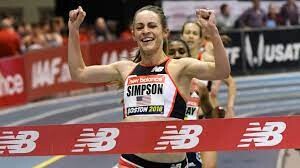
Over the course of two days, Marshall Fire would ultimately burn over 6,000 acres, destroy over 1,000 buildings, and cause over $500 million in property damage, making it the most destructive fire in Colorado history. It was a traumatic event for Simpson and her community.
Though the Simpsons’ home survived the fire, it sustained damage, forcing them to live elsewhere while it was repaired. They bounced around from a hotel to the spare bedroom of some friends from church to, eventually, a sparse apartment near the University of Colorado campus, living out of a backpack with the few things they had managed to grab from their home before the fire hit.
“It’s hard to describe how stressful that time was,” Simpson says.
On top of that, Simpson was working through a sports hernia and stress reaction in her right hip — the most significant injury of her career — and her professional future was less certain than ever. During the 2010s, few athletes were more consistent and dependable than Simpson. From 2007 through 2019, Simpson made all nine World/Olympic teams for the United States, piling up 11 national titles, three World Championship medals, and an Olympic bronze in 2016. That success led to a series of lucrative contracts from her sponsor, New Balance, and, as a highly-ranked athlete, health insurance from USOPC.
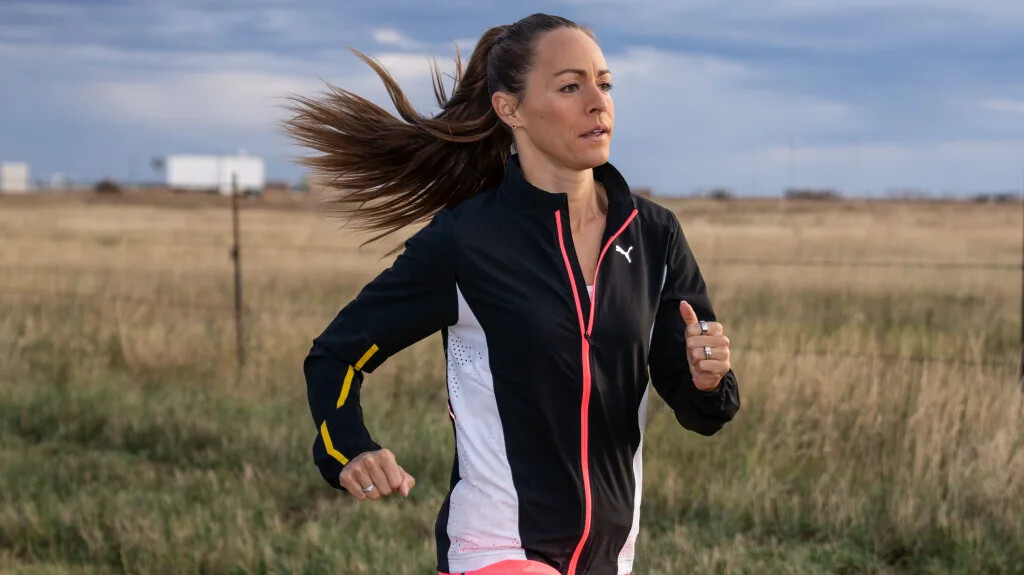
But Simpson’s New Balance contract expired at the end of 2021 — just two days after the fire that displaced her from her home. On January 1, she lost her health insurance coverage from USOPC (to qualify for coverage, an athlete had to have medalled at either the 2019 Worlds or 2021 Olympics, finished in the top 12 at the 2021 Olympics, or finished the season ranked in the top 15 in the world in their event; Simpson no longer met any of the criteria). As 2022 began, she still had Jason, and she still had the support of her longtime coaches, Mark Wetmore and Heather Burroughs. But the other constants in her life suddenly weren’t so constant.
“This last year, I felt more vulnerable than ever,” Simpson says. “The major safety nets in my life have been being a top-performing athlete and being in the tier system and in the USATF system, being a New Balance athlete and knowing I have a future there and my security at home. And my health. All of those things were really wobbly and testy and some of them fell apart in the last year.”
Rebuilding and replacing
One year has passed since the fire that upended Simpson’s world. Some elements of her life have been rebuilt, others replaced. The Simpsons moved back into their house in Marshall on April 1, and after months of work, she says it is 100% back to normal. Her body is also back to full health. That too required months of work.
Simpson had felt pain in her hip area during the fall of 2021 and though she didn’t give it much thought initially, it grew into something that significantly disrupted her training. Even as 2022 began, she remained in denial. After her streak of making teams ended at the 2021 Olympic Trials, Simpson knew she couldn’t afford to miss time if she was to return to her best.
“Pushing through cross training, pushing through the life challenges that we were going through, I definitely made my circumstances a lot worse,” Simpson says. “And I don’t think that’s unusual for runners. That’s kind of in our nature.”
Simpson was determined to avoid surgery, but realized such a path would require a more conservative approach. As winter turned to spring, Simpson, reluctantly, began to back off the intensity to allow her body to heal.
“The toughest thing about having a sports hernia injury and choosing to rehab and go that route and not jump straight into surgery is that it’s just slow,” Simpson says. “And none of us that are athletes, I think in particular runners, want to take anything slow.”
Simpson did not race at all last spring or summer, missing USAs for the first time since 2006 and missing the chance to represent the US at the first World Championships held on American soil. Simpson is now healthy again, but she’s still rebuilding the fitness she lost in 2022.
Another pillar of Simpson’s life — her New Balance contract — had to be replaced rather than rebuilt. Simpson did not want to go into specifics, but says that while New Balance verbally offered her a deal at a reduced level from her previous contract, the two sides ultimately could not reach an agreement. Eventually, Simpson, who had not used an agent since 2014, hired Hawi Keflezighi to negotiate a new deal and announced a sponsorship agreement with Puma in October.
Leaving New Balance behind was painful. Simpson signed with the company coming out of the University of Colorado in 2010, and after 12 years together had envisioned staying with the brand in some fashion for the rest of her life. Seconds after crossing the finish line in 10th in the 2021 Olympic Trials 1500, Simpson looked at the scoreboard and saw that Elle St. Pierre, Cory McGee, and Heather MacLean — all New Balance athletes — had gone 1-2-3 to make the team; Simpson was the first to congratulate them. She figured that, even once her racing days were over, there would still be some sort of role for her at New Balance.
“My whole future in sport and beyond was about how can I take what I’m learning in my career and make that in any possible way benefit the women’s team in the future,” Simpson says. “So seeing that [1-2-3 at the Trials] and knowing there was a strong middle distance future here and how can I continue to pour into that, that’s what I thought my future was.”
A move to the roads and a new beginning
For the first decade of her professional career, Simpson’s running life was fairly straightforward. She was consistently one of the best in the world in her event, meaning she could enter any race she wanted and was always in-demand from her sponsor (two of the reasons she went without an agent for so long). Every year since rejoining Wetmore and Burroughs in 2013 (she was coached by Juli Benson from 2010-12), she would sit down with them and figure out how to be at her best in the biggest race of the year, either the World Championship or Olympic final. More often than not, she succeeded.
But after failing to make the Olympic team in 2021, Simpson began to ponder her athletic mortality. She was nearing her 35th birthday and had a few options if she wanted to stay in the sport.
“The biggest consideration was, do I move up to the 5k, do I try to run a great 10k, or do we do something totally different?” Simpson says.
(LetsRun founder Robert Johnson will be devastated to learn Simpson did not mention the steeplechase, the event in which she won two US titles and set the American record in 2009).
Simpson dipped her toes into Option C by running the Cherry Blossom 10-Miler in September 2021 (she finished 2nd in 52:16). Midway through 2022, she had fully committed to the roads.
“It’s always been part of the plan that I would give the roads some good years of my career,” says Simpson. “And I think I just saw those really good years becoming fewer and fewer and I realistically wanted to make the transition before I was so, not just physically tired, but also just emotionally drained and psychologically drained from the intensity of it.”
The last few years, Simpson carved out a niche as a mentor to some of the up-and-coming athletes in the Colorado program. As a volunteer assistant at CU, Simpson was able to watch runners like Dani Jones and Sage Hurta at practice, then aid their transition to the professional ranks by traversing the circuit alongside them as a competitor/friend. With Simpson’s move to the roads, that period of her career is over.
“I think that’s what I’ll miss the most, is feeling like I get to be a little bit of a mother hen for the [Colorado] women that are doing really well and have a future as a pro in the sport,” Simpson says.
Now, Simpson is heading into the unknown. The training, obviously, is different. Though Simpson ran relatively high mileage for a 1500 runner — it was not uncommon for her to hit 80 miles in a week — she is now running 80+ regularly, doubling up to five times per week. During her track career, a long workout for Simpson would consist of 12 or 14 by 400m. Now she’s running 2k and 3k repeats on the track.
“That’s a long way to go for someone like me,” Simpson says. “…You go out on the first lap or two and you think, Are you kidding me? This is it? But it doesn’t stay easy for very long.”
Simpson has also had to educate herself about the road races themselves. When we first spoke for this story in November, Simpson admitted that, outside of the World Marathon Majors, she didn’t know many of the major road races and was still learning about how they stacked up against each other in terms of prestige.
Part of that is due to how the sport is structured. Track is simple: Worlds or the Olympics is the end goal and the rest of the season is built around that. The roads are different — people reach top fitness at different times. For marathoners, it’s fairly intuitive — pick one race to peak for in the spring and one in the fall. But Simpson isn’t a marathoner (yet). For road racers at shorter distances, it’s more choose-your-own-adventure.
Simpson’s plan: sit down with Wetmore and Burroughs, pick a race to gear that year’s training around, and attack it like they would a World Championship or Olympics.
“Even though it’s not to the world a big World Championships, it will be Mark and Heather and Jenny’s World Championships,” Simpson says.
As for the marathon, Simpson would not commit to running one eventually, but did not rule it out either. She watched Jason, after years of grinding, finally qualify for the Olympic Marathon Trials at CIM in 2018 and knows how difficult the event is. She has no desire to rush into one.
“It is really freaking hard,” Simpson says. “You don’t know for sure that your body is suited for it just because you’ve been a good runner…What it will take for me to run a marathon? If I have a great half and I feel like my body’s handling that workload really well, we’ll absolutely do a marathon. Because at that point, you’ve gotta find out, right?”
Next stop: Houston
The big question hanging over all this: will Jenny Simpson be any good on the roads? It’s no certainty that prime Simpson, the one who won a record eight Fifth Avenue Miles, would have been a force over 10k and beyond, much less the 36-year-old version coming off the most disruptive injury of her career.
Thirty-six is not necessarily old by distance standards, though. Last year, Keira D’Amato broke the American marathon record at 37 and Sara Hall broke the American half marathon record at 38. Like Simpson, both were for a time milers on the track before moving up — though it took each several years before their big breakthrough.
After down years in 2021 and 2022, logic says Simpson could have a tough go of things. The bar for success, certainly, will have to be recalibrated. At her best on the track, Simpson was one of the top three women in the world in her event. That level of accomplishment is virtually impossible for her on the roads, but could she become one of the best in the US in the 10k, half, or marathon?
Her road debut at Cherry Blossom in 2021 was auspicious (2nd place, 52:16), her appearance at last fall’s USATF 5K champs in New York less so (she was 17th in 16:07, 39 seconds behind winner Weini Kelati) — though Simpson wasn’t fully fit in New York and knew that going in.
2023 will be the real test of whether Simpson has anything left to give on the roads. And for Simpson, 2023 begins in Houston, where she will make her half marathon debut on Sunday. There is a lot riding on the outcome, which is how Simpson likes it. She has yet to pick that one race that she will plan her 2023 season around; Houston will help her make that decision.
“This will kind of chart my course of whether we stick with the half marathon, whether I start dreaming about a marathon, or whether I say maybe it’s better for me to get back on the track, spike up, and do some faster stuff over the next year,” Simpson says.
Simpson says that while her training has gone well, the adjustment to training for the half marathon has been more challenging than she expected.
“When I ran Cherry Blossom and I ran 5:14/mile pace the whole way, the idea of running 5:10’s for a half marathon (67:43 pace) seemed right around the corner,” Simpson says. “Now having gone through a year of injury and a lot of other life challenges, I’m having to adjust what I think my half marathon debut is going to look like.”
Simpson will have Jason with her as a pacer on Sunday and said they will plan to go out faster than her pace at the Army 10-Miler in October, a race she won in 54:16 (71:08 half marathon pace). She says she has a time goal in mind but elected not to share it. Her main hope is that she can finish the race well. During her track career, Simpson was famous for her strength in the final 100 meters, but in her last two road races, she felt as if she was holding on for dear life at the end.
Simpson will step to the line on Sunday with an uncertainty that did not exist during her track career. When Simpson started a 1500-meter race, she came armed with knowledge gleaned from years of experience. She knew exactly what sort of time she could expect her workouts to translate to and how to respond tactically to every race scenario. In the half marathon, she’s starting over.
“That’s one of the trepidations of going into the race in Houston is that I’m so used to having such a clear idea of what I am capable of,” Simpson says. “My race in Houston will be as much of a discovery as the training has been.”
Even Simpson admits she doesn’t know how many more years she’ll continue to race professionally. A few years ago, she had scripted out a storybook ending for herself: a fourth Olympic team in Tokyo and a home World Championships in front of friends and family in Eugene. Make those two teams, she thought, and she would have total freedom to do whatever she wanted afterwards, whether it was continuing to race on the roads, pursuing a coaching career, or starting a family.
That, of course, did not happen. In professional sports, endings rarely go according to plan. But Simpson is embracing the adventure that comes with her new path, wherever it leads.
“The idea I had in mind was kind of cool, but there are some things that we’re now looking forward to that I couldn’t have even imagined,” Simpson says. “And if it turns out that way, it will end even better.”
(01/12/2023) ⚡AMPby Jonathan Gault
Aramco Houston Half Marathon
The Chevron Houston Marathon offers participants a unique running experience in America's fourth largest city. The fast, flat, scenic single-loop course has been ranked as the "fastest winter marathon" and "second fastest marathon overall" by Ultimate Guide To Marathons. After 30 years of marathon-only competition, Houston added the half-marathon in 2002, with El Paso Energy as the sponsor. Today the...
more...Strava receives criticism after raising prices 25 per cent
As the world’s most popular social networking app for endurance athletes reaches 100 million users worldwide, Strava informed users that they will be raising membership fees by 25 per cent in 2023. The cost to join will jump from $7.99 to $11.99 a month. The Internet wasn’t too enthused to hear about the price hike, especially after the company offered a 25 per cent off coupon for memberships at the end of 2022.
The new pricing structure will only apply to new users in the U.K. for now. Those who have been grandfathered in won’t see a price rise until the following month or year (depending on their plan).
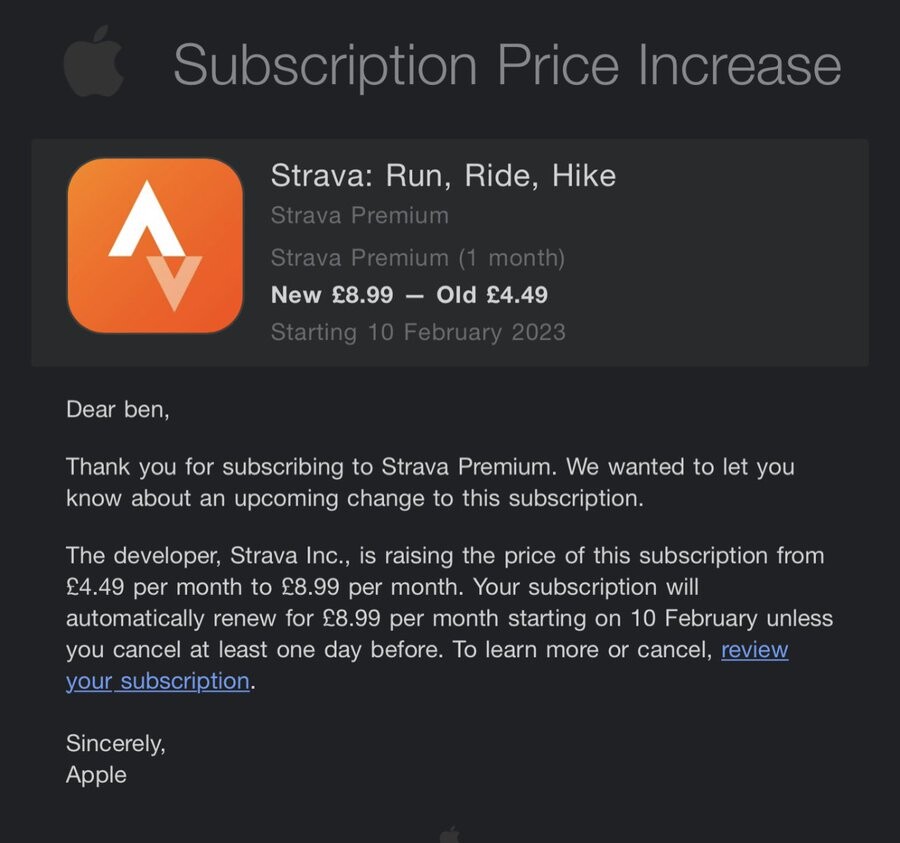
According to an online report, the price hike comes less than a month after Strava laid off 38 employees. The report shows that multiple former employees confirmed the news on their LinkedIn page, a social network used for business and employment.
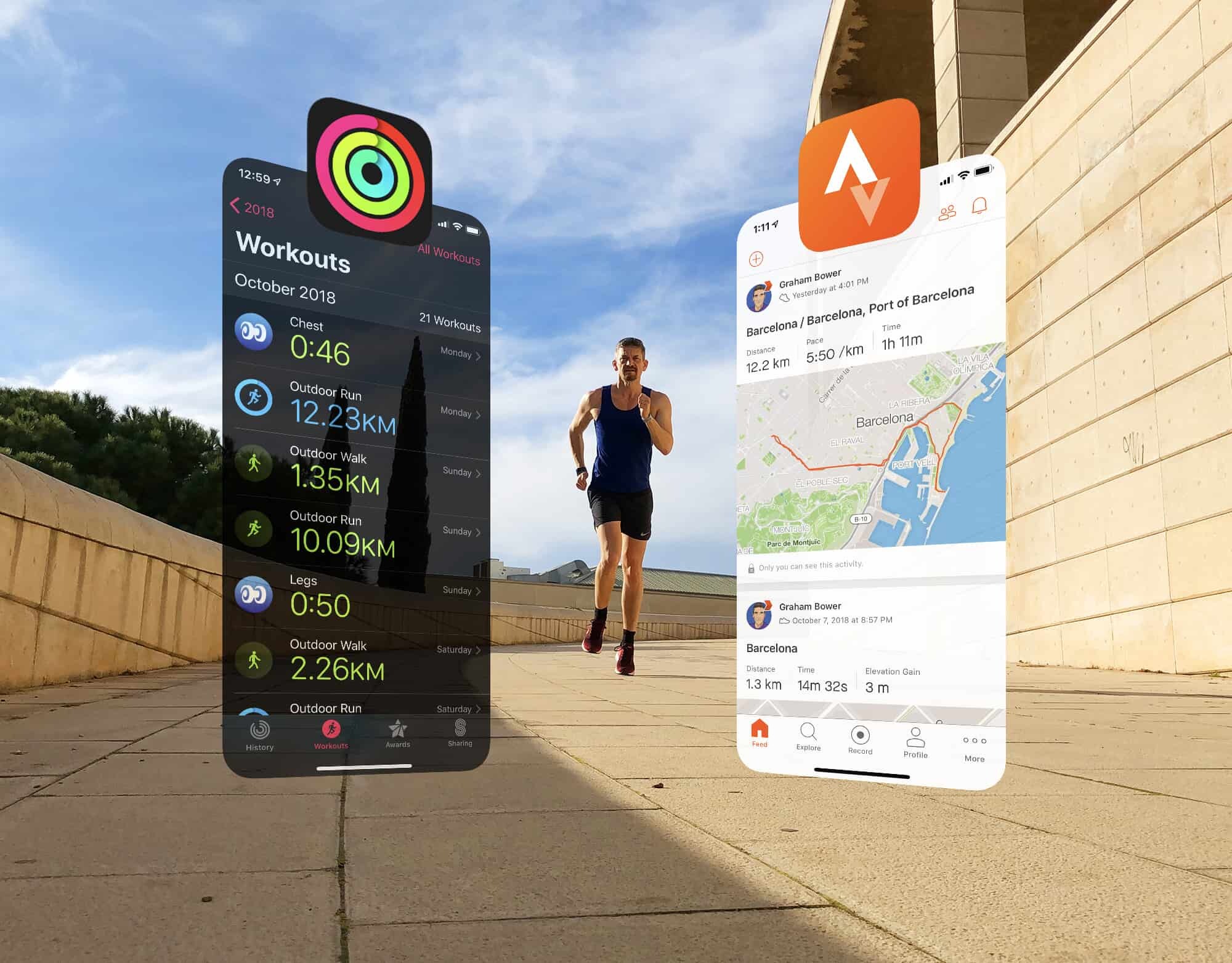
The price hike is scheduled to apply to users in Canada and U.S. on Feb. 6. The decision to increase the prices has prompted criticism on Twitter from users who have been members for years. Strava has yet to comment on the decision-making behind the price increase.
One Twitter user said, “I can post my outrage over the increase or cancel my membership but $80 per year is still far less for something I use every day than one pair of super shoes… which you only use for two or three days.”
(01/12/2023) ⚡AMPby Marley Dickinson
Three running habits to break right now
New seasons, new years, new months–really, any day can be the perfect one to make a fresh start and break some training habits that might not be serving you. Here are a few common habits (hey, most of us have been guilty of at least one of them) that runners should toss as soon as possible. Ditch these old ways of training–or at least give it a try, and see if switching things up works for you.
1.- Trying to make your runs look good on Strava
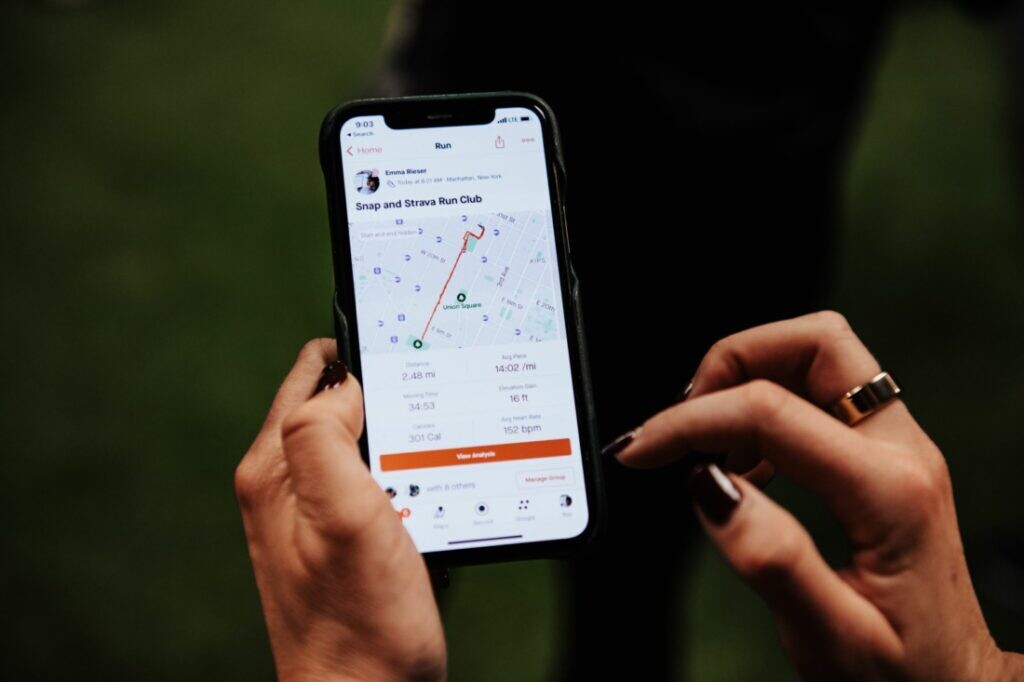
If there’s one thing I’ve learned as both a coach and an athlete, it’s this: over the long term, the workouts that build strength, power and endurance don’t come across as sexy on Strava. Consistency works. Sometimes that means you’ll be hammering out a snappy tempo run, but usually that means just getting out the door for easy mileage. If you’ve ever avoided a hill because you wanted to nail a certain pace on Strava, you could probably benefit from taking a Strava-snooze from worrying about what others think.
It’s definitely OK to be proud of what you’re accomplishing in your running journey. If you ever find yourself getting too fixated, though, use the handy Strava setting to make your running record private, even for a short time. You might find you feel less stressed about the data showing up and able to focus more on the consistent effort you need to put in.

2.- Running solo (or in a group) all of the time
It’s really easy to get in a comfort zone of running alone all the time, or feeling like you need your running buddy or group as motivation to get out the door. Everyone has their preference, and it’s completely fine to enjoy most of your training alone or with your running pals. Switching it up every so often is healthy, though, in a few ways. Research has shown us that trying new (and possibly uncomfortable things) is good for our brains and may contribute to longevity.
You will probably be surprised at how much you enjoy the change of pace and dynamic. After a few months of running solo, my husband and I joined a local running group for a 10K run while we were traveling. We made new connections, felt inspired to return, and left discussing how we needed to head out to our own local group more often. We’re not saying you need to change your ways entirely! Just be open to changing it up every so often.
3.- Eating less on your recovery days
Just stop this. If anything, really dial in and focus on eating well and hydrating on your recovery days, when you have a little more time to think about it. Far too many runners cut down their intake on recovery days because they aren’t plowing through as much energy without a workout–but the real secret to recovering quickly and being able to bounce back after hard sessions is making recovery days the time to focus on replenishment and proper sleep.
Recovery time is when strength is truly built–our bodies repair damaged tissue and prepare to work hard again. In order for your body to do that, it needs energy. Fuel it well, regardless of how many kilometers you logged that day.
One more: taking any advice as black and white (even this)
Almost everything, even in running, is full of nuance and answers that only serve most runners some of the time. Becoming a strong runner means trying new and different things and finding what works best for you. Keeping an open mind to new suggestions, opportunities, and different paths (and trails) helps keep both your muscles and neurons firing, and may help keep a smile plastered to your face as you train.
(01/12/2023) ⚡AMPby Keeley Milne
Boston Athletic Association announces 2023 Boston Marathon men´s field
The Boston Athletic Association (B.A.A.) announced today the men’s professional field for the 127th Boston Marathon, featuring 15 men who’ve run under 2:07 for the marathon distance, as well as multiple Abbott World Marathon Major race champions, Olympic and Paralympic stars.
Today’s announcement expands upon four previously announced men’s entrants including world record holder and double Olympic gold medalist Eliud Kipchoge, reigning Boston Marathon champion Evans Chebet, 2021 winner Benson Kipruto, and two-time victor Lelisa Desisa. A total of 109 men’s athletes from 21 countries are in this year’s professional field across the men’s Open, Wheelchair, and Para Athletics Divisions.
“The Boston Marathon is known for its competitiveness, with many races decided in the final meters on Boylston Street,” said Mary Kate Shea, B.A.A. Director of Professional Athletes. “This year’s field brings together athletes who’ve excelled at both speed and championship-style racing. Combined with the women’s professional field announced on Monday, this will be the fastest and most decorated Boston Marathon across all of our divisions in race history.”
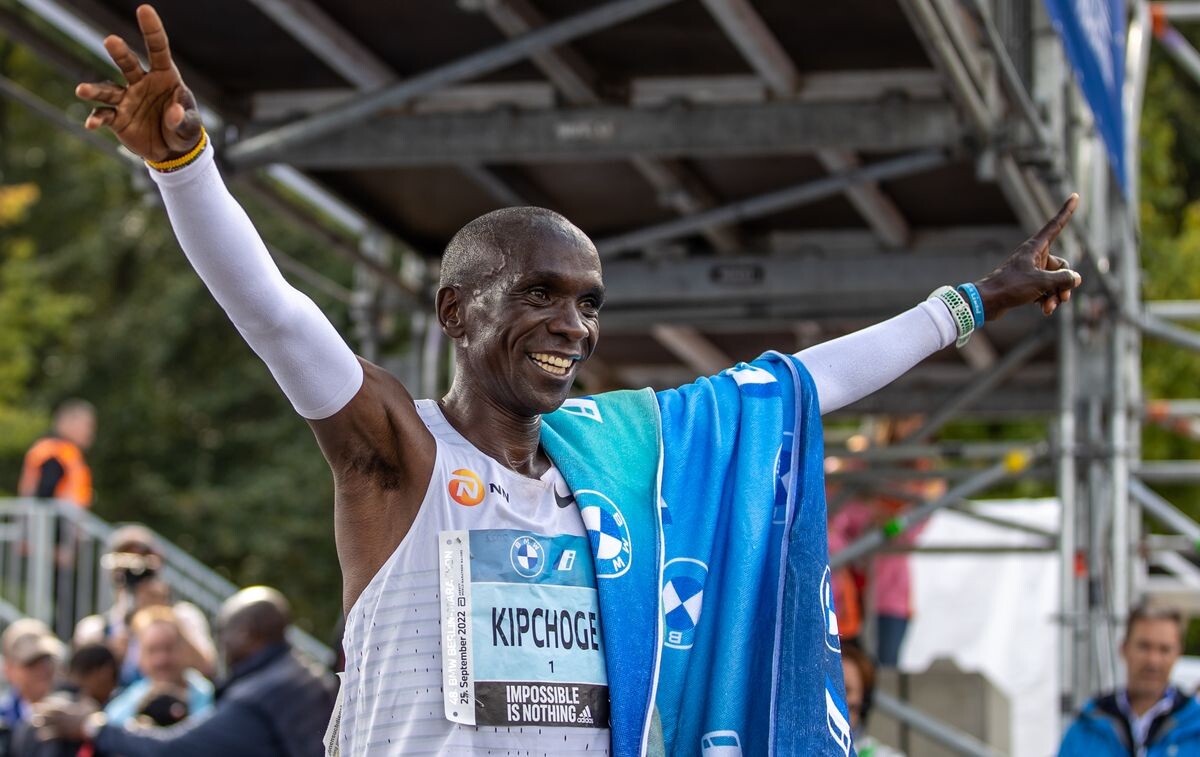
Behind Kipchoge and Chebet, the fastest man in the field will be Tanzanian national record holder Gabriel Geay, who finished runner-up at the Valencia Marathon last month in 2:03:00. Geay has had success racing on the roads of Boston, winning the 2018 B.A.A. 10K, placing fourth at last year’s Boston Marathon, and finishing in second and third at the B.A.A. Half Marathon in 2019 and 2018, respectively.
“I am excited to be returning to the Boston Marathon this year,” said Geay. “I fulfilled a dream by racing in Boston last year, but my goal is to one day win the race, and I hope that 2023 will be my year. Thank you, Boston for the opportunity!”
Joining Geay will be past Abbott World Marathon Majors winners including Albert Korir of Kenya (2021 New York City champion), Ghirmay Ghebreslassie of Eritrea (2015 World Championships gold medalist and 2016 New York City champion), and Shura Kitata of Ethiopia (2020 London Marathon champion). Brazilian Olympian and national record holder Daniel Do Nascimento will make his Boston debut, as will Ethiopia’s Herpasa Negasa, a 2:03:40 marathoner.
Last year’s seventh-place finisher and top American, Scott Fauble, returns for his fourth Hopkinton-to-Boston race, and will be joined by 50K world record holder CJ Albertson. After a 2:08:16 marathon debut in Chicago last year, Conner Mantz will take on the Boston course for the first time. He is coached by Olympic marathoner Ed Eyestone.
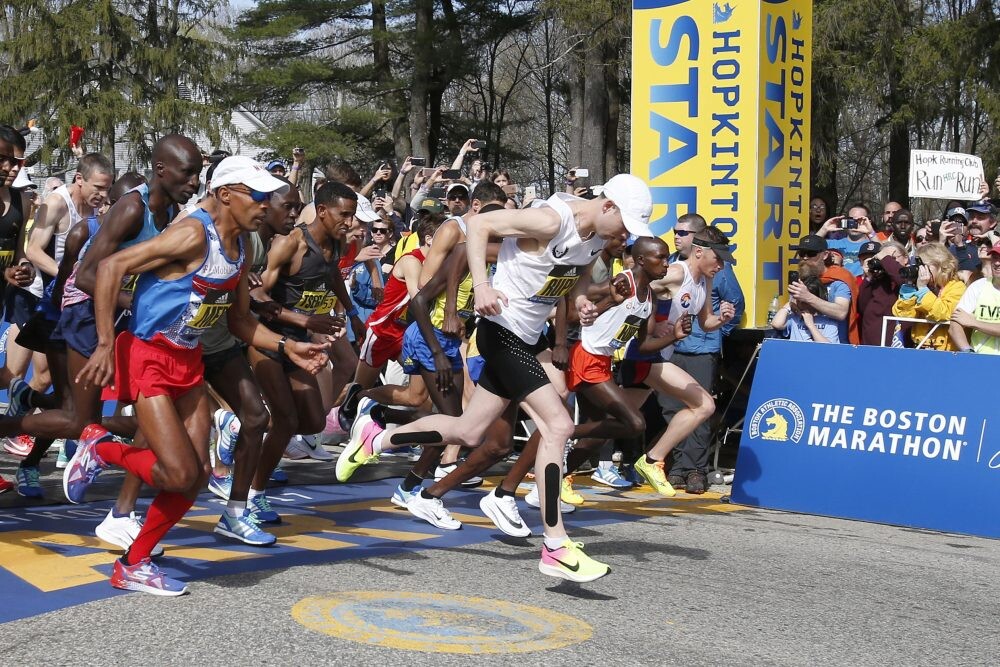
“I love the Boston Marathon. It’s one of the greatest sporting events in the world,” said Fauble. “It has a way of bringing the best out of people.”
"Boston is such a historic marathon, and I want to be a part of that history,” said Mantz. “I love the aspect of racing with no pacers and hills that break up rhythm, and Boston has both of those. When you add in the competition Boston is bringing this year with Eliud Kipchoge and many others, it makes the race so exciting!"
Ben True, a Maine native and four-time winner of the B.A.A. 5K, also is part of the American field. B.A.A. High Performance Team members Matt McDonald, Paul Hogan, and Jonas Hampton will have the hometown edge; McDonald set a new B.A.A. club record and lifetime best of 2:09:49 in Chicago last fall.
American Daniel Romanchuk will return as defending champion in the wheelchair division, coming off a 1:26:58 victory last April. Romanchuk also won Boston in 2019 (1:21:36), though he looks to be challenged by wheelchair marathon world record holder and reigning Paralympic marathon gold medalist Marcel Hug. Hug returns in search of his sixth Boston Marathon title and holds the Boston course record of 1:18:04. In 2022 the Swiss ‘Silver Bullet’ won the B.A.A. 5K in 10 minutes, 5 seconds, a course record time.
“Nothing can compare with the excitement and anticipation at the Boston Marathon,” said Romanchuk. “I’m incredibly excited and honored to be part of what should be a great race through the hills and all the way to Boylston Street.”
Aaron Pike, last year’s wheelchair division runner-up, and Ernst van Dyk, a ten-time Boston winner, are also racing. A $50,000 course record bonus is available to any open division or wheelchair division athlete who breaks a course record.
Paralympians Matthew Felton and Atsbha Gebre Gebremeskel lead the Para Athletics Division in the T46 classification (upper-limb impairment). American record holder and Massachusetts native Chaz Davis will look to defend his T12 (vision impairment) Para title.
Headlining the T62 and T63 classification are Marko Cheseto Lemtukei and Brian Reynolds. Cheseto Lemtukei earned a victory in 2:37:01 last year, while Reynolds set a pending T62 world record of 1:25:46 at the B.A.A. Half Marathon in November.
“A perfect society is one that sees diversity of its members as her strength,” said Cheseto Lemtukei, who returns as a two-time Boston Marathon Para Athletics Division champion.
The 127th Boston Marathon will be held on Monday, April 17, 2023 – Patriots’ Day in the Commonwealth of Massachusetts—and will feature 30,000 participants.
(01/11/2023) ⚡AMPby Boston Athletic Association
Boston Marathon
Among the nation’s oldest athletic clubs, the B.A.A. was established in 1887, and, in 1896, more than half of the U.S. Olympic Team at the first modern games was composed of B.A.A. club members. The Olympic Games provided the inspiration for the first Boston Marathon, which culminated the B.A.A. Games on April 19, 1897. John J. McDermott emerged from a...
more...Toronto man runs entire subway system in cool challenge
On Saturday morning, Alex Cutulenco may have found a better way to deal with Toronto traffic: he ran 96 kilometers, covering all of the city’s TTC subway lines, in under nine hours.
Cutulenco wanted some motivation to get back on the roads in the new year, so he registered for the TTC Virtual Challenge through the Canada Running Series. The TTC Virtual Challenge requires participants to walk or run 76.5 kilometers (the length of Toronto’s subway system) anytime before January 31. (Registration is now closed.)
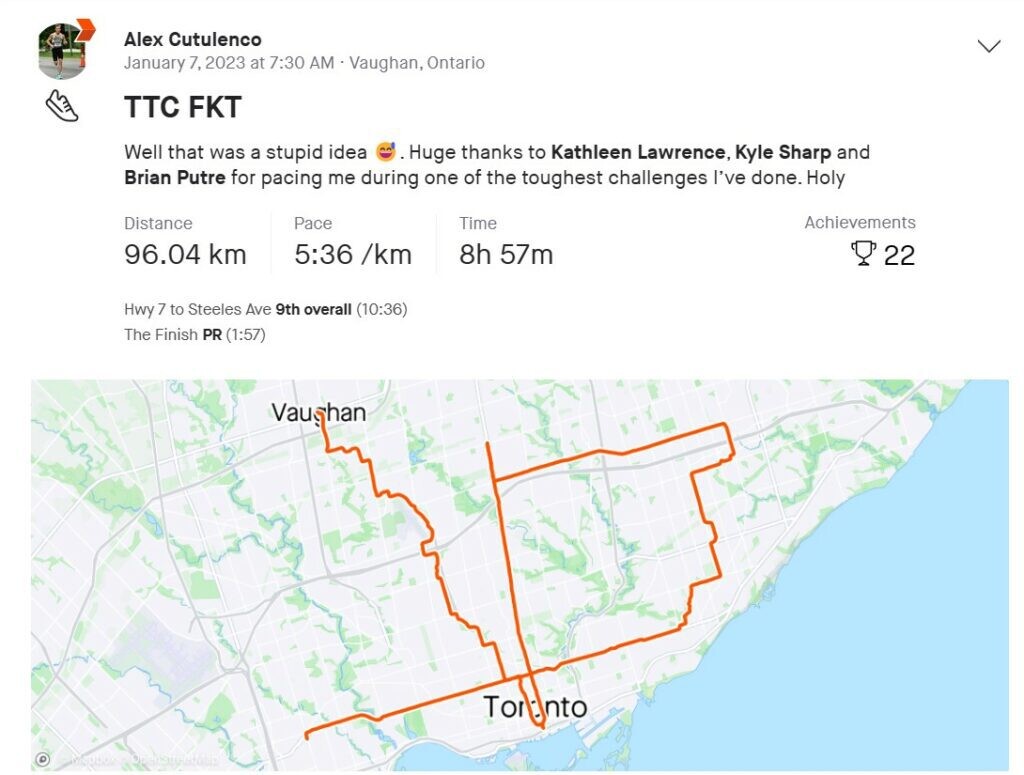
“I am always looking for new challenges and ways to make winter running fun,” says Cutulenco. “I wanted to take this challenge to the next level. When I drew out the entire course, matching the TTC lines, and saw that it yielded nearly 100K, which felt up my alley.”
Cutulenco started his run at Vaughan Metropolitan Center, which is approximately 25 kilometers away (and a 50-minute ride) from Toronto’s Union Station. Then he headed south to Union, then north toward Finch, marking the end of Line 1. “Line 1 was the hardest part,” Cutulenco says. “From Union to Finch is all uphill, but thankfully I had several running friends there to support me during my challenge.”
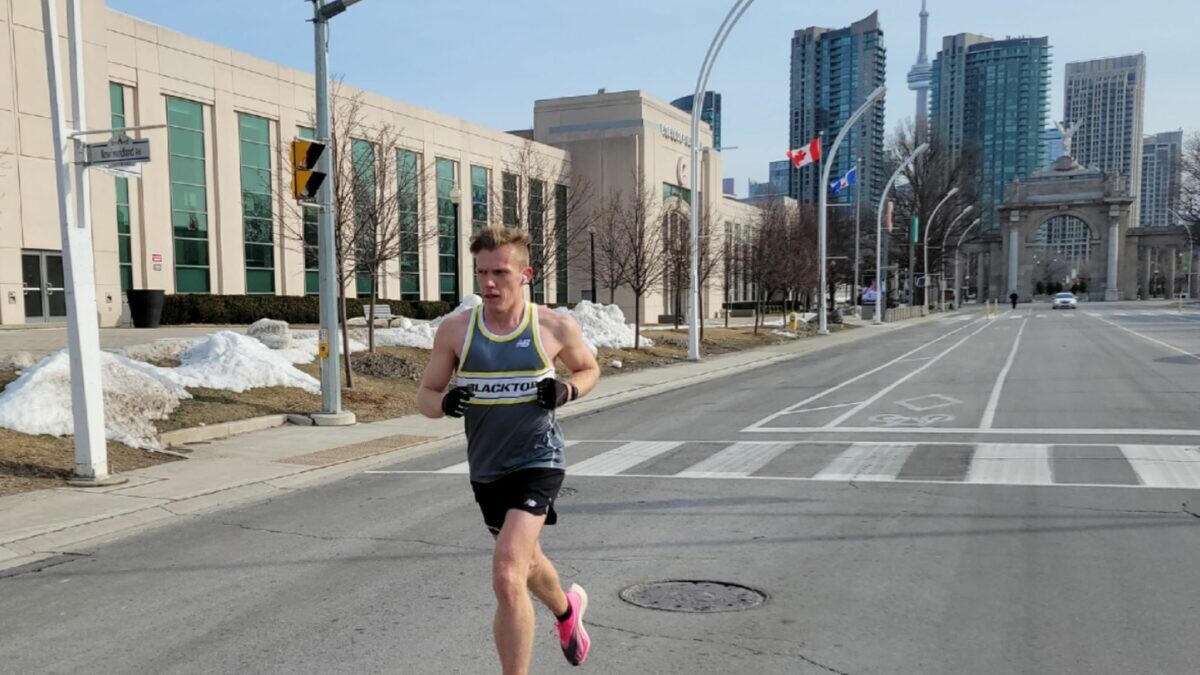
Out of the 96 kilometers, Cutulenco states he ran solo for only 17 of them. “My biggest fear was my brain not being capable of navigating down the home stretch,” he laughs.
His friends from his BlackToe training group and his wife, Sofia, supported him over the eight hours and 57 minutes of running, while Cutulenco averaged a speedy 5:30/km pace. “Without the support, this challenge would have never been possible,” he says.
“My wife thought I was nuts by the end of it,” laughs Cutulenco. “I am not sure if I’ll be touching the ultramarathon distance anytime soon, but maybe once (Toronto’s) Eglinton TTC line is finished.”
Cutulenco crossed his virtual finish line at Etobicoke’s Kipling Station, marking the end of Line 2, only 20 kilometers south of where he started in Vaughan.
The 29-year-old is no stranger to running cool accolades and accomplishments. In November, he was second at the Road2Hope Hamilton Half-Marathon in 1:13:18, and in September, he was one of the top Canadian finishers at the 2022 Berlin Marathon.
(01/11/2023) ⚡AMPby Running Magazine
Fit-again Philemon Rono bullish ahead of Sunday's Mumbai Marathon
Fit-again Philemon Rono remains optimistic ahead of his Mumbai Marathon on January 15, in Mumbai, india.
Rono, popularly known as 'Baby Police' due to his pint-sized stature, Rono said he has managed to fend off a calf injury in time for his first outing of the year.
“I missed last year’s last season due to an injury but I have fully and ready for the Mumbai race,” said Rono, who is based at the Global Sports Communication in Kaptagat.
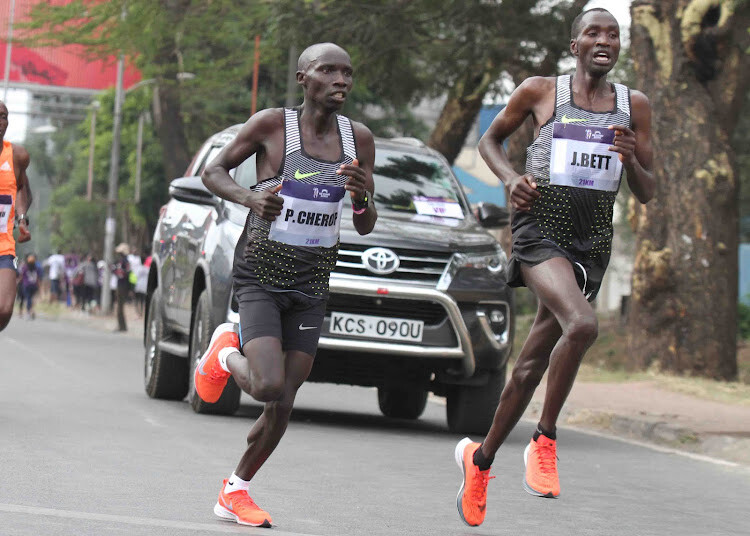
Rono, who won the 2017, 2018 and 2019 Toronto marathon will be up against defending champion Derara Hurisa from Ethiopia, who clocked 2:08:09 to break the course record of 2:08:35, set by Kenya’s Gideon Kipketer.
“I want to have a better time in India. I have competed in some half marathons in the country but I am heading there for my first marathon. I have previously run in New Delhi and Bangalore,” he added.
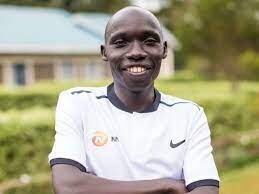
Abshero, who was second behind Hurisa at this event last year, comes to this race with the fastest time of 2:04:23 set while winning the 2012 Dubai Marathon.
Rono established himself globally as a pacemaker, pacing for former world marathon record holder Wilson Kipsang (2:03:23). The 31 year-old trains alongside world marathon record holder Eliud Kipchoge, two-time world champion Abel Kirui, Laban Korir, Augustin Choge among other top stars.
(01/11/2023) ⚡AMPby Emmanuel Sabuni
Tata Mumbai Marathon
Distance running epitomizes the power of one’s dreams and the awareness of one’s abilities to realize those dreams. Unlike other competitive sports, it is an intensely personal experience. The Tata Mumbai Marathon is One of the World's Leading Marathons. The event boasts of fundraising platform which is managed by United Way Mumbai, the official philanthropy partner of the event. Over...
more...Four emergency hacks for race day malfunctions
As runners, we settle for nothing but the best. We put our bodies through months of training for a few hours of hard work and glory. You can prep as much as possible for an upcoming race, but that doesn’t guarantee smooth sailing on race day. Although we tend to plan for the best-case scenario, you should also prepare for the worst.
If you come across any of these race day malfunctions, here are four hacks to overcome them.
1.- Safety pin broken shoelaces
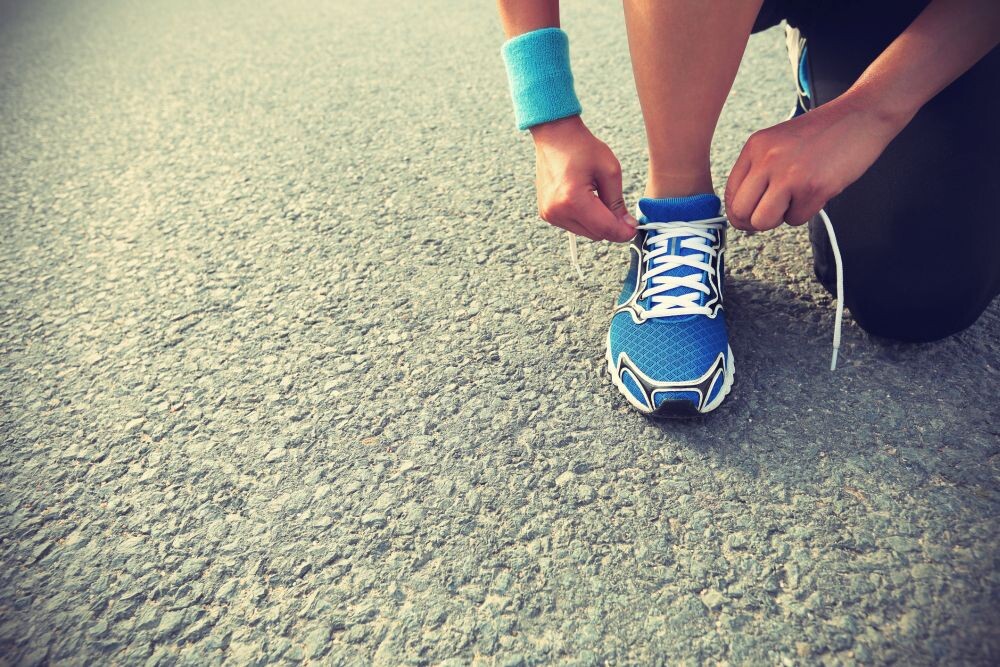
Most shoelaces are durable, but you never know when the eyelids or laces will give out. If either happens to you on race day, use one of the four safety pins holding up your bib number to create a new eyelid or reconnect the lace together. The safety pin will hold up tougher than you think, keeping your shoes fitted on and race goals intact.
2.- GPS can’t connect? Go old-school
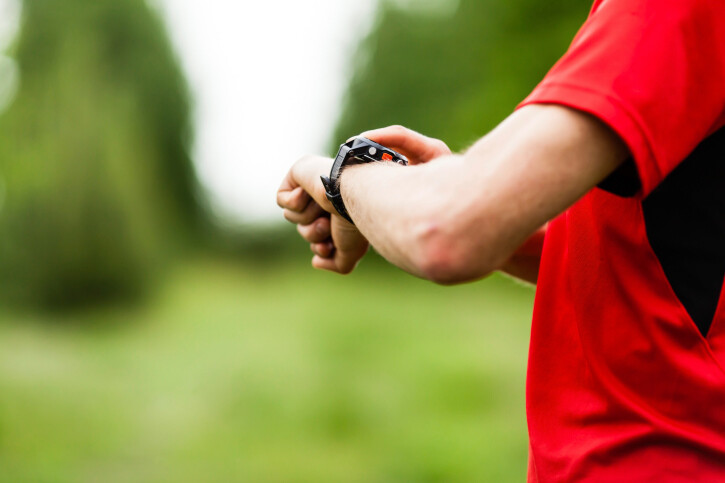
Sometimes it takes a while for GPS watches to pinpoint your location and calibrate with satellites, especially in big cities. This might seem like the end of the world while standing at the start line, but don’t panic.
Instead of sticking your wrist in the air while trying to sync up. Use the watch’s stopwatch function for the time being, and wait until the watch connects to the satellites.
Most races in this day and age have distance markers at every mile or kilometer, therefore, there isn’t any need to look at pace or distance on your watch anyways.
3.- Chafing during warm-up
Another race day malfunction beyond your control is chaffing—it happens to the best of us. Chafing is skin irritation that can occur when clothing rubs against the skin or skin rubs against another part of the body. Exposure to sweat, moisture or an irritating fabric can increase the likelihood of experiencing chafing.
You can fight against chafing by taking care of your sensitive areas with products like Vaseline or Body Guide. Some sensitive areas for runners are nipples, inner thighs, groin, and armpits. Using these lubricants on areas of high abrasion can prevent irritation on race day. If you can’t find either product, try using a Band-Aid or medical tape to cover the area.
4.- Blister prevention 101
Do not let a blister spoil you from achieving your personal best. If you are racing anything between 10K and the marathon, anticipate getting blisters on your heel and combat them ahead of time with blister pads or kinesiology tape. It is easier to take preliminary precautions than to suffer the possible consequences.
(01/11/2023) ⚡AMPby Marley Dickinson
Here’s why oatmeal is a superfuel for runners
A simple bowl of oatmeal with some berries thrown on top just might be the fuel that powers you to your next PB. While every runner has differing dietary needs, oatmeal checks off some of the boxes for most of us and can be a great way to start your day or to have as a snack post-run. Here’s why you should go back to basics and fill up your bowl with oats this morning.
Oatmeal is nutritionally rich and inexpensive
One ½ cup serving of old-fashioned oats contains 28 grams of carbohydrates. Carbs are your friend as a runner–and some sources, like oatmeal, are more nutrient-dense than others. Oats contain complex carbohydrates and are full of fiber, which aids in slowing down the rate at which carbs are released into your bloodstream.

Anyone who has ever experienced the phenomenon called ‘bonking’ (also sometimes called hitting the wall) will appreciate oatmeal for its ability to fuel you for longer without a crash.
Sports dietitian Pamela Nisevich Bede explains: “when you’re looking to hit a performance goal, you’ll need a steady intake of carbs throughout the day to keep your glycogen levels high and your body ready to go whenever the opportunity for a sweat session arises.
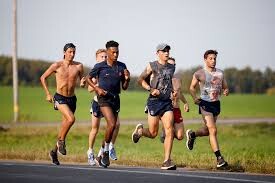
Oatmeal is great post-run, too–while we often focus on the protein we need to eat after a workout, carbs are necessary to replenish glycogen stores so that you’re primed for your next workout.
Choose toppings to make your bowl extra delicious (and even more nutritious)
Oats are already a tiny powerhouse of nutrition, packed with a variety of vitamins and minerals that help support overall health and well-being, including iron, zinc and B vitamins. Add a few toppers, and you’ll create a bowl to suit almost anyone’s taste–and you’ll check off even more of your dietary needs while you’re at it.
Instead of adding brown sugar to sweeten a bowl of plain oats, top it with cinnamon, berries, or milk (soy and almost milk work perfectly if you’re opting out of dairy). Add some protein by whisking in an egg white (your oats will be incredibly creamy and delicious) or add a scoop of your favorite healthy protein powder.
Research suggests that the ideal carbohydrate-to-protein ratio after endurance exercise is around 4:1. Whisking an egg into your oatmeal and topping it with banana, chopped apple or raisins will nail that perfect post-run ratio.
Time your oatmeal toppings for optimal energy and recovery
The list of things to add to your oats is seemingly endless, but it’s a good idea to be aware of the timing of your toppings. Chia seeds and flax are often included in recipes for overnight oats: milk or yogurt and toppings are added to your oats the night before you eat them, eliminating the need to cook your oats and allowing them to soak in that deliciousness.
While we love tasty overnight oats and both chia seeds and flax add a fabulous nutritional boost, they also add fiber (usually a good thing, but timing is everything). Use caution when adding extra fiber to your bowl if you’re eating it pre-run.
While oatmeal in general is very gentle on most stomachs as a pre-run fuel, adding fiber right before you run may have you making a dash for the nearest public washroom. Save the fiber-rich toppings for the days you have more time to digest before you run, or for your post-run fix.
(01/10/2023) ⚡AMPby Running Magazine
2024 Olympic Track & Field Schedule Is Out
On Monday, World Athletics announced the schedule for the 2024 Olympic Games, to be held in Paris on August 1-11, 2024 (only 570 days to go!). There were a few key changes from three years earlier in Tokyo.
First, all track & field finals will be held during the evening sessions (some finals had been held in the morning during the 2016 and 2020 Olympics). The marathons will remain in the morning, though the men’s marathon will no longer be held on the final day of the Games, as had been tradition. That honor for the first time will go to the women’s marathon, which will be held on August 11. Giving women the honor makes sense given that, per Reuters, the “marathon route was modelled on the path of the October 1789 Women’s March on Versailles – when thousands, mainly female market traders furious over the price of bread, marched to the lavish palace of King Louis XVI.” In 2024, the men’s marathon will come on the penultimate day, August 10.
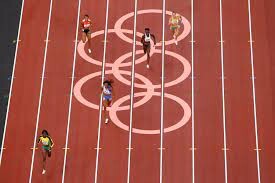
The other major change is the introduction of a repechage round, which will replace time qualifiers in five events: the 200, 400, 800, 1500, and 400 hurdles. Under the new format, any athlete who does not advance automatically from the first round will compete in an extra race –the repechage round — to earn their spot in the semifinals. Qualification from semifinals to the final will remain the same.
While every evening session has at least one final, you may want to circle August 8, 2024, on your calendar right now. That night is set to feature the finals of the women’s 400 hurdles (Sydney McLaughlin-Levrone), men’s 200 (Noah Lyles vs. Erriyon Knighton), and men’s 110 hurdles (Grant Holloway), plus the semis of the women’s 1500 meters.
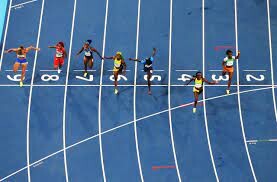
A number of doubles — 100/200, 800/1500, 1500/5,000, 5,000/10,000 — are very feasible under the current schedule. But what about the 400/400 hurdles, 400/800, and 1500/5,000/10,000 — the doubles (and triple) that would appeal to superstars Sydney McLaughlin-Levrone, Athing Mu, and Jakob Ingebrigtsen? None of them are impossible.
Possible doubles/triples
Men’s 1500/5,000/10,000 (Jakob Ingebrigtsen)
We’ve got great news for Jakob Ingebrgitsen fans. You’ll likely see him running in two — maybe three — events at Paris.
At the Tokyo Olympics, Ingebrigtsen would have liked to have done the 1500/5000 double like he did at the 2019 and 2022 Worlds but he only ran the 1500 as the two events overlapped a ton. In Tokyo, the 1500 was held on August 3 (a.m.), August 5 (p.m.), and August 7 (p.m.) and the 5000 was held on August 3 (p.m.) and August 6 (p.m). In Paris, 1500/5000 double is eminently more doable as the 1500 finishes before the 5000 even starts.
And there is even more good news. Last year, Ingebrigtsen made headlines by saying he wanted to do what Sifan Hassan did in 2021 and triple at the 2023 Worlds and 2024 Olympics: 1500, 5,000, and 10,000. The triple is basically impossible at the 2023 Worlds. At the 2024 Olympics, it’s tough but doable: it would require two races on August 2 (1500 first round in the morning, 10,000 final 10 hours later), and it would require running the 1500 final at 9:00 p.m. on August 6 and the 5,000 first round 14 hours later on the morning of August 7.
In Tokyo, Hassan had to run two races on the same day (1500 prelims in morning, 5,000 final in evening) and also had to run finals on consecutive days (1500 followed by 10,000). In Paris, Ingebrigtsen would get four days between the 10,000 and 1500 finals and another four days between the 1500 and 5,000 finals.
August 2, 11:05 a.m.: 1500 first round
August 2, 9:20 p.m.: 10,000 final
August 4, 9:10 p.m.: 1500 semis
August 6, 9:00 p.m.: 1500 final
August 7, 11:00 a.m.: 5,000 first round
August 10, 8:00 p.m.: 5,000 final
Women’s 1500/5,000/10,000 (Sifan Hassan)
Given Sifan Hassan already did the 1500/5,000/10,000 triple in Tokyo about as well as anyone could (bronze-gold-gold) and given it took her close to a year to return to racing in 2022, it would be a surprise to see her attempt the triple again in Paris. But if someone else — perhaps World Indoor 1500/World Outdoor 5,000 champ Gudaf Tsegay — is so inclined, it’s possible to triple. The toughest part would be running the 1500 first round the morning after the 5,000 final and running the 10,000 and 1500 final on back-to-back nights (the latter was also the case for Hassan in 2021, though the order of the 10,000 and 1500 finals were flipped). But unlike in 2021, all the races are on different days.
August 2, 6:10 p.m.: 5,000 first round
August 5, 9:20 p.m.: 5,000 final
August 6, 10:05 a.m.: 1500 first round
August 8, 8:05 p.m.: 1500 semis
August 9, 8:55 p.m.: 10,000 final
August 10, 8:25 p.m.: 1500 final
Women’s 400/400 hurdles (Sydney McLaughlin-Levrone, Femke Bol)
No woman has ever won the 400/400 hurdles double at the Olympics, but superstars Sydney McLaughlin-Levrone and Femke Bol could attempt it in Paris. It would require racing six days in a row (seven including the 4×400 relay final) but never more than once in a day. That’s about as good as you can ask for.
August 4, 12:35 p.m.: 400 hurdles first round
August 5, 11:55 a.m.: 400 first round
August 6, 7:45 p.m.: 400 hurdles semis
August 7, 8:45 p.m.: 400 semis
August 8, 9:05 p.m.: 400 hurdles final
August 9, 8:00 p.m.: 400 final
August 10, 9:20 p.m.: 4×400 relay final
Women’s 400/800 (Athing Mu)
Athing Mu won the women’s 800 at the 2020 Olympics and 2022 Worlds and is the NCAA record holder in the 400 meters at 49.57. After winning gold in Tokyo, she said one of her next goals is to double up in the 400/800. The double is possible in Paris but not perfect as it would require her to race three sessions in a row — the night of August 4 in the 800 semis, the morning of August 5 in the 400 first round, and the night of August 5 in the 800 final. The good news is Mu has will have some time to recover as there is a rest day between the 800 final and 400 semis and another rest day between the 400 semis and 400 final.
In a perfect world the 800 semis and 400 first round would both be shifted forward by a day but that’s not going to happen because it would require running the repechage and semifinal round of the 800 on the same day.
August 2, 7:45 p.m.: 800 first round
August 4, 8:35 p.m.: 800 semis
August 5, 11:55 a.m.: 400 first round
August 5, 9:50 p.m.: 800 final
August 7, 8:45 p.m.: 400 semis
August 9, 8:00 p.m.: 400 final
August 10, 9:20 p.m.: 4×400 relay final
Women’s 200/400 (Shaunae Miller-Uibo)
Two-time Olympic 400 champion Shaunae Miller-Uibo of the Bahamas attempted the 200/400 double in Tokyo and made the finals of each event. But she wound up going through the motions of the 200 final, finishing last in 24.00 (after running the first round of the 400 that morning), before running a personal best of 48.36 to win the 400 three days later. The 200/400 double is once again possible in 2024, but Miller-Uibo’s weaker event, the 200, would once again come first. It would also require running twice in one day, though neither of the races would be finals (400 first round on the morning of August 5, followed by the 200 semis that evening).
August 4, 10:55 a.m.: 200 first round
August 5, 11:55 a.m.: 400 first round
August 5, 8:55 p.m.: 200 semis
August 6, 9:50 p.m.: 200 final
August 7, 8:45 p.m.: 400 semis
August 9, 8:00 p.m.: 400 final
Men’s 200/400
In Tokyo, it was possible to attempt the men’s 200/400 double as all of the races were on different days (save for the 200 first round and semis — a necessary same-day double for all athletes). In Tokyo, it’s virtually impossible as the 200 semis will be held just 73 minutes before the 400 final on the night of August 7.
August 4, 7:05 p.m.: 400 first round
August 5, 8:05 p.m.: 200 first round
August 6, 8:30 p.m.: 400 semis
August 7, 8:07 p.m.: 200 semis
August 7, 9:20 p.m.: 400 final
August 8, 9:25 p.m.: 200 final
How will the repechage round work?
In almost every case, the repechage round will take place the day after the first round of each event. The only exception is the men’s 110 hurdles, where the first round is on August 4 and the repechage on August 6. And in almost every case, the repechage athletes won’t have to race twice in the same day. The only exception is the women’s 200, where the first round will be held on the morning of August 4, the repechage on the afternoon of August 5, and the semis on the evening of August 5.
Should any repechage athlete in the 800 advance to the final, they will have raced on four consecutive days. For any 1500 athlete to advance to the final, they will have had to have raced three straight days followed by a one-day break before the final. The repechage round is mostly a chance for lesser athletes to get a longer Olympic experience instead of running one race and going home, but it’s not impossible to suggest that a repechage athlete could be a factor in the final. At the 2020 Olympics, Great Britain’s Josh Kerr needed a time qualifier to advance from the first round of the men’s 1500 and wound up earning the bronze medal. Such a feat will be harder in 2024 since an athlete such as Kerr would now have to run an extra race.
Here’s how the schedule works for the men’s and women’s 800 and 1500:
Men’s 800
Prelims: August 7, 11:45 a.m.
Repechage: August 8, 12:00 p.m.
Semis: August 9, 11:30 a.m.
Final: August 10, 7:30 p.m.
Women’s 800
Prelims: August 2, 7:45 p.m.
Repechage: August 3, 11:10 a.m.
Semis: August 4, 8:35 p.m.
Final: August 5, 9:50 p.m.
Women’s 1500
Prelims: August 6, 10:05 a.m.
Repechage: August 7, 12:35 p.m.
Semis: August 8, 8:05 p.m.
Final: August 10, 8:25 p.m.
Men’s 1500
Prelims: August 2, 11:05 a.m.
Repechage: August 3, 8:25 p.m.
Semis: August 4, 9:10 p.m.
Final: August 6, 9:00 p.m.
(01/10/2023) ⚡AMPby Letsrun
Paris 2024 Olympic Games
For this historic event, the City of Light is thinking big! Visitors will be able to watch events at top sporting venues in Paris and the Paris region, as well as at emblematic monuments in the capital visited by several millions of tourists each year. The promise of exceptional moments to experience in an exceptional setting! A great way to...
more...Bryce Hoppel and Noah Kibet head Millrose Games 800m
Bryce Hoppel and Noah Kibet will renew their rivalry at the Millrose Games, the fourth Gold level meeting in this season’s World Athletics Indoor Tour, in New York on February 11.
Hoppel is back to defend his Millrose Games 800m title, now as a world indoor bronze medallist. The 25-year-old, who won US titles indoors and outdoors in 2022, claimed the first global medal of his career in Belgrade, where he clocked 1:46.51 to finish third in a race won by Spain’s Mariano Garcia.
Second in that Belgrade final was Kibet, who at the age of 17 became the youngest ever track medallist in World Indoor Championships history. Now aged 18, the Kenyan seeks further indoor success in New York. Kibet ran 1:46.35 to win his world indoor medal and also claimed bronze at the World Athletics U20 Championships in Nairobi in 2021.
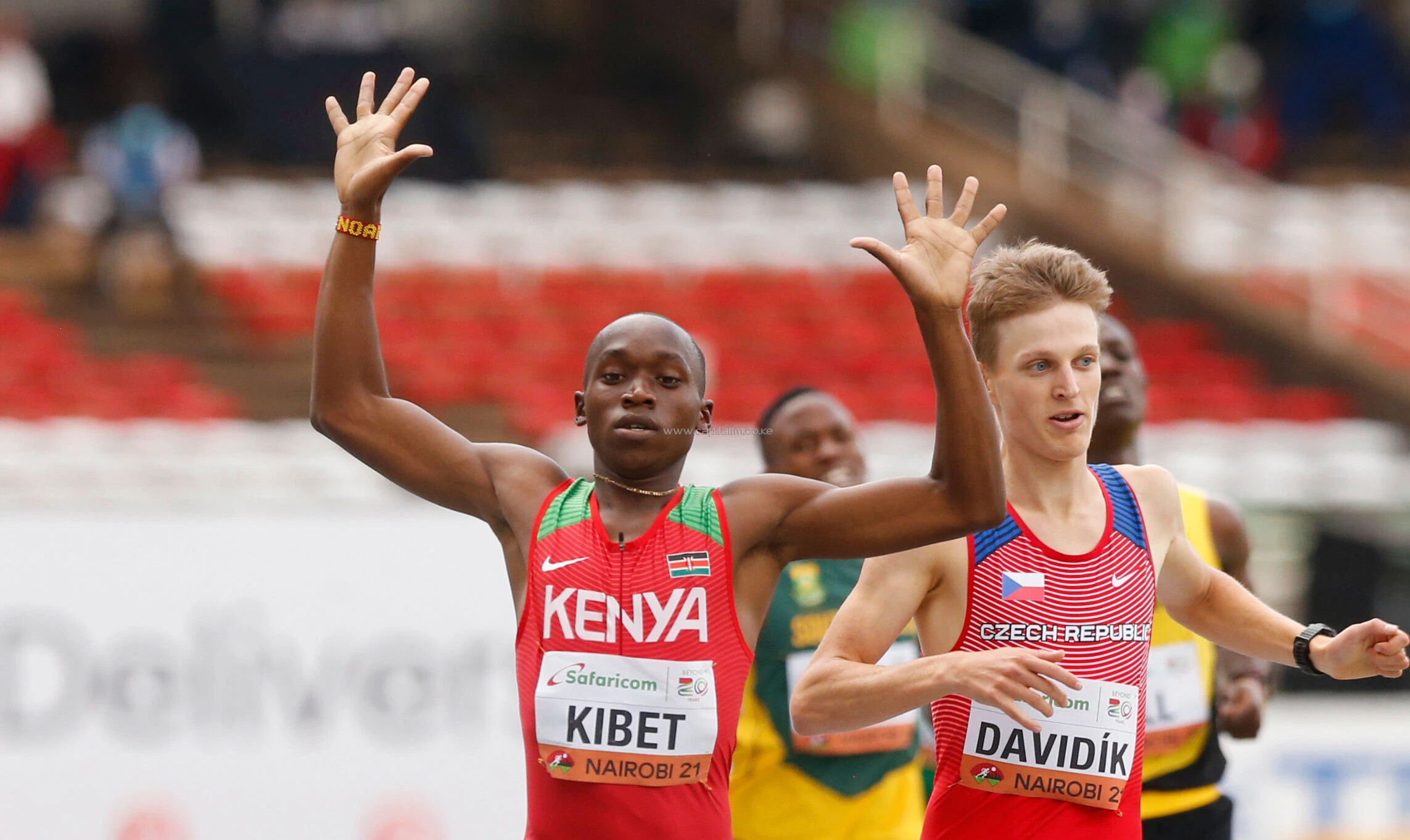
Looking to challenge them both will be Clayton Murphy, the 2016 Olympic bronze medallist and fourth-fastest US athlete in the history of the event. Murphy made a second Olympic final in Tokyo and is also a six-time national champion.
Lining up alongside them will be Isaiah Harris, who finished runner-up behind Hoppel at last year’s US Indoor Championships, and Kyle Langford, Britain’s 2018 Commonwealth silver medallist.
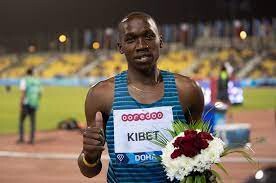
Also in the field are Mexican record-holder Jesus Tonatiu Lopez, Irish record-holder Mark English and USA’s Cade Flatt.
Already announced for the meeting are showdowns in the pole vault between Katie Moon, Sandi Morris and Katerina Stefanidi, and in the shot put between Ryan Crouser and Joe Kovacs. The women's 300m will feature Abby Steiner, Jenna Prandini and Brittany Brown, while the women’s 3000m will star Konstanze Klosterhalfen and Alicia Monson. Two-time world 200m champion Noah Lyles will race for more sprint success in the 60m and Laura Muir will race the Rudin Women’s Wanamaker Mile.
(01/10/2023) ⚡AMPby World Athletics
NYRR Millrose Games
The NYRR Millrose Games,which began in 1908 as a small event sponsored by a local track club, has grown to become the most prestigious indoor track and field event in the United States. The NYRR Millrose Games meet is held in Manhattan’s Washington Heights at the New Balance Track & Field Center at the Armony, which boasts a state-of-the-art six-lane,...
more...Boost recovery quickly by focusing on two things
Recovering quickly and well after hard workouts and long runs is a key part of building strength and power over a season, and (hopefully) nailing some goals along the way. While there are a wide variety of tools out there that claim to help runners recover quickly and with little effort, the two key ingredients that coaches (and science) widely agree on are free and underutilized: sleep and calories.
Focus on these two things, and you’ll notice your ability to recover improve, without purchasing a single fancy gadget or embarking on any early-morning cold plunges.
Get more (and better) sleep

Coach and author of Training Essentials for Ultrarunning Jason Koop shares that the “effect that high-quality sleep has on your immune system and your ability to recover (or not) is quite astounding.” Studies have suggested that proper sleep can reduce the chance of injury in adolescent elite athletes at approximately the same rate as strength training.
Not only will quality sleep help you rebound from workouts, but it will also help you function better during your daily life, and is constantly being credited with contributing to a wide variety of health benefits, including longevity.
Get started today
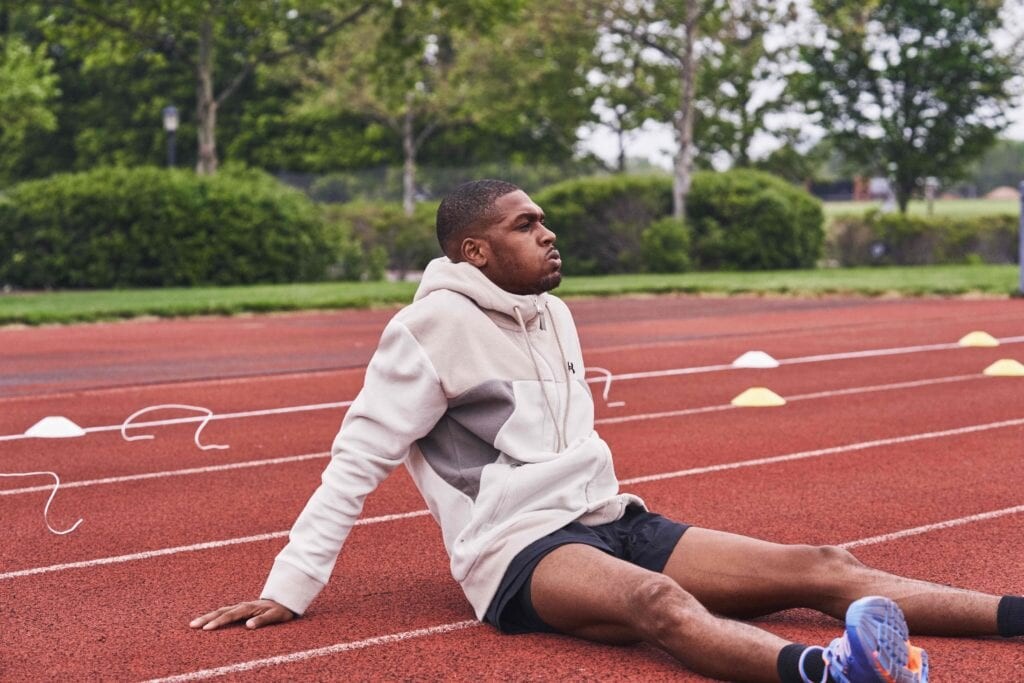
Work on optimizing four factors in your bedroom: calm, cool, dark and quiet. Koop suggests minimizing clutter (that includes televisions and screens of any type), keeping your room at an ideal range of 15.5 C to 19.5 C (60–67 F), and minimizing light and sound in your room.
“Light (and the absence thereof) has the biggest effect on telling your body when it is time to sleep and time to be awake,” he writes. Blackout curtains and covering objects with power lights are good options to assist with this.
Consume enough energy to support your activity level
“If sleep is the gold standard for recovery, energy balance is next in order of priority,” says Koop. Regardless of the specific foods you are eating, you will simply not improve as a runner unless you are consuming enough calories to support your daily activities, as well as your training.
In a society that seems fixated on appearances, this can be a challenge, and men and women pro athletes have spoken candidly about their challenges with disordered body image and disordered eating.
“If you are losing weight because you are not sufficiently supporting your training workload with calories and nutrients, you will lose both fat and lean muscle mass,” explains Koop. “Athletes who are too lean cannot train as effectively, because they cannot recover from hard efforts as quickly.”
Get started today
Working with a registered dietitian can be helpful if you aren’t sure where to start–and if that’s not accessible for you, there’s a gamut of science-backed nutritional info out there. Make sure you’re tapping into quality information: both Dr. Stacy Sims and Pamela Nisevich Bide are both well known for helping athletes excel at the nutritional components of their training, and have helpful books and websites to delve into.
Educating yourself as much as possible on nutrition and focusing on food as fuel can be a great jumping-off point. Remember that your body needs a great deal of energy on recovery days. You may feel like you’re actively doing less, but behind the scenes your body is repairing tissue damage and building strength for your run.
(01/10/2023) ⚡AMPby Keeley Milne
B.A.A. announces women’s elite field for 127th Boston Marathon
The Boston Athletics Association (B.A.A.) has revealed the women’s elite field for the 127th Boston Marathon on Monday, April 17. The field features 16 women who have run under 2:21, including the 2022 world marathon champion Gotytom Gebreslase and two-time Boston champion Edna Kiplagat.
Three other notable athletes who are making their Boston debuts are 2022 world championship bronze medallist Lonah Salpeter of Israel, 2022 NYC Marathon champion Sharon Lokedi, and 2022 Valencia Marathon champion (and third fastest woman of all-time 2:14:58) Amane Beriso of Ethiopia.
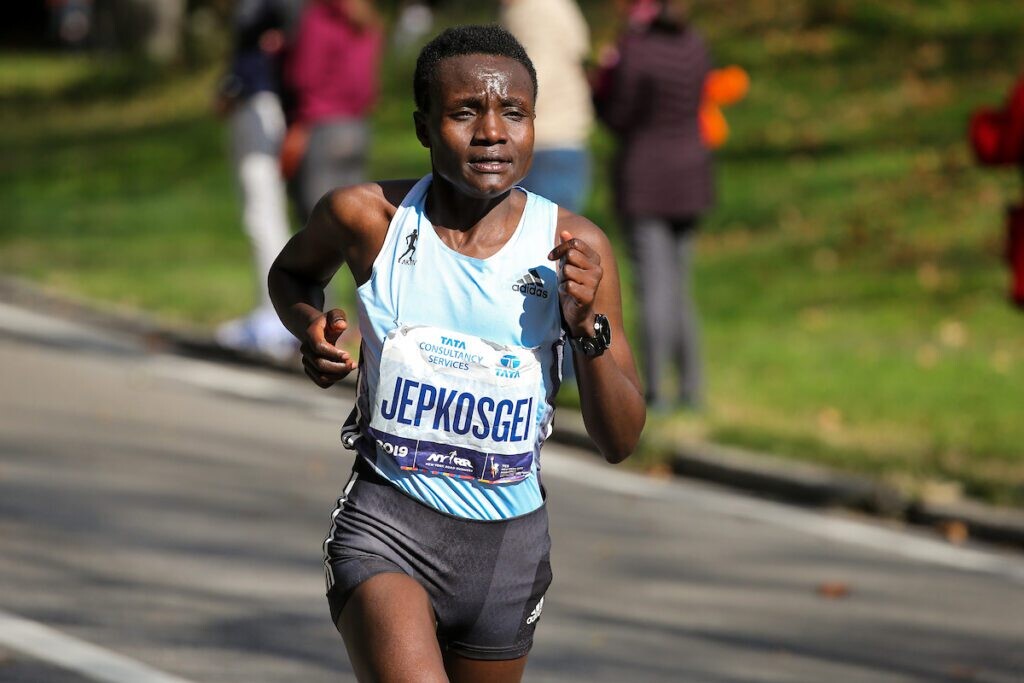
“I am very excited to run the B.A.A. Boston Marathon this year,” said Salpeter in a press release. “It has always been my dream to run on this course and to experience the incredible atmosphere.” Salpeter is coming off a second-place finish at the New York City Marathon in November and a bronze medal in the 10,000m at the European Championships in August.
Last year’s second and third-place finishers in Boston, Ababel Yeshaneh of Ethiopia and Mary Ngugi of Kenya, both return with hopes of claiming the top spot on the podium. Yeshaneh came within four seconds of victory, while Ngugi placed second and third in Boston in back-to-back years.
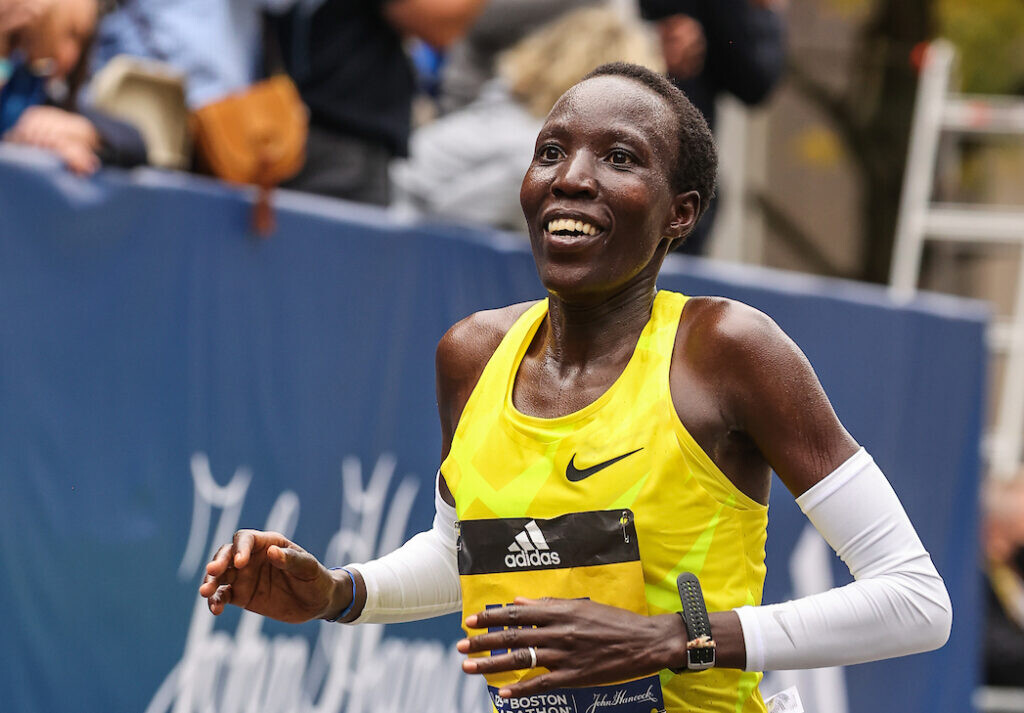
Also back is Joyciline Jepkosgei of Kenya, a past winner of the New York City and London Marathons. Jepkosgei fell shy of her expectations in her 2022 debut, with a seventh-place finish. She will look to better her time of 2:24:43 in 2023.
Among the American contingent are Sara Hall, Aliphine Tuliamuk, Emma Bates, Nell Rojas and 2018 champion Des Linden. Rojas has finished as the top American at Boston two years in a row (fifth in 2021 and 10th, 2:25:57 in April 2022), while Hall and Bates were fifth and seventh in the marathon at the 2022 World Athletics Championships in Eugene, Ore.
Canada will be well represented in Boston with three athletes on the elite list. Liza Howard, the top Canadian at the 2022 Chicago Marathon, will lead the way with the top qualifying mark of 2:35:29. Howard is an up-and-coming marathoner out of Toronto, who had a breakthrough 2022 with a 19th-place finish in Chicago and a 12th-place result at the Canadian 10K Championships in Ottawa last May.
Other Canadians on the elite list are 2004 1,500m Olympian and masters athlete Carmen Hussar, who has returned to racing recently, coming off a Boxing Day 10 Miler win in Hamilton, Ont., and Julie Lajeunesse of Montreal, with a personal best of 2:44:49 from the 2022 Chicago Marathon.
(01/09/2023) ⚡AMPby Marley Dickinson
Boston Marathon
Among the nation’s oldest athletic clubs, the B.A.A. was established in 1887, and, in 1896, more than half of the U.S. Olympic Team at the first modern games was composed of B.A.A. club members. The Olympic Games provided the inspiration for the first Boston Marathon, which culminated the B.A.A. Games on April 19, 1897. John J. McDermott emerged from a...
more...AIU report shows five nations represent 54 per cent of banned athletes
Earlier this week, the Athletics Integrity Unit (AIU) released its Global List of Ineligible Persons of 473 athletes or athlete support currently serving sanctions. Five countries account for more than half the total number of sanctions, with 92 athletes representing Russia.
The majority of the cases listed are related to infractions in the last five years. But there are lifetime bans for offenses dating back a decade. Many of the Russian infractions date from before the 2015 doping scandal, but numerous infractions have been detected in the last three years.
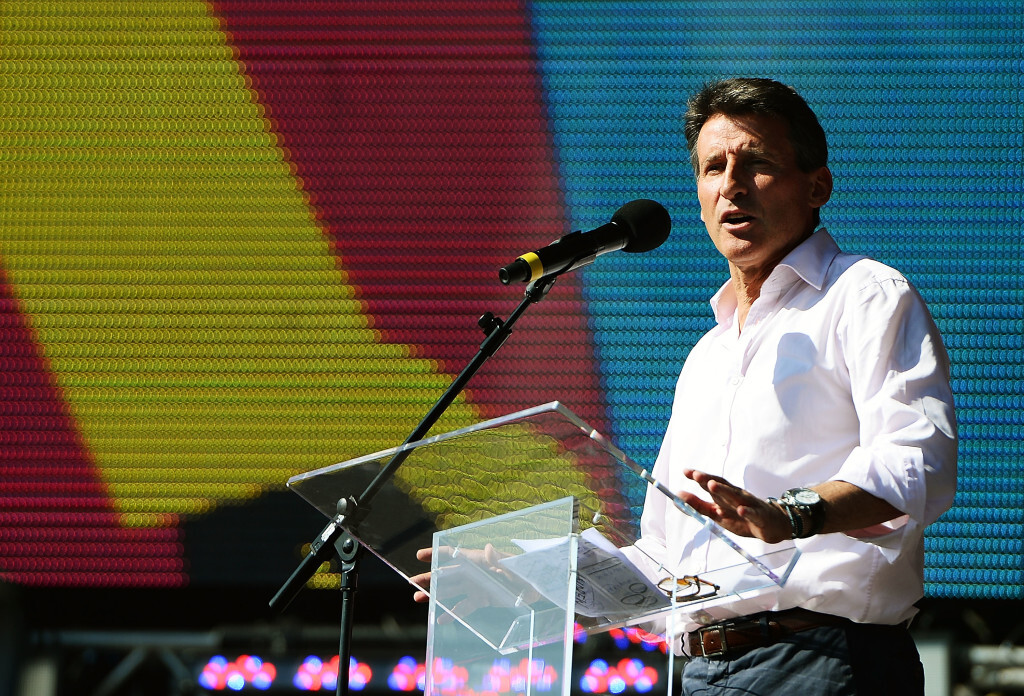
Russia is followed by India, with 65 recorded sanctions, Kenya with 54, Morocco with 24 and China with 20. These five countries make up 54 per cent of the AIU’s Global List of Ineligible Persons.
Russia (RusAF) and the Russian Anti-Doping Agency (RUSADA) are working with World Athletics to lift the ban on Russian athletes and the federation.
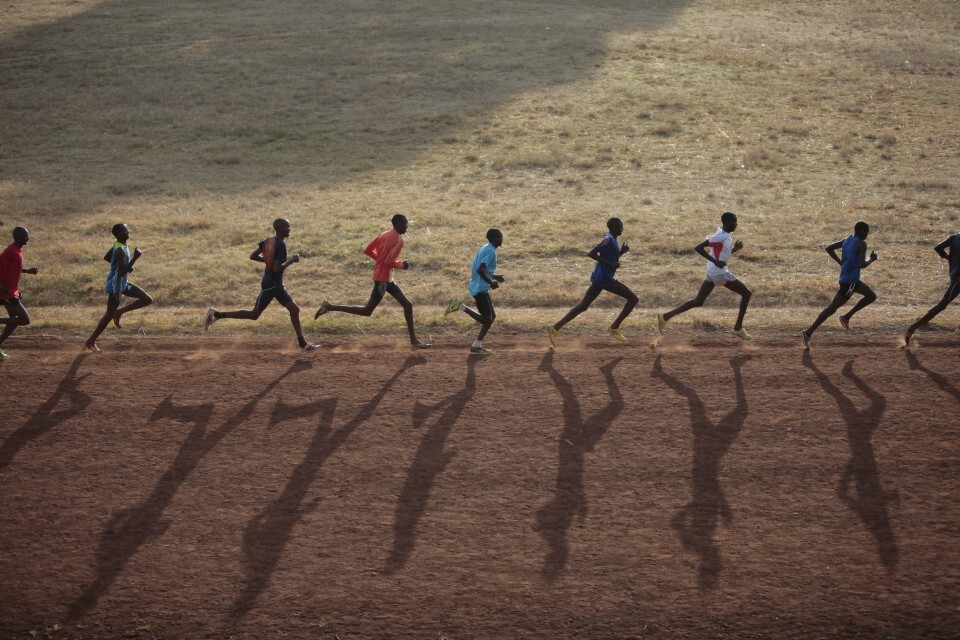
When World Athletics president Sebastian Coe was asked to comment on the RUSADA situation at a year-end media conference, he said, “The council will have a better update after their next meeting in March 2023.”
Kenya entered the spotlight in recent months, with many well-known distance runners receiving sanctions for doping violations. Last month, 2021 Boston champion Diana Kipyokei was given a six-year ban for a positive test for the weight-reducing and endurance-increasing drug triamcinolone acetonide. Twenty-one of the 54 Kenyan athletes serving suspensions were caught in the past year.
Since 2016, the East African nation has been classified in Category A of the countries under surveillance by World Athletics and the World Anti-Doping Agency (WADA), alongside Belarus, Ethiopia, Morocco and Ukraine.
Coe said after the World Athletics Council Meeting in November 2022 that Athletics Kenya has “a long journey” to regain trust, and that Kenyan sports minister Ababu Namwama and the council were working toward a solution.
In an attempt to crack down on doping, the Kenyan sports minster told BBC News Africa in December that he hopes to fast-track modifications to legislation and crack down on doping the same way the government does with illegal drugs–by criminalizing it.
Previous attempts to criminalize doping in Kenya have been unsuccessful, with a motion submitted by former member of parliament and 2012 Boston Marathon champion Wesley Korir being defeated in 2016. Korir and his wife, Tarah Korir, lived in Waterloo, Ont. for several years before moving back to Kenya.
(01/09/2023) ⚡AMPby Marley Dickinson
Kenya targeting 2029 World Athletics Championships
Kenya has revealed plans to bid for the 2029 World Athletics Championships after missing out on the 2025 hosting rights last year.
Sports Minister Abadu Namwamba has confirmed Kenya's intent to become the first African nation to stage the event as the country looks to play host in six years' time.
Namwamba's announcement came during World Athletics President Sebastian Coe's visit to Kenyan capital Nairobi this week.
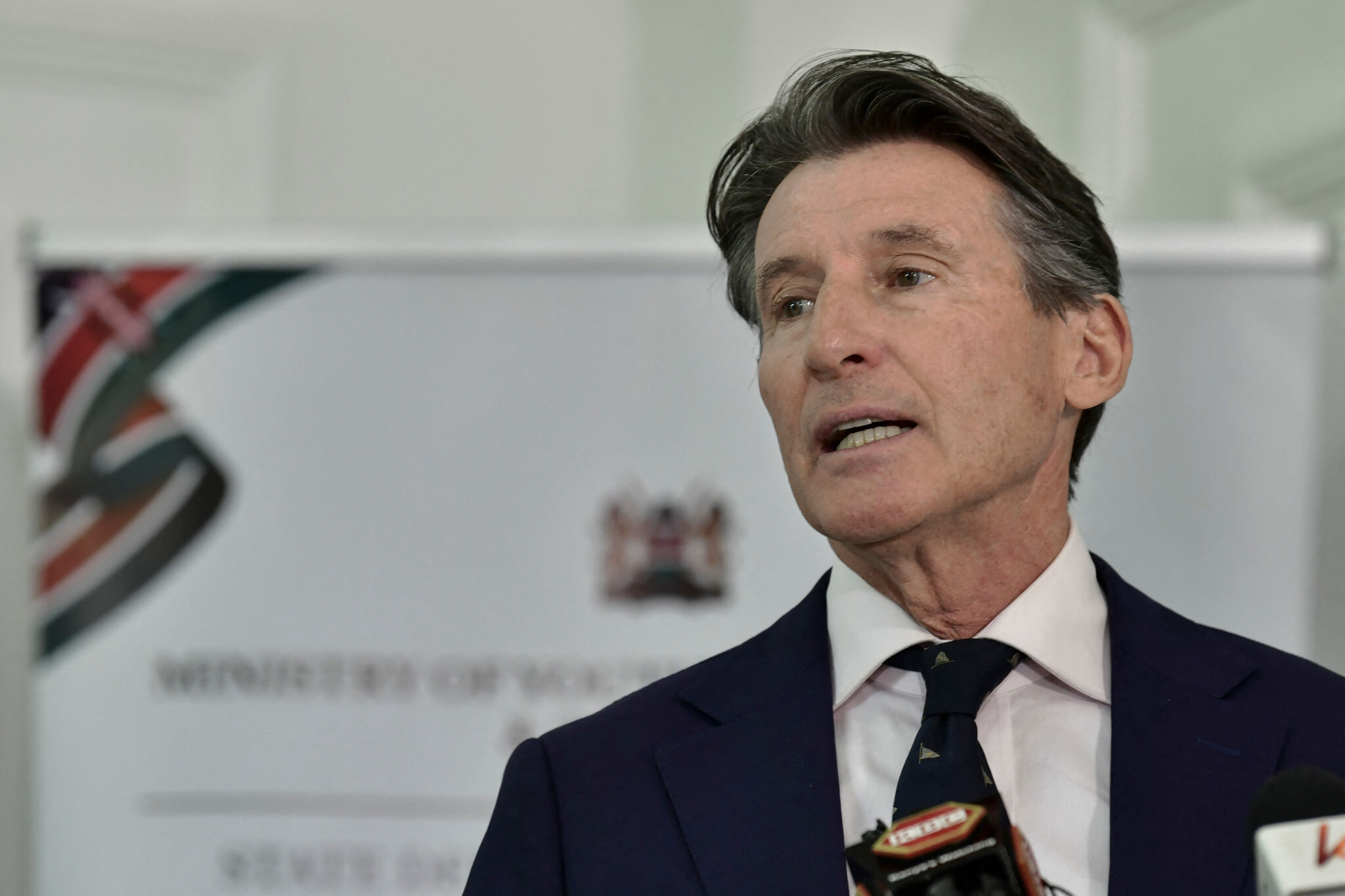
"Having lost the bid for 2025, we will prepare for 2029 and we believe we will be in a very strong position to put in a compelling bid," said Namwamba.
"We will be banking on the goodwill from World Athletics.
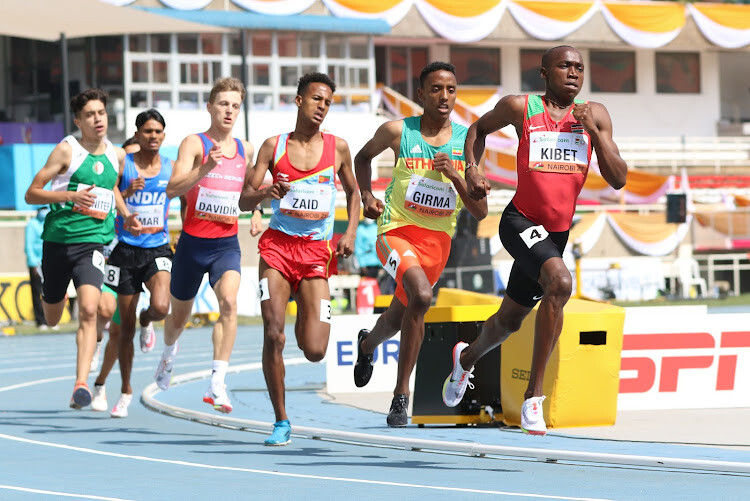
"We will come up with a much stronger bid."
Nairobi was among four bidders for the 2025 World Athletics Championships with Japanese capital Tokyo securing the event in July 2022.
Speaking at the time of the decision, Coe cited concerns over the Moi International Stadium as a reason why the Kenyan capital lost out to Tokyo.
The venue in Kasarani hosted the 2020 World Athletics under-20 Championships and has also staged the Kip Keino Classic, a World Athletics Continental Tour Gold meeting, in the past two years.
"There were challenges around the stadium which would have needed a great deal of refurbishment and that was concern expressed by the [World Athletics] Council about the timeframe and the quantum of resource that would be needed in order to do that," said Coe in July.
"I have spoken to the Kenyan Athletics Association, and they know that I am fully committed to helping them or any other African country stage a World Championship in the foreseeable future."
Only the United States has won more medals than Kenya at the World Athletics Championships.
Kenya has claimed 62 gold, 55 silver and 44 bronze medals with much of their success coming over the long-distance races.
Coe visited Nairobi where he met Kenyan President William Ruto and Sports Minister Abadu Namwamba as well as representatives from Athletics Kenya and anti-doping authorities and several athletes.
There were fears that Athletics Kenya would be banned by World Athletics following a spate of positive doping cases.
However, the governing body evaded a lengthy ban after the Kenyan Government acted promptly, committing $25 million (£20.5 million/€23.7 million) to fight doping.
According to the Athletics Integrity Unit (AIU), Kenya has 54 athletes serving bans - the third most behind Russia with 92 and India with 65.
Kenya is one of seven "Category A" nations deemed by the AIU to have the highest doping risk and threaten the overall integrity of the sport.
Diana Kipyokei and Lawrence Cherono, both former Boston Marathon winners, are among the high-profile Kenyan athletes currently banned.
Last year's delayed World Athletics Championships was staged in Eugene in the US.
Hungarian capital Budapest is set to host this year's edition before Tokyo stages the event in two years' time.
(01/09/2023) ⚡AMPby Geoff Berkeley
Want to be a stronger runner? Pay attention to your piriformis
Many runners may not be aware of the piriformis muscle until they experience an injury or inflammation–we’re here to help you prevent that from happening. The piriformis is found in the buttocks area and works to stabilize the hip and pelvis.
The piriformis helps you upwardly rotate the hip and leg smoothly as you run, a key factor in running performance. If the piriformis is tight or becomes inflamed, it can cause intense pain and discomfort in the hip and leg, and impact performance.
Try adding these exercises to your mobility routine if you have one, or move through them when watching a TV show at night. Netflix and piriformis mobility is 2023’s Netflix and chill.
Seated piriformis stretch
Sit on the edge of a chair with your affected leg crossed over your other leg. Place your ankle on the opposite knee and gently press down on the raised knee to feel a stretch in the buttocks.
Pigeon pose
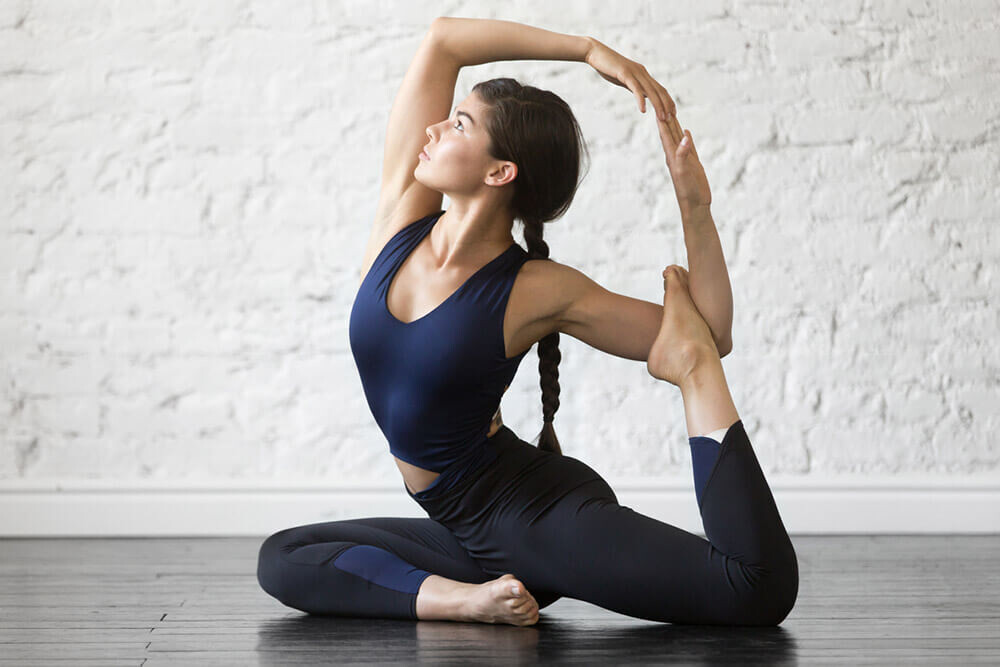
Start in a downward-facing dog position. Bring your affected leg forward and place it behind your hands, keeping your knee bent. Lower your hips towards the ground until you feel a stretch in the buttocks.
Lunge stretch
Step forward with your affected leg and lower your back knee to the ground. Lean forward until you feel a stretch in the buttocks–this also targets your hip flexors and is a great mobility exercise for runners to do regardless of whether they are experiencing lower leg issues.
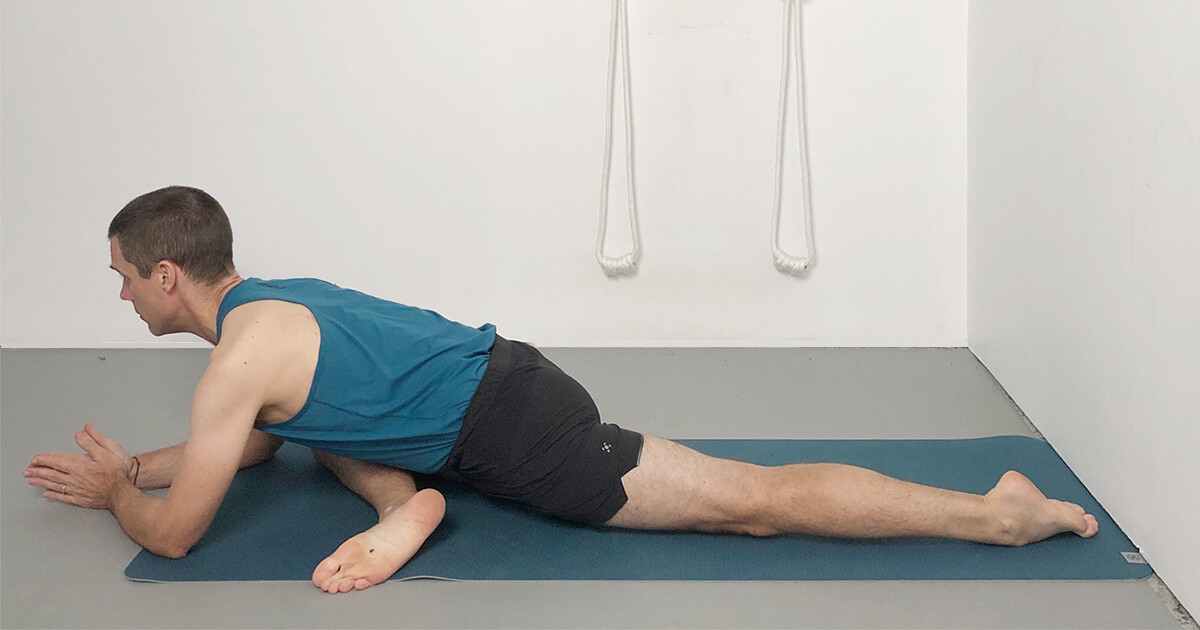
Clamshells
Lie on your side with your hips and knees bent. Lift your top knee up while keeping your feet together–banded clamshells are also a great option if you feel clamshells are not intense enough.
If you have a few extra minutes and are looking for a full mobility workout to tackle the piriformis area and start boosting strength and mobility, try this slightly longer yoga routine. You’ll enjoy the mellow-mind yoga benefits and really soothe and strengthen the piriformis area.
(01/09/2023) ⚡AMPby Keeley Milne
Marathon wisdom - what fires you up?
This year’s stupendous season of outdoor track and field has finally drawn to a close, and goodness me, what a season it has been!
The World Athletics Championships Oregon22 took place only two months ago, but it feels like an eternity has passed since, with the Commonwealth Games, World U20 Championships, European Championships and NACAC Championships giving athletics fans the world over a feast of unforgettable performances.
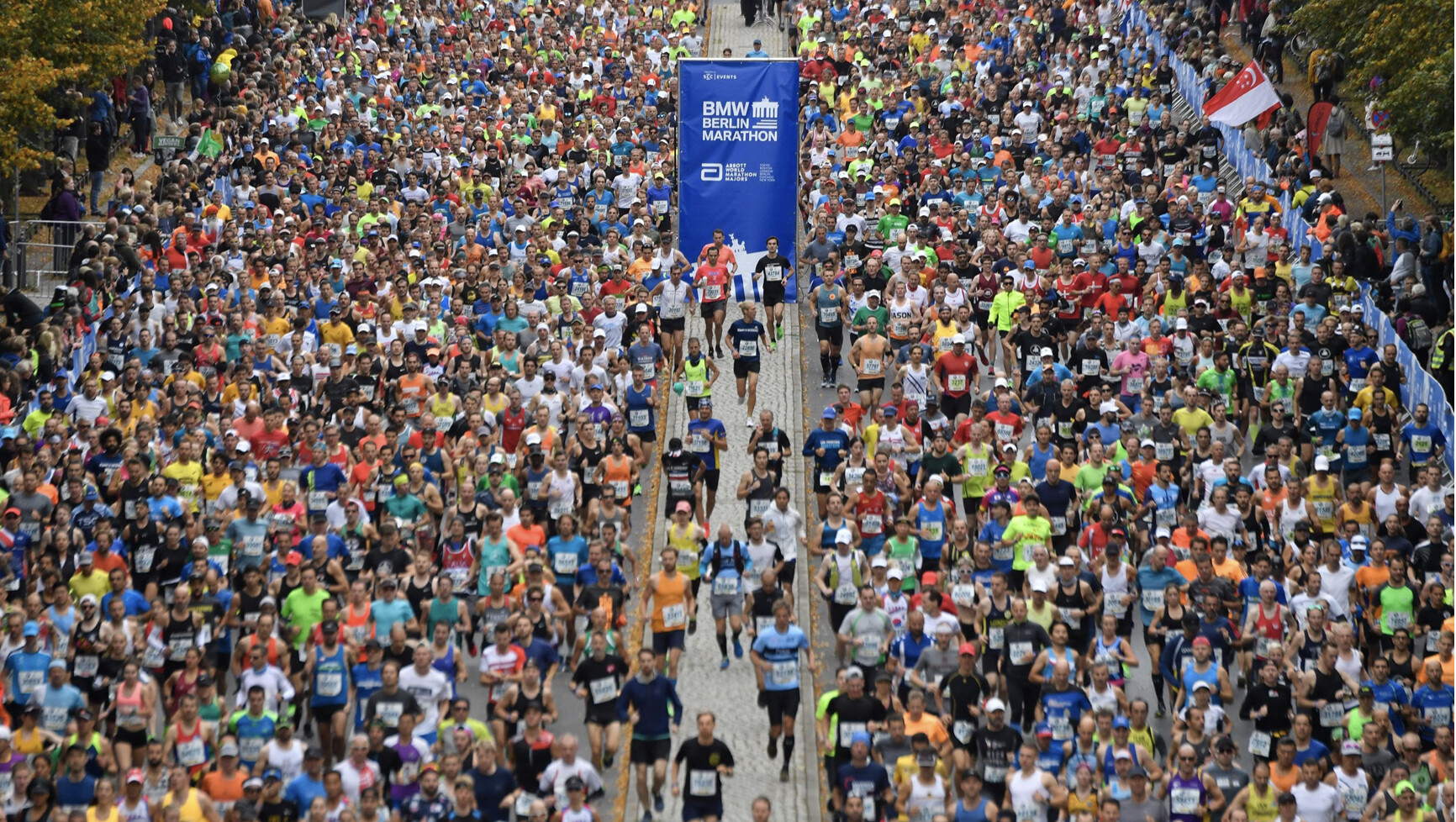
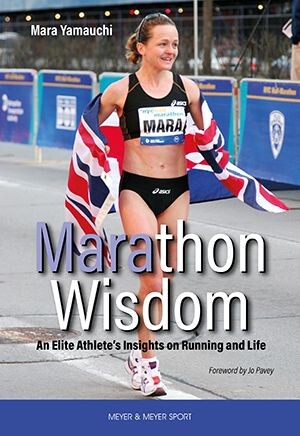
If you are feeling your athletics fever dwindling somewhat, fear not, because September is always the month when we turn our attention to the roads and (I admit I am biased) the best event of them all – the marathon!
The names of iconic marathon host cities – Berlin, London, Chicago, Valencia – will soon be in the news. Perhaps you are taking on the 26.2-mile challenge at one of these events? Or thinking about dipping your toe in during 2023 as the northern hemisphere spring marathon season beckons? The lure and appeal of the legendary marathon distance seems as popular as ever. If you haven’t tried a marathon yet, naturally I recommend it; and I always advise persevering beyond the first time as it definitely improves with a few attempts.
It is nearly 10 years since I retired from elite competition, so I’m thrilled that my first book, Marathon Wisdom, An Elite Athlete’s Insights on Running and Life, was published earlier this year by Meyer & Meyer Sport. It is a collection of 42.195 (the number of kilometres in a marathon) nuggets of wisdom which I learned from a lifetime of running – as a child, a young adult, a world-class athlete, and now as a retired recreational runner.
From setting goals and overcoming setbacks, to making the best of a bad situation and celebrating success when it comes, these insights are universal and relevant for all levels of runner. The following extract – Insight 1: What Fires You Up? – gives you a flavour of my book. It can be read from cover to cover, or dipped in and out of when time allows. It is available now from online retailers and in bookshops.
What fires you up?
When I was a small child growing up in Nairobi, Kenya, I loved playing outdoors. I ran up and down the steep driveway to our house and dived into all kinds of adventures in the garden. The year-round tropical, warm climate lent itself to spending time outside. I grew up loving sports and being physically active. At weekends and during the holidays, my parents took my sister and me on safari, or to the coast and the Indian Ocean, or any number of exciting adventures under Africa’s sun and big skies.
Fast-forward to 1984 and my family had moved to Oxford, England. During that summer, at age 11, I remember watching the Los Angeles Olympics on television and being utterly mesmerised by the sports extravaganza taking place on the other side of the world. The enormous stadium, the glitz and glamour, the athletes giving it their all … I was transfixed by this spectacle and spent many hours watching it all on television.
Strangely, in hindsight I was not really interested in the women’s marathon, which was making its hard-won debut in the Olympic Games. Instead, I was focused on the best all-rounders there are, the decathletes and my hero, Daley Thompson. To be able to compete brilliantly in all those various events inspired awe in me, and encompassed what I wanted to be: an all-round athlete.
The excitement of watching wore me out and I could not stay awake for the final event, the 1500m. My mother woke me up in the middle of the night to tell me that Daley had won the gold. After the Games were finished, I watched the BBC’s highlights on videotape, set to Spandau Ballet’s Gold, again and again. After watching those Games, I decided I wanted to be a top-class, world-beating athlete. At age 11, I had no idea how I was going to do it, but from that summer on I had discovered something that really fired me up – a dream of becoming a sporting champion.
Becoming beside yourself with excitement is one of the wonders of childhood. Many children want to be like the fabulous and attractive people they encounter. But if I can describe in general terms what that summer gave me, it was an enduring, aspirational desire to do something special and specific with my life. This desire never left me and always gave me a clear goal to aim and strive for. Between that summer and 17 August 2008, when I finally stood on the start line of my first Olympic marathon in Beijing, 24 years had passed. A quarter of a century! You could say it was not a very motivating or compelling dream since it took me so long to make it happen. But it was not a straightforward journey. I had become side-tracked with other activities along the way, such as earning a living. I believe it is testament to how strong that desire was that it sustained me for so many years to keep going and ensured that I never gave up on my dream.
What I learnt from this burning desire born all those years ago was that discovering a love for something is immensely valuable and worth spending time on. That having a dream which really inspires you provides the engine for hard work, a motivating goal to focus on, and the ability to keep going through hard times. That a love for a particular activity might hit you at a time when you can’t do much about it and you might need to return to it later. And that being clear about what you are aiming for is important because it gives you direction and motivation.
Why did it take me so long to realise my childhood dream? Most world-class athletes become professionals straight after or during their full-time education and retire while they are young adults. For me, it was different. When I left university, I wanted to become a full-time athlete but was nowhere near fast enough to earn a living from it. My parents encouraged me to look for a ‘proper job’. Like many students, I had no money. Therefore, on leaving full-time education I had no choice and simply had to find a job. I applied to the British Civil Service’s Fast Stream graduate recruitment programme and became a diplomat with the Foreign Office. This too was a fascinating adventure. I travelled to places I had never been, had the opportunity to learn Japanese and the privilege of working with issues that mattered. I was posted to the British Embassy in Tokyo and enjoyed further adventures there … but during all that time, the dream of becoming a world-class athlete was always there in the back of my mind.
When my Tokyo posting came to an end and I returned to London at the age of 29, I decided that if I was to realise my childhood dream, it was now or never. I spent the next three years working and training hard and finally became a full-time athlete in 2006 at the age of 33. I was 35 when I finished sixth in the 2008 Beijing Olympics women’s marathon, the joint best performance ever by a British woman in the Olympic marathon. I was 35 when I set my personal best of 2:23:12 in the 2009 London Marathon.
It was a long journey of ups and downs, going off on tangents, and spells when realising my dream seemed like a very distant prospect. But throughout that quarter century, I was always clear what my goal was and what I wanted to be.
Sport is not everyone’s cup of tea. Nor is spending a large part of your life pursuing one clear goal. I am not claiming that this is the only way to live a life. But this was my experience. My wish is that by sharing it, you will see how you can pursue and achieve an ambitious goal. We all have talents and gifts of one kind or another, whether it’s in sport, music or something else.
Having a dream or overall goal provides motivation, direction and meaning. It might take time, but pursuing what you love is an enriching, life-changing journey.
(01/08/2023) ⚡AMPby World Athletics
Peloton Fined $19 Million Over Dangerous Treadmill Defect That Led to Death
The company was charged with failing to report product defects, according to the Consumer Product Safety Commission.
The Consumer Product Safety Commission (CPSC) and Peloton Interactive, Inc., which owns Peloton Tread+, have agreed to a $19 million civil penalty settlement after CPSC charged that the company did not report a defective treadmill, according to an announcement from CPSC.
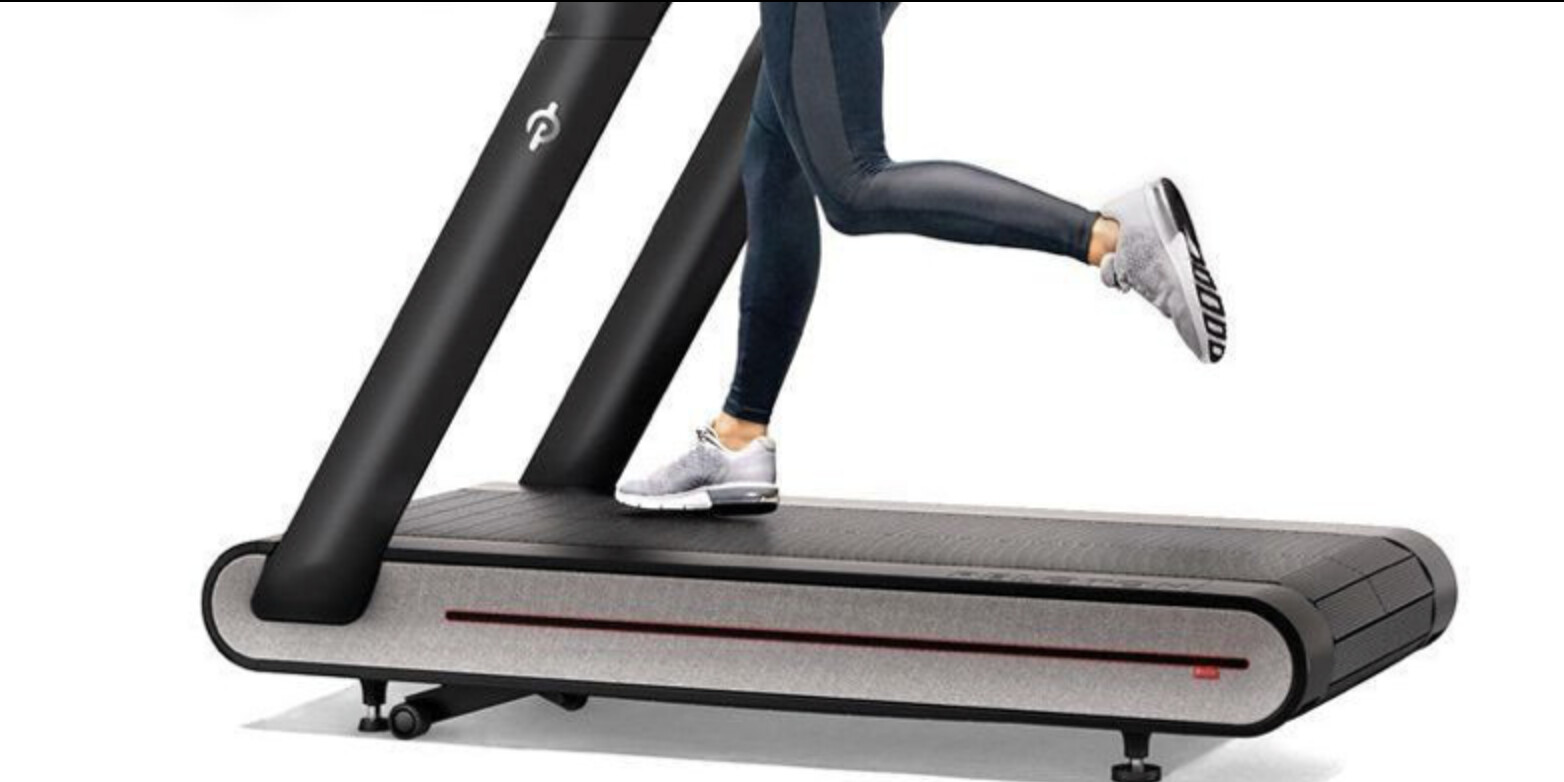
CPSC claimed that Peloton knowingly failed to report, as required by law, that Tread+ contained a defect that could “create a substantial product hazard and created an unreasonable risk of serious injury to consumers,” according to CPSC. The civil penalty also settles charges that the company knowingly distributed recalled treadmills, which violated the Consumer Product Safety Act (CPSA).
According to CPSC, starting in December 2018 and into 2019, Peloton received reports of users experiencing “pull under and entrapment” in the rear of the treadmills, as well as injuries. But, according to CPSC charges, Peloton did not immediately report these incidents to the safety commission.
And by the time the company did report the incidents, there were more than 150 reports of people, pets, and objects being pulled under the rear of the treadmill. There were 13 reported injuries, including broken bones, lacerations, abrasions, and friction burns. One child died.
Peloton and CPSC jointly announced the unit’s recall on May 5, 2021 after the company initially refused to do so, according to The Washington Post.
“We made a mistake in our response,” former Peloton executive John Foley said during an earnings call at the time, according to The Washington Post. The outlet also reported that the $19 million settlement is one of the largest civil penalties in CPSC’s history.
In October, CPSC and Peloton issued a statement that extended a refund for the recalled units, through November 6, 2023. Consumers who return the units after this deadline will receive a prorated refund.
In addition to the $19 million penalty, Peloton is required to “maintain an enhanced compliance program and system of internal controls and procedures designed to ensure compliance with the CPSA.”
Peloton will also file annual reports regarding its compliance program and system of internal controls for five years.
(01/08/2023) ⚡AMPby Runner’s World
Why You Should Lease, Not Buy, Your Next Pair of Running Shoes
I signed up for the On Cyclon subscription running shoe service and get a perfectly clean new pair every three months
Back in September 2020, the Swiss running shoe company On announced a potentially industry-changing environmental business model called “Cyclon.” The program finally launched in fall 2022 with the release of the Cloudneo, a fully-recyclable running shoe that consumers don’t ever own.
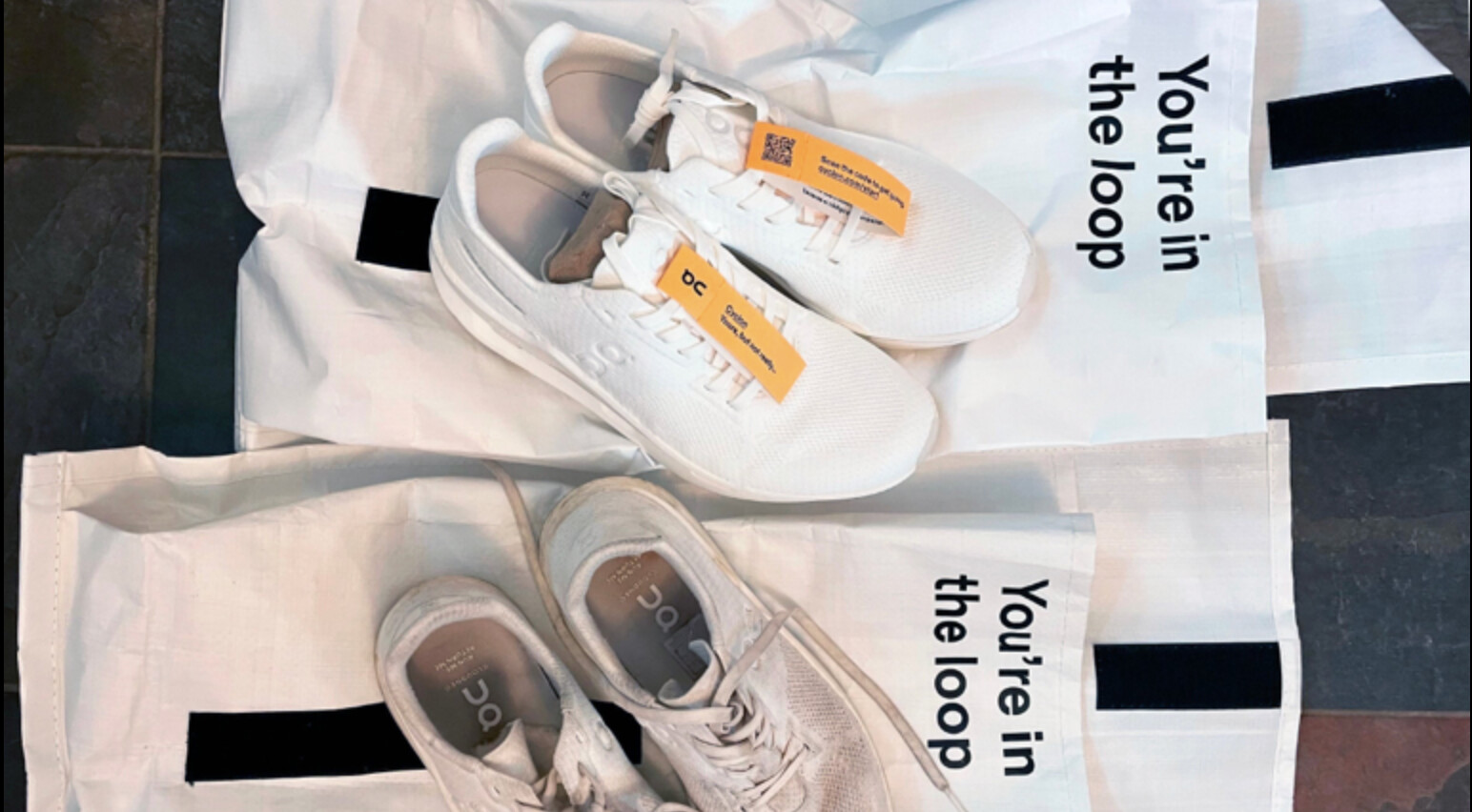
Instead of spending $120 to $200 on a single pair of shoes, running in them until the cushioning is shot, and then (hopefully) donating them to a good cause, runners “lease” the Cloudneo road running shoe for $30 per month. Whenever runners want a new pair—as long as it’s been at least 90 days since they received their last shoes—they log onto their account and request the recycle option. Days later, a brand-spanking-new pair of Cloudneos arrive, along with a FedEx return label. Subscribers then have 30 days to send back their old pair, which is cleaned, ground down into recyclable components, and made into new pairs of Cloudneos.
It’s a circular, closed-loop process that costs subscribers roughly the amount they would spend to buy three new pairs of $120 running shoes per year—with zero-waste. The whole shoe, except for small elements like glue and the sock liner, is made out of a material called PA11, which comes from castor bean oil and pebax elastomers (also bio-based from castor beans). This mesmerizing video on the On-running website—which I couldn’t help but watch a few times—illustrates the process.
I got my own pair of Cloudneos early in fall 2022, anxious to test the shoes on the road—they’re touted as “performance running shoes,” after all—and the subscription program as a whole.
Upon opening the box, the first thing that stood out to me was the stark whiteness of the shoes and the white bag (made out of polypropylene) they come neatly packaged in. The color is on-trend with what the “cool kids” (my college-aged nieces and family friends) are wearing, and the kicks could pass for lifestyle shoes, look good with jeans, and “go” with everything. But how do they run?
On a four-mile jaunt around my neighborhood, I immediately enjoyed the snappy, supportive ride produced by what On calls a “Speedboard.” This full-length, semi-flexible plate is sandwiched between two layers of pebax-based foam, with three small “Cloudtec” pods—one above and two below the plate—under the midfoot. I’ve tested plenty of shoes with carbon and composite plates of various shapes in recent years. This plate—and the midsole overall—felt less turbo-boosting than those found in a supershoe like the Nike ZoomX Vaporfly Next%, but did give me some extra pop. And, while most On shoes have felt on the firmer side to me—aside from the soft and cushy Cloudmonster—the combination of bouncy foam, responsive plate, and minimal Cloudtec pods on the Cloudneo feels energetic.
On subsequent runs on paved roads and smooth dirt paths around Boulder, I felt capable in the shoes, whether running slowly or upping the pace. I did one-mile pickups up and down a slight incline during a six-mile run and felt like I was in good shoes for the job. The slightly rockered shape of the shoe seemed like it encouraged forward propulsion and a smooth stride, and the under-eight-ounce weight for my women’s pair moved with me. For runs longer than seven-or-so miles, however, I’d likely choose to run in a cushier shoe.
The upper, which is constructed from a single piece of undyed, recyclable, bio-based yarn, wrapped my feet comfortably. It’s soft and flexible, like a sock, and I didn’t feel any pressure points when I pulled the laces tight around my narrow feet.
I took the shoes on a trip to San Diego, figuring I’d wear them both casually and on runs with friends. I ended up on a hike, and the traction wasn’t great on the sandy, dusty terrain, but I wasn’t expecting it to be. These are road shoes through-and-through, not intended for trail. That said, I managed in them just fine on the trail, and appreciated that I could wear one pair of shoes for all activities over a three-day trip.
Over the months I put them to the test, I got them super dirty, which made receiving a brand-new pair that much more satisfying when they arrived. As promised, the box arrived just a few days after I hit the “recycle” button on my On-running Cyclon profile page, and the pre-paid label made the return process simple.
Bottom line: The Cyclon subscription process is promising on many levels. The Cloudneo shoes run well for me and, in my opinion, look good…and they’ll always look good because I’ll always get a new pair once they start looking shabby. On says the shoes should last around six months or 375 miles of running, but subscribers can request new (clean) ones after three months. The closed-loop, zero-waste process of the Cloudneo will hopefully inspire other brands—even across industries—to follow.
Weight: 9.0 ounces (Men’s 8.5), 7.2 ounces (Women’s 7) Stack Height: 33.6 mm heel / 24.6 mm forefoot (9 mm drop) Upper: 100% Bio-based lightweight breathable knit derived from castor beans Midsole: Two layers of lightweight, bio-based pebax foam Outsole: Injected bio-based pebax Price: $29.99+ tax/month
(01/08/2023) ⚡AMPby Outside Online
Yoga vs. Stretching: New Science Says One Is Better For Well-Being
It's easy to take a yoga class and think: Isn't this just stretching? Well, a new study published in the Canadian Journal of Cardiology investigated exactly this question—and the answer is no. In fact, this new research shows that yoga isn't just different; it has additional benefits that stretching alone does not.
Studying the difference between yoga & stretching.
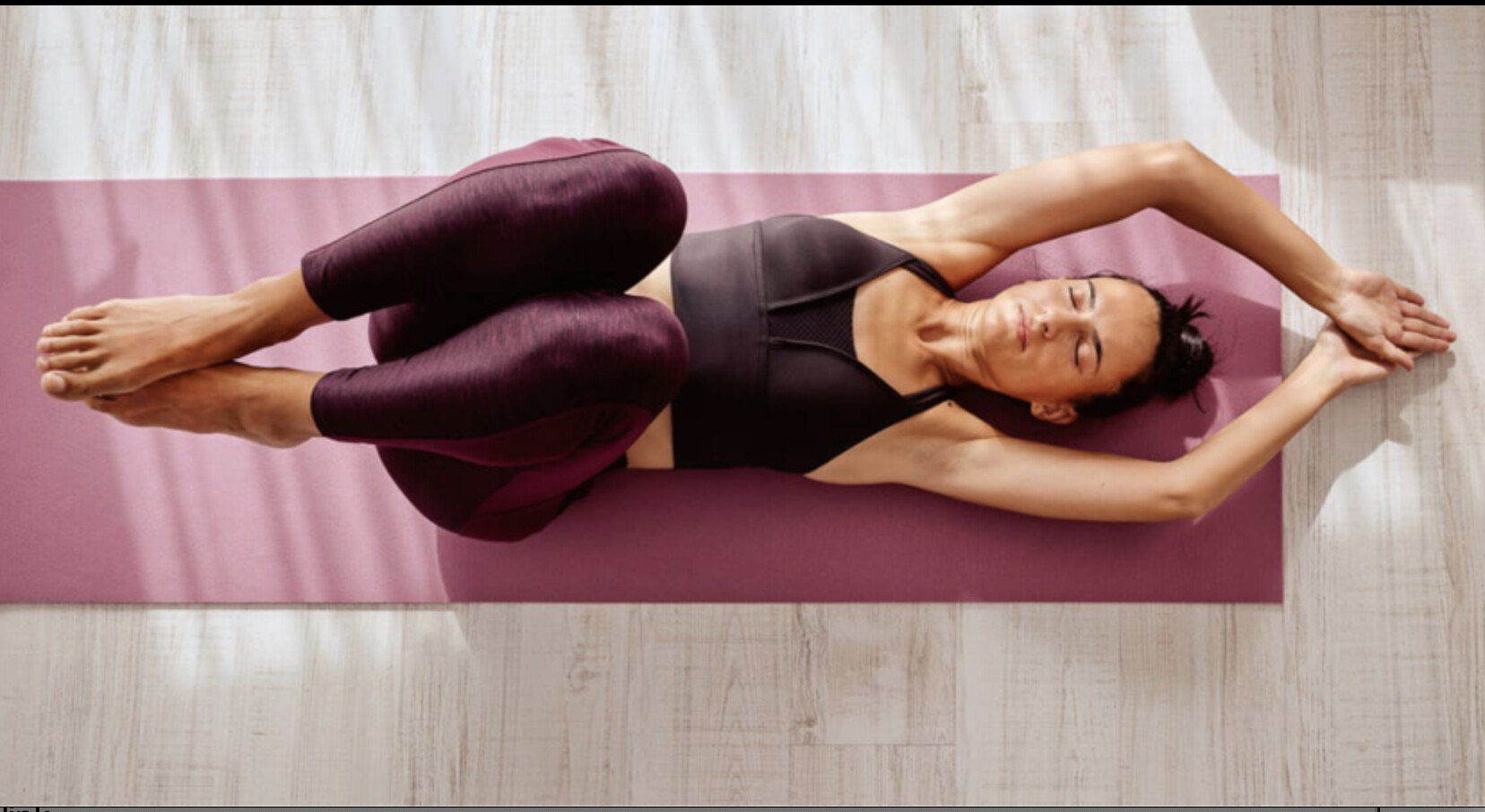
The three-month study was conducted on a group of 60 participants with existing hypertension and metabolic syndrome. The researchers divided the participants into two groups, both of which had to do 30 minutes of aerobic exercise training five times a week. Then, one group added 15 minutes of structured yoga, while the other group added structured stretching to their routine.
The researchers collected data on the health of the participants and observed markers like blood pressure, body size and shape, C-reactive protein (a common marker of inflammation), glucose and lipids levels, as well as overall cardiovascular risk.
After three months, the data collected showed that both groups had a decrease in resting systolic and diastolic blood pressure, mean arterial blood pressure, and heart rate. But systolic blood pressure was reduced by 10 mmHg in the yoga group compared to only 4 mmHg in the stretching group. The yoga approach also reduced resting heart rate and 10-year cardiovascular risk assessed using Reynold's Risk score, which is a person's risk of having a heart attack before the age of 60.
Interpreting these results.
Not to knock stretching (which is a key component of a healthy recovery routine), but yoga seems to have additional benefits that researchers are hoping to study in the future. They may have something to do with yoga's focus on the breath and mind-body connection, which differentiates it from stretching alone. As a lead investigator Paul Poirier, M.D., Ph.D., explained in a news release, "Our study shows that structured yoga practices can be a healthier addition to aerobic exercise than simply muscle stretching."
Everyone's ideal movement routine will be a little different. But if you're a busy person looking to get the most benefit in the shortest amount of time, turning on a 15-minute yoga video may be more effective than a 15-minute stretching routine (especially if you're craving some relaxation and stress relief).
If you're looking for more inspiration to get on the mat, know that in addition to cardiovascular health, yoga has been shown to benefit bone and joint health, which are key to staying limber and active throughout your life.
To support mobility and healthy bones and joints, you can start with this 15-minute yoga routine—which is the same duration as the yoga session in the study. Combine it with other mobility-supporting habits like eating high-quality proteins and healthy fats and taking a supplement that supports joint health and fends off inflammation that can sabotage your mobility. Here's a list of solid options to start with.
(01/08/2023) ⚡AMPCould Year-Round Heat Training Improve Performance?
Hemoglobin is measured in every blood panel, a major determinant of athletic potential staring us right in the face.
Hemoglobin is a protein in red blood cells that carries oxygen to working muscles. It's a load-bearing pillar of athletic performance and aerobic development, influenced by genetics, iron levels, training history, altitude, and stress. Hemoglobin is so important that endurance sports have faced existential crises from athletes trying to hijack their physiologies through illegal, immoral performance-enhancing drugs like EPO, which stimulates red blood cell production and increases hemoglobin levels.

A disturbing 2013 study in the PLOS One journal found that 4 weeks of EPO injections increased hemoglobin mass by 19.7%, which corresponded to a 6% improvement in 3k time trials with no training changes. That study was funded by the World Anti-Doping Association, which seems similar to the DARE program conducting a study on whether or not heroin feels good. Interestingly, that study also tried to optimize for iron levels to improve hemoglobin mass increases, having athletes take 100 mg of elemental iron a day (550% of the recommended daily value). Unethical, arguably evil use of EPO and blood doping has risked ruining Olympic endurance sports over the last 30 years, and it all gets back to that simple biomarker. Increased hemoglobin mass improves oxygen transport during exercise and thus has a profound impact on performance.
Cheating to raise hemoglobin mass is both vile and dangerous. But what if I told you that there are healthy, legal interventions that can improve hemoglobin mass? You can tell they are healthy because they often correspond with reduced stress and improved cardiovascular function-think optimizing iron intake, balancing stress, and living at altitude. You can tell they are legal because the interventions work over longer time horizons and only budge hemoglobin mass by a couple percent at most. It's the difference between feeling good after eating a serving of dark chocolate versus feeling good after snorting a bunch of cocaine.
New Study on Heat Exposure and Hemoglobin Mass
A 2022 study in the Scandinavian Journal of Medicine and Science in Sports asked a fascinating question: how does heat training via heat suits affect hemoglobin mass in elite athletes? To evaluate the question, the study split 25 elite cross-country skiers into a heat group and a control group that were matched for intensity and duration of training. We're not just talking normal athletes, but national and international competitors at the pointy end of human performance. So any changes in hematological variables would be coming on top of relatively optimized physiologies.
Participants in both groups completed normal training in the AM. In the PM, the heat group did 50 minutes of low-intensity indoor cycling on a stationary bike 5 times a week for the 5-week intervention. But there was a very hot twist. They were wearing a "wool layer on both the upper and lower body, a wool hat, nylon rain jacket, down jacket, and nylon pants with poor evaporative capacity." While they followed the study instructions well, they fully ignored Nelly's instructions, because it got hot in there and they put on all their clothes. We need a follow-up study to test whether they do, in fact, want scrubs.
Despite the added double sessions in the heat, there was no difference between the groups in training duration or intensity across the 5 weeks. Now is the time when we take a step back to hypothesize what we think happens next. The participants' baseline attributes are relevant to your guesses. The heat group had a starting point hemoglobin of 16.1 g/dl and hematocrit of 45.7%, already very high (likely due to some combination of training and genetics). For comparison, in that dastardly EPO study, the end point for hemoglobin levels was 15.2 g/dl even after the 20% increase from undergoing the Armstrong protocol. Moving a pebble with a bulldozer is one thing. But this study was looking at moving a boulder with a finger flick. Could a flick of heat exposure with low-intensity training move that boulder?
The answer: a resounding yes. The boulder didn't move far, but it left an unmistakable trail, kind of like one of those mysterious moving rocks in Death Valley. And any movement of hematological variables through healthy means at this elite level of performance is a BIG FREAKING DEAL.
Relative to the control group, the heat group's hematocrit increased by 1.58% and hemoglobin mass increased by 30 grams. While there was no change in the performance metrics tested, those blood changes should have beneficial impacts on performance and recovery over longer time horizons.
So, Should I Just Hit the Sauna?
Here is where things get complicated, interesting, and frankly, a bit annoying. A 1997 study in the International Journal of Sports Medicine found no hemoglobin mass changes with 4 weeks of training in hot environments between 19 C and 32 C, with numerous studies over the years showing small or negligible changes. That is contrasted by a 2022 study in Medicine and Science in Sports and Exercise that found 2.4-2.6% increases in hemoglobin mass from training in a heat suit or heat chamber (see also this 2020 study in the journal Experimental Physiology and this 2019 study in Frontiers of Physiology showing hemoglobin mass increases from heat acclimation protocols). And now is where we have to start questioning the exact mechanism at play, which will help determine how you put these findings into practice.
One theory is that with heat exposure, the body increases plasma volume (the liquid content in the blood), reducing hematocrit (the percentage of red blood cells within a blood sample) through dilution. As the kidneys sense an offset, the body increases natural EPO production to raise hematocrit levels to baseline, but with a higher denominator from the increased plasma volume, thus increasing the numerator: red blood cells and total hemoglobin mass. In that formulation, even after the plasma volume goes down later, the body will be left with more hemoglobin mass to play with.
If the driver is just the plasma volume-hematocrit-hemoglobin mass pathway (for more, the "critmeter" theory is outlined in this 2003 conference paper), it shouldn't take heat suits or heat chambers to spur the adaptations. We should have seen them in the 1997 study, or other studies finding increased plasma volume from training interventions. Maybe it doesn't have to just be kinda hot, it needs to be REALLY hot. As the authors of the main 2022 study, we are looking at say: "The rate of EPO synthesis is mainly regulated by the hypoxiainducible factor (HIF) system, which, however, also has been shown to stabilize with increased heat shock protein expression." (Check out this 2005 research article in Physiological Genomics to go deep on the subject.) Heat shock proteins that incite the HIF system may require higher temperatures than normal training in warm ambient air.
Context and Implications of Heat Training
And that's just the tip of the iceberg (the hotberg?). A recent study on the topic of natural EPO synthesis made me concerned, and it has nothing to do with heat at all. Published online in November 2022 in the American Journal of Physiology, Endocrinology, and Metabolism, it found that post-exercise ingestion of exogenous ketones increased natural EPO production by 20% over a control group. While the mechanism is uncertain, it's possible that post-exercise ketones incite the HIF system, which may be part of the reason why it's reported that more than 60% of the Tour de France peloton takes them.
I'm bringing up that preliminary study on ketones to illustrate why I'm such a proponent of heat for athletes probing the margins of performance physiology: studies seem to indicate that it's a natural, healthy way to increase hemoglobin mass and improve performance without probing the gray areas of what else incites the HIF system. Heat exposure has been practiced by some cultures for centuries, with plenty of positive impacts that have nothing to do with endurance performance (though based on the recent success of sauna-loving Norwegians, maybe there's a connection there too).
There are tons of unanswered questions that will be addressed by future studies. How do these adaptations unfold over longer time horizons, as plasma volume stabilizes? Will it work with passive heat exposure, like the sauna or a hot bath? Could it be counterproductive in athletes with limitations on hemoglobin production, like those with low iron stores or naturally low genetic setpoints? Would it be less effective at altitude? Could there be hormonal impacts that reduce the efficacy over time, or prevent it from working in female athletes at all? That last question is the biggest, since all of the studies I have seen do not include female participants, likely because the menstrual cycle causes blood volume fluctuations beyond those seen from the interventions.
Conclusion: So, How Much Heat Training Do I Need?
The longer I coach, the more I support year-round heat exposure because these study findings seem to be backed up in the training data for athletes Megan and I coach, even for performance in temperate conditions. I think there might also be a health benefit in winter, with increased blood volume assisting with healing and recovery at a time when blood volume can naturally contract by more than 10%.
My very loose suggestion: talk to a doctor. After the doctor approves, consider a background heat stimulus year-round if you enjoy it (possibly conducted in a manner that can spur heat shock proteins, though always being safe). Examples include a sauna, hot bath, hot tub, or heat suit. Don't overdo it-heat is a major stress, and it can be dangerous. Please be careful.
I personally like to aim for 2 heat exposures a week, with one on my rest day and the other one whenever I have time, usually consisting of 15-25 minutes in the sauna or hot bath (getting out whenever my heart rate gets above 120, and being extra careful in hot baths since I seem more sensitive to them). A typical week when not doing specific heat training for a hot event might look like this:
The jury is still out on whether the hemoglobin mass increases from heat training seen in studies will apply to everyone (or anyone in the real world who isn't doing 50-minute bike sessions in their entire wardrobe). So most of all, consider this intervention if it's FUN, a way to add a bit more sweat to your day, and only if it's approved by your doctor, lawyer, family, and life insurance salesperson.
There are some cool adaptations at the limits of our physiology. And the coolest part about heat: you may be able to explore some of those adaptations while soft pedaling in a couple layers of clothes, sitting on a wood bench, or taking a relaxing bath.
(01/08/2023) ⚡AMP
by Trail Runner Magazine
The Many Gifts of Joe Kleinerman
Runner. Soldier. Coach. NYRR founder. Administrator. Advocate. Volunteer.Joe Kleinerman was all these things, and more. He gave so much to running and to NYRR. We run to celebrate and honor him at the annual Joe Kleinerman 10K
An Early Start in Running
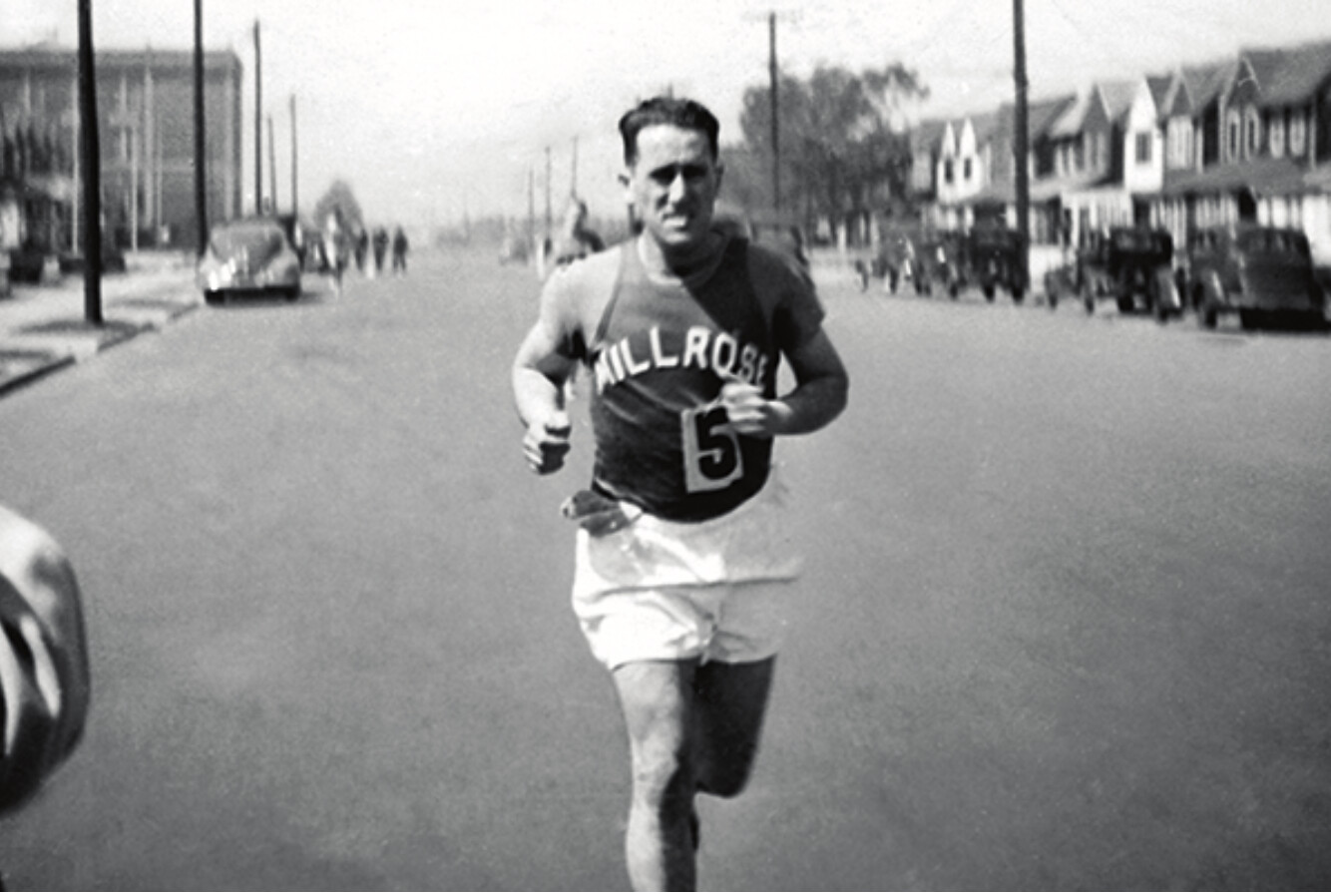
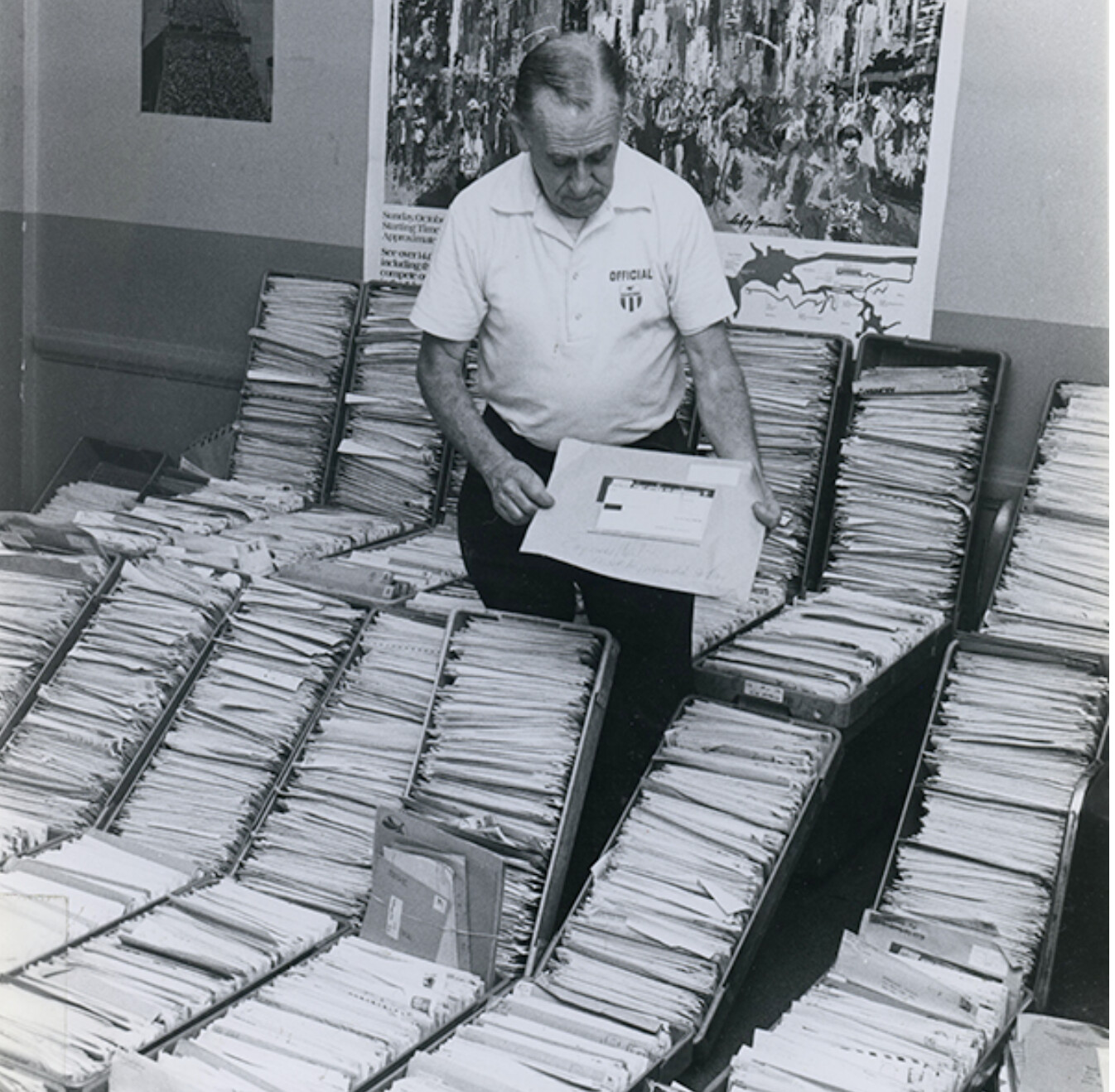
Joe was born in 1912 in Spring Valley, NY, the youngest of four children in a family recently immigrated from Ukraine. He grew up in New York City and started running as a teenager after he and one of his brothers attended the Millrose Games at Madison Square Garden. Joe captained the cross country team at DeWitt Clinton High School, where he also ran track (half-mile and mile). During the summers he trained at Macombs Dam Park in the Bronx.He competed for City College, then won an athletic scholarship to Kansas State University. It was the mid-1930s, the depths of the Great Depression, and when Joe received a job offer with the U.S. Postal Service back in NYC, he could ill afford to turn it down. He returned home to take the job and would remain a Postal Service employee for 32 years. And he continued to run. Joe joined the Millrose Athletic Association and became one of their standout competitors, placing in the top 10 at the Boston Marathon 1941 and 1942 and running a best time of 2 hours and 38 minutes. In an interview years later he noted: “That’s 2:38 with sneakers, on dirt roads, and without any water stops!”
He served as a staff sergeant in the U.S. Army Air Corps during World War II, including 19 months with the 599th Airborne in the South Pacific. He once placed fifth in a 1-mile race in Hawaii on a course laid out by another NYC serviceman also named Joe – last name DiMaggio.
"Joe ran hundreds of races before injuries caused him to stop competing at age 53. He stopped running at age 70 but was able to resume light jogging after knee-replacement surgery in his 80s.
From Competitor to Coach
Joe became the assistant coach of Millrose in 1958 and head coach in 1967. He enthusiastically recruited runners to Millrose, making the team a powerhouse, and was known to many as “Coach” for the rest of his life.At Joe’s memorial service, longtime Millrose runner and 1974 New York City Marathon winner Norb Sander recalled, “Joe was a great coach. He did not intrude. He didn’t criticize you. He was behind the scenes always to make sure that things went smoothly.”
Administrator and NYRR FounderJoe’s interest in working “behind the scenes” led him increasingly toward the administrative side of road racing. In the 1950s all competitive running in the U.S. was governed by the Amateur Athletics Union (AAU), which prohibited women from running distances over a mile, repeatedly failed to take a stand against racial segregation, and discouraged age-group competition. These regressive restrictions and biases frustrated Joe and other runners. In 1958 they formed the Road Runners Club of America (RRCA) to administer road racing.
Later that year Joe, Ted Corbitt, Harry Murphy, and about 40 other runners founded NYRR, then known as the Road Runners Club – New York Association. Joe served as NYRR’s vice president and secretary. He's pictured above with Corbitt and New York City Marathon co-founder Vince Chiappetta. He never sought the limelight, preferring to work behind the scenes. Joe directed and scored countless races and meets – a laborious and task in an era when all recordkeeping was done by hand.
Advocate and VolunteerJoe also worked tirelessly to make running more inclusive and equitable. In 1967, along with Nina Kuscsik and New York City Marathon co-founder Vince Chiappetta, he successfully led a movement to allow women to run AAU-sanctioned races longer than a mile. Later he helped put together a U.S. women’s team for the fabled London-to-Brighton 52-mile road race in England – and saw a dream fulfilled when the women won the race.
Together with Ted Corbitt and others he introduced “veterans” races for runners age 35 and older as well as ultramarathon (50K and 50-mile) national championships. As far as it’s known, Joe never received any compensation for his thousands of hours of service to running. In his old age he remained close to the NYC racing scene and to NYRR’s offices on East 89th Street, where the lobby was named after him following his 90th birthday. He loved to tell stories and to marvel at the growth of running and NYRR over the decades."I considered Joe the heart and soul of Road Runners Club – New York Association," said Gary Corbitt, the son of Ted Corbitt. "Many of the innovation the sport enjoys today were started in New York in the 1960s. My father felt that Joe put in more volunteer hours for the betterment of our sport than anyone else worldwide."
Joe died on Veterans Day in 2003 at age 91. At his memorial service, friends shared their memories of a man who lived large, his gruff manner belying a boundlessly generous spirit. “He barked,” recalled Joe’s Millrose teammate John Garlepp. “If you don’t get the bark, there’s something wrong, either he’s not feeling well or he doesn’t like you.”
Joe's niece, Ruth Kleinrock, said at the service, "Having an uncle who was so instrumental in the sport of running, especially women's running, is something of which my sisters and I will always be proud."Joe Kleinerman dedicated his life to running and creating opportunities for all. We’re grateful to him for it.
(01/08/2023) ⚡AMPJoe Kleinerman Classic 10K
Make good on your New Year’s running resolution by taking part in the Joe Kleinerman 10K! Kleinerman, a founding member of NYRR, the longtime coach of the Millrose Athletic Association, and a beloved NYRR employee until his death in 2003 at age 91, was a true competitor. Take on the challenge of this chilly 10K through beautiful Central Park. The...
more...Sydney chasing Kipchoge in race to join world’s ‘major’ marathons
Sydney Marathon officials are in talks to bring the greatest marathon runner in history, Eliud Kipchoge, to the 2024 race and help Sydney secure a prestigious new status as a world “major” marathon.
The Sydney Marathon, which began in 1999, is bidding to formally become one of the world’s leading 42.195km races, alongside legendary events such as the London Marathon and the New York Marathon.
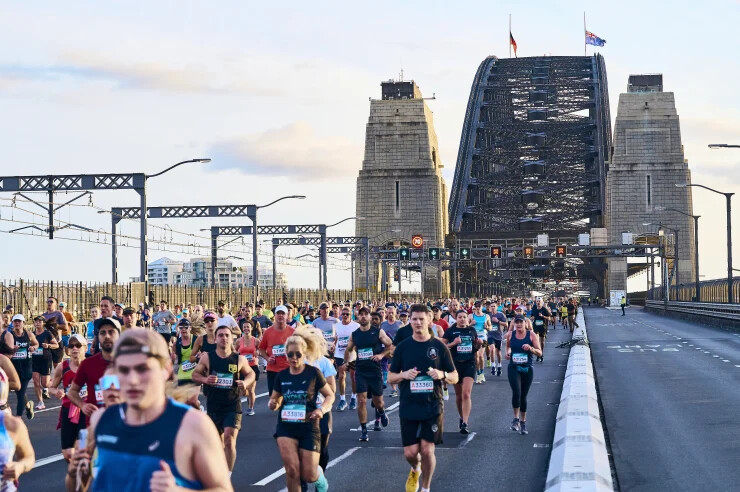
Similar to tennis and golf, the top six marathons in the world – Boston, Berlin, Tokyo, Chicago, London and New York – are known as the “World Marathon Majors”. Each event attracts elite fields, and huge amounts of amateur applicants, every year.
Many marathon enthusiasts set out to collect a six-star medal, earned by running in each of the majors.
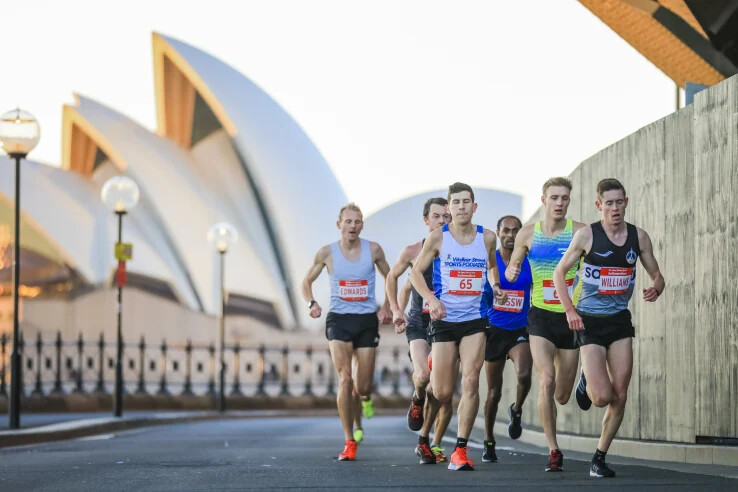
In coming years, however, the medal is likely to be upgraded with the organisation taking on three candidates for potential entry into the elite club: Sydney, Cape Town and Chengdu in China.
The Sydney Marathon announced its candidacy in July and the evaluation process runs for three years. It is already regarded as the strongest candidate.
“It’s a big deal for a number of reasons,” Sydney Marathon race director Wayne Larden said. “The main one is just the sheer volume of runners that take part in these events. Every single one of the Abbotts World Marathon Major events is oversubscribed by between 250,000 and 400,000 runners.
“Which means when we become a major, our numbers are going to leap, with people wanting to get that seventh star. We are expecting a huge boost in numbers, a massive increase in economic impact.”
Though recently upgraded on World Athletics’ ranking system to a “platinum” marathon – making it the eighth best in the world – the Sydney event is relatively modest compared to the majors, which have about 50,000 finishers. Sydney usually has about 5000 finishers, although many thousands more compete in the half-marathon and 10km events run simultaneously.
Destination NSW is backing Sydney’s candidacy for major status and the reasons are straightforward, says Larden. With tens of thousands of tourists coming to race each year, studies show cities gets a massive financial boost. The Chicago Marathon generated almost $600 million for the city’s economy this year.
Sydney must meet certain criteria for two years in a row over the next three years before a vote of other race directors can upgrade it to a major. The tourism and grandeur components are well-covered, with the race route including the Sydney Harbour Bridge and the Opera House as a finish line.
But Sydney will also have to increase its finishers to 15,000 and support the race in bigger numbers like the other major marathons, where there is a culture of people lining the course to cheer on runners, entertainment and a festival atmosphere.
“There are benchmark things, you either have it or you don’t. Is the air clean? Is it a marketable city? Do people want to visit? These are things we have; Sydney is a beautiful place and a global destination,” Larden said.
“More specific things, there are a few key things. We have to triple our number of finishers in the marathon, we have to engage the Sydney community and get them out on the course, like what runners experience in Boston or New York or London. We have to get people out and cheering people on their journey.”
The Sydney Marathon course – which this year saw the fastest time ever run in Australia by Kenya’s Moses Kibet (two hours, seven minutes, two seconds) – will also be altered slightly, replacing the narrow sections of course winding along the edge of wharves at Pyrmont, with more roadway. And it will become a standalone race, with a half-marathon and shorter runs done a day before.
Australian marathon legend Steve Moneghetti, who won the Berlin Marathon in 1990 and is an adviser to the Sydney Marathon, believes the event can be the equal of any in the world.
“I can tell you that in all the world’s top marathons, and I ran a fair few of them, that no one has anything close to the Sydney Harbour Bridge and Opera House on the course. They are iconic,” he said.
“You name me any city in the world and if you can name a better start/finish than that, then you’ve got me. That’s the selling point.
“It is really exciting. And I was a bit surprised, I thought, ‘The world marathon majors? Hey the six is the six and that’s that’. When I sort of considered it, I thought, ‘Yeah, why should it be just those six?’ Marathon running is booming around the world and it’s nice to think they are open to adding to it and Sydney is in the running for it.”
Kipchoge is undisputedly the greatest marathon runner ever, and proved as much by breaking the world record in Berlin in September, running 2:01.09.
The 2016 and 2020 Olympic gold medallist became the first man to run a marathon in under two hours in 2019, in an event that didn’t qualify for a record.
Kipchoge, 38, has vowed to collect a six-star medal before he retires, but Sydney hopes to lure the Kenyan to Australia even before it becomes an extra point on the medal, with an appearance in 2024. Kipchoge running in Sydney would give the race a major boost of global credibility, and be a big help in meeting the targets for finisher and crowd numbers, too.
“He would definitely bring Sydneysiders out. He is like Usain Bolt on a track - when Bolt ran, the stands were full,” Larden said.
“We are talking to Kipchoge’s management and have been since we got nominated. He wants to finish the six next year, so our goal is to try and get him to Sydney in 2024, as that big drawcard.”
Moneghetti said having Kipchoge run across the Harbour Bridge in 2024 would be a massive coup: “To say you ran in a race when Kipchoge ran, that’s a selling point. That’d be huge.”
(01/07/2023) ⚡AMPby Iain Payten
Sydney Marathon
The Sydney Marathon is a marathon held annually in Sydney, Australia. The event was first held in 2001 as a legacy of the 2000 Summer Olympics, which were held in Sydney. In addition to the marathon, a half marathon, 9 kilometres (5.6 mi) "Bridge Run", and a 3.5 kilometres (2.2 mi) "Family Fun Run" are also held under the banner...
more...Six things you’ll understand once you start running
It is well known that runners are a unique breed, and those who don’t run may not understand why you wake up at 6 a.m. on a Sunday in the summer for a 20-kilometer easy run, or why you are putting in 80 to 100 kilometers a week for a local 5K fun run four months from now–until they actually become runners themselves.
Here are six things you’ll understand once you become a runner.
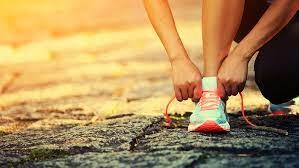
1.- Easy runs
Yes, there is such a thing. Many think all running has to be done hard, but no runner (besides maybe that one guy everyone seems to have on Strava) actually runs like this. If you are running hard all the time, it is certainly the fastest way to find yourself on the injured reserve.
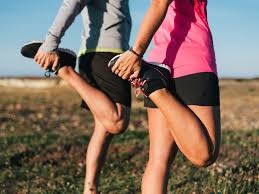
Your easy runs should be done at a comfortable pace, where you can engage in a conversation. It might be very slow at first, but over time you find your pace and your easy-run pace will get faster. Most, especially when starting, tend to run just a little too fast.
2.- The “runner’s high”
Whether it exists for you or not, you understand why people love to run. Many use it as a mental escape and an activity to clear their mind, or a way to be immersed in nature.
Getting out for a run can relieve stress after a long day at work; it forces you to take a step back and helps you clear your mind of negative thoughts.
3.- How fast time goes by
A one-hour run may sound like forever, but once you are out there, the time flies by. Marathoners have the same experience at the start of their race after months of training. Every runner gets this sudden realization of how short two to four hours of running is in comparison to their countless hours of training.
It’s even worse when you come back to race a 5K after you’ve moved up in distance. You’ll feel like you barely ran.
4.- Shin splints
Shin splints aren’t a myth; they are just as painful as runners claim. When you are on a run, you place a load of anywhere from two to six times your body weight on your muscles, bones, ligaments and joints with each stride. If you don’t give your body time to recover and adapt to your training load, shin splints may result.
There are many ways runners can combat shin pain with compression, or by reducing their training load, doing low-impact exercise, or plain and simple rest.
5.- Early morning runs
Early morning runs aren’t torture—they are the best time to go for a run, for various reasons (including that you are rested, there is less traffic, etc.). Plus, if you get your long run done early enough on the weekend, you can kick back and relax for the remainder of the day.
6.- How far a marathon is
Forty-two kilometers is far, but you really understand how far it is once you become a runner. Not to say marathon runners shouldn’t be respected, to begin with, but once you become a runner, you have a new profound admiration for every runner who has tackled the 42.2 km distance.
(01/07/2023) ⚡AMPby Marley Dickinson
Ultramarathons Require Mental Strength and Camaraderie—Here's How You Can Conquer One
Want to take your running to the next level? Here’s what to expect from an ultramarathon.It may seem aggressive, too intense, borderline insane, but ultrarunning—that means running any distance longer than a marathon—is on the rise. In fact, it’s been consistently growing a following over the past few decades: more than 611,000 runners participated in ultras in 2020 versus fewer than 150,000 just 10 years earlier, according to a survey from RunRepeat and the International Association of Ultrarunners.
Although the distance alone makes ultras sound hardcore—not to mention the terrain (they’re typically off-road) or the pre-dawn start times or those reported mid-race hallucinations—runners love them. And for good reason. ing up to the start of your first ultramarathon, know there will be plenty of people out there to support you.
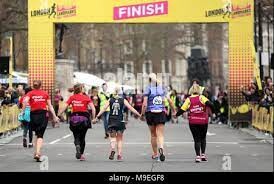
by Runner’s World
This Mom Runs to Decompress and Recharge So She Can Be a Better Parent
“Getting back into running is the best thing I could have done for myself!” I initially got back into running as a way to lose weight, but it became more about making time for myself to de-stress and be a better mom.
I have always been a runner but stopped for more than 10 years. I ran cross-country and track and field in high school, and also ran on and off for two years in college around 2008.

MORE FROM RUNNER'S WORLD ON APPLE NEWS
I had a healthy pregnancy in 2020 with my second son, but gained some weight, which is inevitable when growing a little one. So my initial motivation to pick up running again was to lose some of the pregnancy weight I had gained.
It was after Christmas of 2020, when I was 32 years old, and I finally said enough was enough. I felt uncomfortable in my own skin, my clothes, and I was out of breath going up the stairs.
I was four months postpartum. Yes, I had given myself grace after birth, but it was time to commit to myself again. So in January 2021, I did just that. Running has always been an exercise that inspired me to move my body to be my healthiest self. I decided to make time for myself even when I was tired or burned out. Motivation might fade, but having the discipline to commit would prove worthwhile.
I started by giving myself the goal of 20 minutes of exercise a day, whether that was walking, running, or a combination of both. I used my Apple Watch to help motivate me, as I worked to close my fitness rings. I successfully closed each one for a whole year. In the beginning, my training consisted more of jog/walks to be able to work myself up to running without stopping.
With consistency, I was able to work my way up to running seven miles. My initial mile pace was in the 11- to 12-minute range. But, I put in the work every day and was able to bring my pace down to the 8- to 9-minute range—something I’m very proud of! Consistency and hard work will always pay off.
Right now, raising two young boys, my running schedule varies, but I hope to start training for a half marathon in the fall of 2023.
During my weight loss, it helped me to count my calories, and I also ate lower carb options with high protein. As I’ve maintained my weight loss for over a year, I still follow a high-protein diet, but don’t count my calories as often.
Running became a passion of mine again because it helped me as an outlet with motherhood. Losing weight was a perk but I found myself again as a person, not just a mom. Motherhood can be extremely draining. It’s the most wonderful thing in the world, but you are constantly putting others’ needs before yourself. Children rely on you, but when I started running again, I became a better mother and wife. I needed that outlet and alone time to help decompress. Getting back into running is the best thing I could have done for myself!
These three tips have made my running journey a success:
1. Believe in yourself
Only you can get yourself through the hard days and the unmotivated days. Believe that you can accomplish it and you will.
2. Set small, attainable goals
Small things add up with consistency over time. It’s easy to get wrapped up in what’s working for someone else, but you have to focus on you. We are all different.
3. Just get out there
You don’t have to go out and run for long periods of time or distances to be a runner. Just getting out there—whether it be a mile or two—makes you a runner. Overtime, it makes a difference, and still makes you a runner.
Sarah’s Must-Have Gear
→ Hoka Clifton: Over the years I’ve tried many different brands, but Hoka’s are my number-one.
→ Goodr Sunglasses: These sunglasses do not slip while sweating.
→ Shefit Sports Bra: Starting out with a larger chest, I needed as much support as I could for running. Shefit has always been my go-to sports bra. With adjustable straps, you are able to customize it to fit your needs.
→ BOB Rambler Jogging Stroller: BOB strollers are the best in the game for jogging strollers. I have both a double and single. They have helped me tremendously, because as a stay-at-home mom, I don’t always have an option for someone to watch my kids. This is a great option for them to come along with me on my runs.
(01/06/2023) ⚡AMPby Runner’s World
Man Races London Subway Train to the Next Stop
Could you beat a subway from stop to stop?
A man in London sought to answer the age-old question: Which is faster, a runner or public transportation?

In a video from December 26 that’s since gone viral, a runner got off at the Mansion House subway station, booked it up the stairs and made his way to the next stop at Cannon Street, where he boarded the same train. He, of course, pays his subway fare, too.The route, according to Google Maps, is 0.1 mile, and the walking directions estimate about three minutes (without going up and down the subway stairs). The video is 1 minute 37 seconds, clocking the time the man sprints out of the subway car and up the stairs. It shows a split screen—the subway riding to its next stop and a first-person, dizzying, perspective of the man running to Cannon Street.
In the background, comically, you can see a woman and a child sitting next to the door, who cheer when the man makes it back onto the train.
In typical Internet fashion, there are naysayers questioning the feat and others who wonder why there are two stations so close to each other.
(01/06/2023) ⚡AMPby Runner’s World
4 Runners Have Vanished From This Island in 2 Years. No One Knows Why.
Four people have disappeared from the Portuguese island in the last two years—without a trace.
On December 11, 2022, British trail runner Darren Kay of Sedbergh, U.K. went missing on a Portuguese island off the coast of northern Africa. The BBC reported that the 52-year-old went on a two-hour run with his partner and decided to tack on additional mileage alone. He hasn’t been seen since. Local authorities ceased the search on December 21.
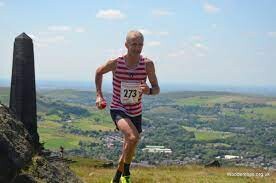
Kay was the fourth runner in two years to go missing on the island. Jascha Hardenberg, a 28-year-old from Germany, went missing on December 29, 2020. Polish 35-year-old Michal Kozek vanished on July 7, 2021. French tourist Benoit Way, 35, disappeared on September 1, 2021. These three runners were gone “without a trace, no clothing found or spotted, all with backpacks” wrote Madeira Island News.Tobi Hughes of the Madeira Island News posed a question: “How is this possible, even if they have all fallen and died?”
Madeira is home to high peaks, massive cliffs, and rocky terrain. During the search for Kay, heavy wind and high tides prevented a full-on search of the island, according to the BBC.
“Accidents involving tourists exploring Madeira’s hillside walks are not uncommon, but situations in which they disappear altogether, leaving absolutely no clues as to what may have happened, are not (or perhaps, have not been, until now),” reported the Portugal Resident.
However, only two major connections between the cases are apparent so far. All four were out on their own, while Hardenberg, Kay, and Kozek went missing near the town of Calheta.
(01/06/2023) ⚡AMPby Runner’s World
Edward Cheserek to battle Shura Kitata in Houston Half Marathon
Kenya’s Edward Cheserek will be the star to watch at the 51st edition of the Aramco Houston Half-Marathon that will be held on January 15, 2023 in Houston, Texas, United States.
The 28 year-old comes to this race with the fourth fastest time on paper of 1:00.03 that he got last year in Valencia Half marathon, comes to this race with the fourth fastest time on paper.
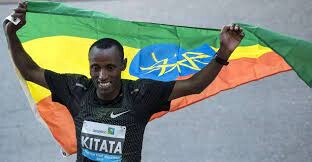
After Valencia last fall, I’ve trained harder and I think sub-60 is possible. Houston is known for being a fast course and I want to have a chance with a personal best,” said Cheserek.
Cheserek who is the the 17-time NCAA champion, will battle the 2020 London Marathon champion, Shura Kitata who comes to this race with a life time best of 59:47 that he got at this same event in the same year.
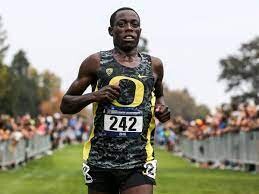
The two will have to get past the 2015 All-African Games Silver medalist, Leul Gebresilase who comes to this race with the fastest time on paper of 59:18 that he got at the 2017 Valencia Half Marathon, where he took the silver medal and the 2018 Mediterranean Games half marathon champion, Mohamed El Aaraby who also comes with a personal best of 59:54 that he got last year at the Meta Time Trials By Asics.
The race organizers have assembled this deep field to chase the race course record of 59:22 that was set ten years ago by the 2016 Rio Olympics marathon silver medalist, Feyisa Lilesa from Ethiopia.
(01/06/2023) ⚡AMPby John Vaselyne
Aramco Houston Half Marathon
The Chevron Houston Marathon offers participants a unique running experience in America's fourth largest city. The fast, flat, scenic single-loop course has been ranked as the "fastest winter marathon" and "second fastest marathon overall" by Ultimate Guide To Marathons. After 30 years of marathon-only competition, Houston added the half-marathon in 2002, with El Paso Energy as the sponsor. Today the...
more...Infrastructure key in hosting major global events, Sebanstian Coe Says
World Athletics President Sebastian Coe has said that Kenya will need to work on its infrastructural facilities among other areas if they are to host the World Athletics Championships.
Coe said that the county’s capacity and integration of all different facets that will give athletes the very best, must be attained as Athletics Kenya president Jack Tuwei disclosed that Kenya is now keen on hosting the 2029 World Athletics Championships.

Kenya lost its bid to host the 2025 World Athletics Championships to Tokyo, Japan with the country's poor infrastructure especially the lack of a modern stadium costing the country dearly.
Coe hinted that World Aesthetics is ready to help Kenya build capacity in terms of the technical aspect to bolster their chances of hosting the world event.
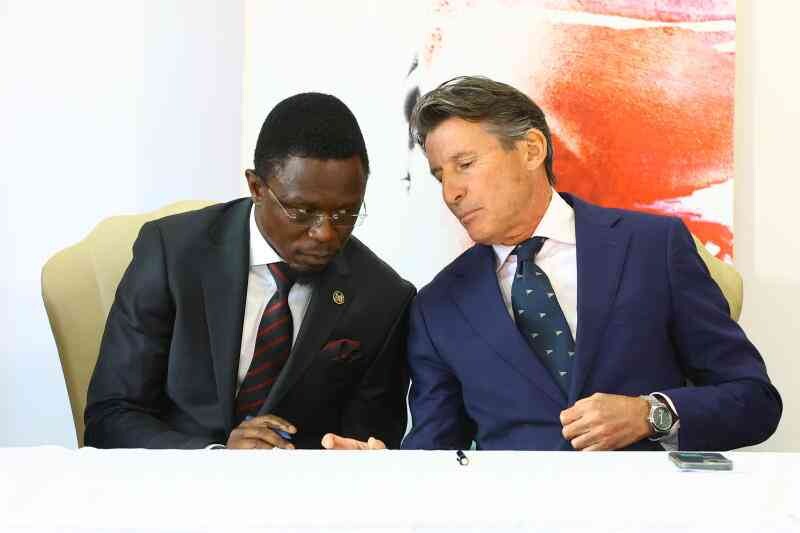
“It’s quite understandable this is a country with a passion for athletics and wanting to stage big events. While the country’s track record is good, other areas still fall short,” said Coe, adding that the country also has to show progress and make coherent steps in resolving doping challenges.
Coe noted that Kenya might have hosted quite successful 2017 World Athletics Under-18 Championships and 2021 World Athletics Under-20 Championships but having a strong technical base will be key to hosting major events.
Coe said by-passing the 2027 bid will help Kenya prepare well for 2029 bid.
Tuwei welcomed the move by World Athletics to help them in technical capacity saying Kenya won’t relent on putting up another bid.
Coe, at the same time, said the only way out for Kenya to get out of Category “A” of the countries with most doping cases is the reduction of the cases.
In 2018, World Athletics placed Kenya among four countries in ‘Category A’, the others being Ethiopia, Belarus and Ukraine.
Athletes from these federations selected to compete in major events will have to undergo at least three out-of-competition doping tests in the 10 months before a World Athletics Championships or Olympic Games.
One of the tests must be of blood and the tests should be done two weeks apart.
(01/06/2023) ⚡AMPby Ayumba Ayodi
Laura Muir headlines Millrose Games Wanamaker Mile
Laura Muir will race the Rudin Women’s Wanamaker Mile at the Millrose Games when she makes her debut at the World Athletics Indoor Tour Gold meeting in New York on February 11.
Muir won her long-awaited Olympic silver medal in Tokyo, then backed it up with a bronze medal at the World Athletics Championships Oregon22. The 29-year-old is a six-time European gold medallist, two-time Diamond League champion and the 2022 Commonwealth Games champion in the 1500m. In total, she holds six British records indoors and outdoors.
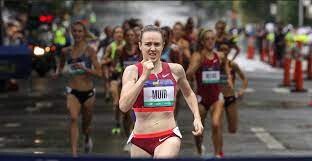
Muir blasted a 4:14.8 road mile last September at her most recent race in New York City, setting the course record for the 5th Avenue Mile. The Wanamaker Mile event record of 4:16.85 was set by Elinor Purrier St. Pierre in 2020, that mark also being the US record and second-fastest indoor mile in history.
“This will be my first time racing at the Millrose Games, so I am really excited as it has been a competition that I have wanted to do for a long time,” said Muir, who will also compete at the World Indoor Tour Gold meetings in Boston and Birmingham. “I have very fond memories of racing in the city, and I cannot wait to return and tackle the same distance indoors.”
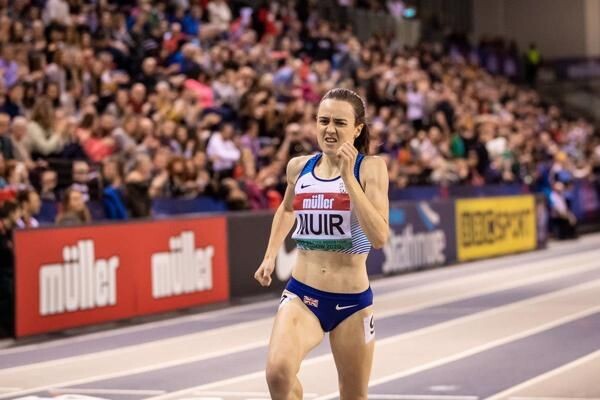
As always, the Wanamaker Mile will feature a deep field of talented runners hungry for an upset victory. Athletes to watch include US 1500m champion Sinclaire Johnson, British indoor mile record-holder Jemma Reekie, Josette Norris, Sage Hurta-Klecker, Nikki Hiltz, Medina Eisa, Allie Wilson, Lucia Stafford, Sintayehu Vissa, Marta Pen Freitas and Helen Schlachtenhaufen.
These are the latest stars announced for the Millrose Games, joining the showdowns in the pole vault between Katie Moon, Sandi Morris and Katerina Stefanidi, and in the shot put, featuring Ryan Crouser and Joe Kovacs. The women's 300m will feature Abby Steiner, Jenna Prandini and Brittany Brown, and the women’s 3000m will star Konstanze Klosterhalfen and Alicia Monson. In the men’s 60m, two-time world 200m champion Noah Lyles will race for more sprint success.
(01/06/2023) ⚡AMPby World Athletics
NYRR Millrose Games
The NYRR Millrose Games,which began in 1908 as a small event sponsored by a local track club, has grown to become the most prestigious indoor track and field event in the United States. The NYRR Millrose Games meet is held in Manhattan’s Washington Heights at the New Balance Track & Field Center at the Armony, which boasts a state-of-the-art six-lane,...
more...Refugee Olympic Team for Paris 2024 to have base in Kenya
The Refugee Olympic Team (EOR) will have a base in Kenya to prepare for the next year's Olympic Games in Paris, with eight athletes set to train in the North Rift of the country.
The National Olympic Committee of Kenya (NOC-K) has worked with the United Nations High Commission of Refugees and Athletics Kenya to find athletics training bases starting this month, with these visits led by its President Paul Tergat.
Kenya hosted five EOR athletes prior to Rio 2016 - all from South Sudan - with another four coming to the country from the same nation ahead of Tokyo 2020.
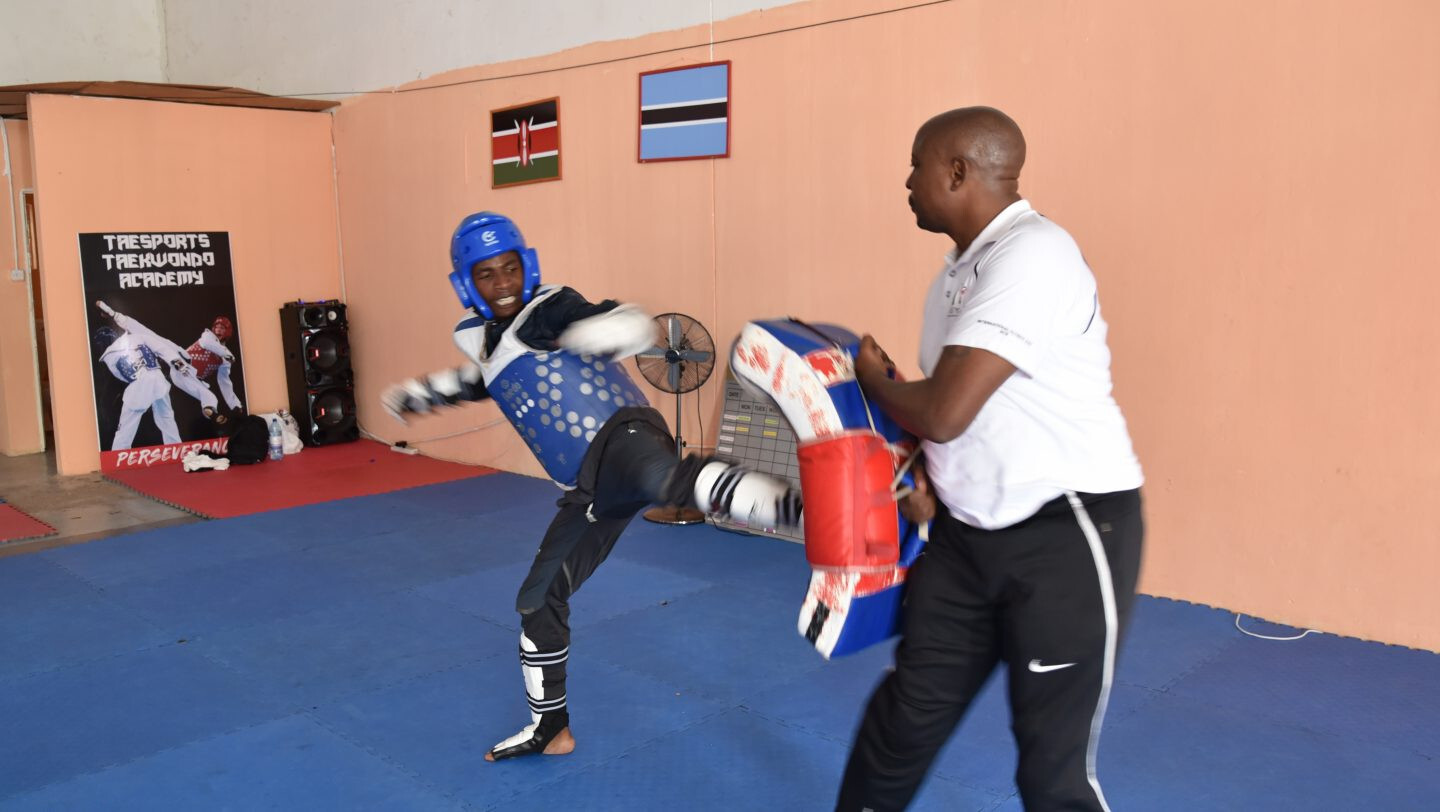
During a visit, the NOC head praised the work of Olympian and former women's marathon world-record holder Tegla Loroupe for their work in including refugees into sports programmes, like this one.
"The first batch of the athletes competed during the Rio 2016 Olympic Games and Loroupe was the Chef de Mission of the [EOR] Team," said Tergat, the double Olympic 10,000 metres silver medallist, according to Kenyan publication The Star.
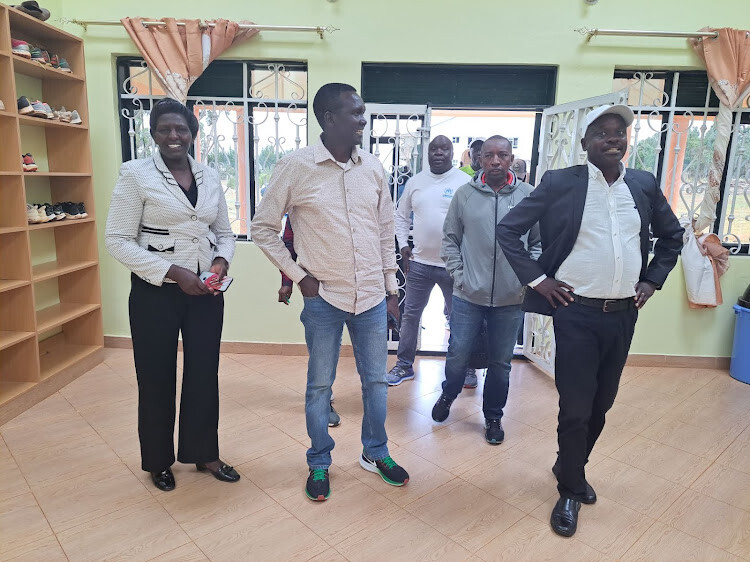
"We are very proud of the work and achievements that Loroupe, through her Foundation, has done in giving opportunities to these athletes."
This time, eight athletes are set to be at the training base.
Anjelina Nadai Lohalith is hoping to compete in her third Olympic Games as part of the EOR team with the South Sudanese athlete ready to race the women's 1500m again.
Dominic Lokolong, also from the country that spent seven years officially in a civil war, is to race the men's 1500m at his first Games.
Kun Waar and Rose Ihisa, competing in the men's and women's 400m respectively and originally from South Sudan, are on the team; as are their compatriots John Lokibe and Josephine Tein in the men's and women's 800m.
Emmanuel Ntagunga of the Democratic Republic of the Congo is to enter the men's 5,000m, while Gasto Nsazumukiza, also from this country, is the only member of the EOR team in Kenya who will not compete in athletics.
Nsazumukiza is set to compete in taekwondo.
NOC-K secretary general Francis Mutuku promised they would continue working with the refugees throughout the build-up to Paris 2024.
"The Refugee Team will now be working under NOC-K and we want to ensure that we get a good place for their training and produce proper results," said Mutuku.
"These athletes will fly the International Olympic Committee flag.
"We are not just looking at training camps but a good place for them to train.
"We are working hand in hand with Athletics Kenya and UNHCR to ensure that they perform well."
Parties visited the Complete Sports in Kaptagat, Lornah Kiplagat High Altitude Performance Centre in Iten, Kipchoge Keino facility and Ndura Sports Complex in Kitale as part of its training camp inspections.
The Paris 2024 Olympics are scheduled to take place from July 26 to August 11 2024, followed by the Paralympics from August 28 to September 8.
(01/06/2023) ⚡AMP
by Michael Houston
Paris 2024 Olympic Games
For this historic event, the City of Light is thinking big! Visitors will be able to watch events at top sporting venues in Paris and the Paris region, as well as at emblematic monuments in the capital visited by several millions of tourists each year. The promise of exceptional moments to experience in an exceptional setting! A great way to...
more...NBA star Donovan Mitchell credits track workouts for his 70-point game
On Jan. 2 at the Rocket Mortgage Fieldhouse in Cleveland, Ohio, Cleveland Cavaliers guard Donovan Mitchell became the second active NBA player to score 70 or more points in a single game. When asked by ESPN insider Brian Windhorst about the noticeable change in his performance this season, Mitchell responded that his secret was sprint workouts at the track.
“For eight weeks over the summer, I ran endless sprints with my trainer,” Mitchell told Windhorst. “We start by doing six sprints of 50 meters. Then five of 100 meters. Three at 200 meters. And lastly, two lung-busting 400s.”
Although Mitchell doesn’t tell ESPN the rest between his reps, it’s clear the workout was designed to help Mitchell increase his lactic tolerance for late in an NBA game or during a grueling seven-game playoff series.
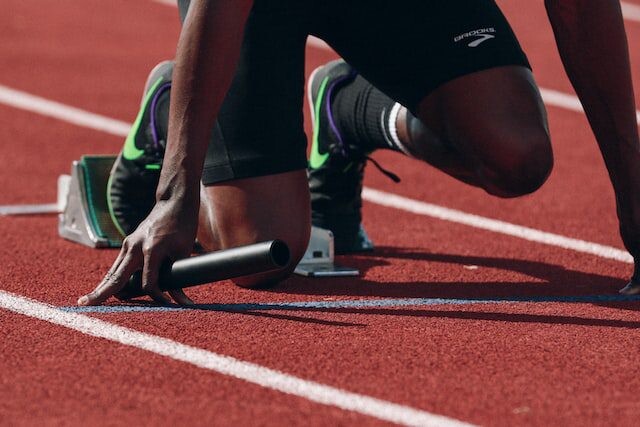
As Mitchell netted 63 points at the end of regulation against the Chicago Bulls, the 26-year-old scored eight points in overtime to lead the Cavs past the Bulls. “He simply looked stronger and faster than anyone on the floor,” reported Windhorst.
According to the article, Mitchell said he lowered his 400m time to 57 seconds before leaving for the fall preseason camp with the Cavs. Although 57 seconds wouldn’t win him any elite or sub-elite 400m race, it’s a speedy time for a basketball player at the end of a workout.
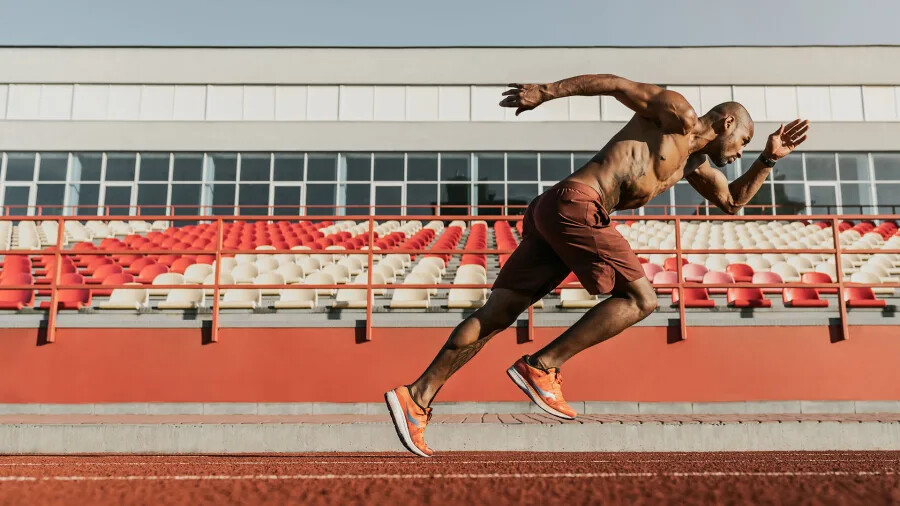
The benefits of sprint training include increasing your caloric burn, which can help to reduce your resting heart rate, and your rate of fat oxidation, plus improve your resting Basal Metabolic Rate (BMR–how many calories you burn at rest).
When running or playing any high-intensity sport, the lactic buildup can generate fatigue and pain in your muscles, preventing you from performing at your best. By including faster sprint and speed workouts in your training, you will use fast-twitch muscle fibres more efficiently while increasing your muscle mass, developing bone density, and importantly—improving speed.
Try this workout at your local track or treadmill with these modifications:
(This sprint workout should be done at 90 to 100 per cent of all-out)
Track workout
Six reps of 50 metres with walk-back recovery
Five reps of 100 metres with two mins recovery
Three reps of 200 metres with three mins recovery
Two reps of 400 metres with five mins recovery
Treadmill workout
Six reps of 15 seconds with a one-minute walk recovery
Five reps of 30 seconds with two mins walk recovery
Three reps of 45 seconds with three mins walk recovery
Two reps of 90 seconds with five mins walk recovery.
(01/05/2023) ⚡AMPby Marley Dickinson
Italian distance runner given 36-year ban from racing, this runner won't be able to race again until 2058
Italian distance runner Alessandro Braconi of Pallanza, Italy, will not be eligible to compete until 2058 after receiving a ban of 36 years for the use/attempted use, possession, and trafficking/attempted trafficking of a prohibited substance. This follows his provisional suspension after a positive drug test in March 2022.
Braconi, 36, originally received a 12-year ban from the Athletics Integrity Unit in October, but since doping is a criminal offense in Italy, he had to explain his actions to authorities, and then the Italian Athletics Federation (FIDAL) added on another 24 years.
In May, he was found racing the Lago Maggiore Half Marathon in Stresa, Italy, despite his 12-year disqualification. Although the substance Braconi used/trafficked was not revealed by FIDAL or the AIU, he will be unable to compete until he’s 72.
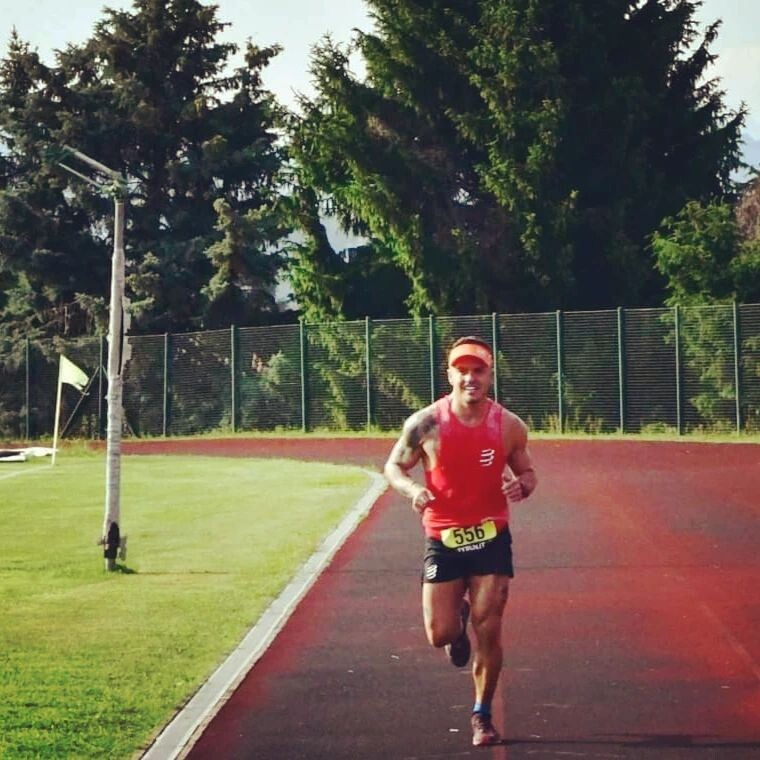
Braconi, a 1:19 half marathoner, holds one of the longest bans on the AIU database that isn’t a lifetime ban. He was one of two Italian athletes on the latest AIU list, the other being distance runner and former semi-pro cyclist Christian Barchi, who originally incurred a six-year ban, but after he was found competing for a second time while he was sanctioned, incurred an additional penalty, taking his ban to 2031.
A few European nations have made doping a criminal offense to help control cheating in athletics. Many in the running community have called for all nations to adopt this approach.
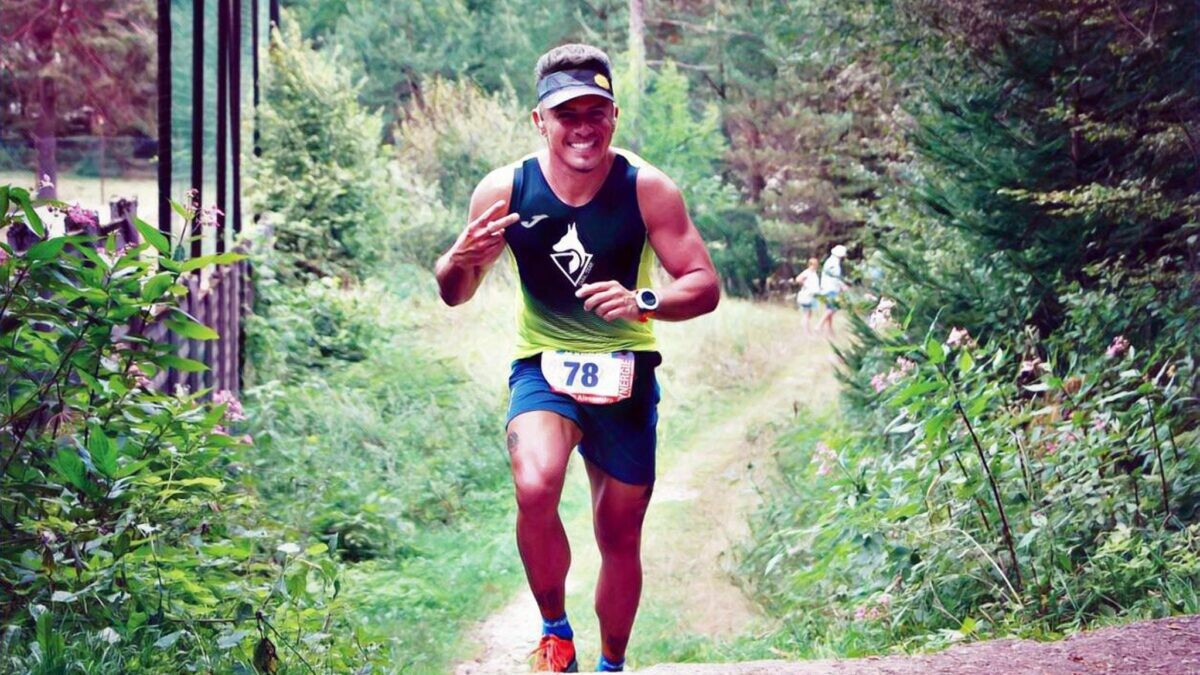
by Running Magazine
Ten reasons to be excited for the 2023 Athletics season
There are many things to look forward to in the sport of athletics in the upcoming year.
There’ll be three global championships in 2023, with ever-expanding one-day meeting circuits spread throughout the year. Rivalries will be renewed, and record-breakers will continue to push boundaries in their respective disciplines.
Here are just ten of the many reasons to be excited by what’s to come over the next 12 months.
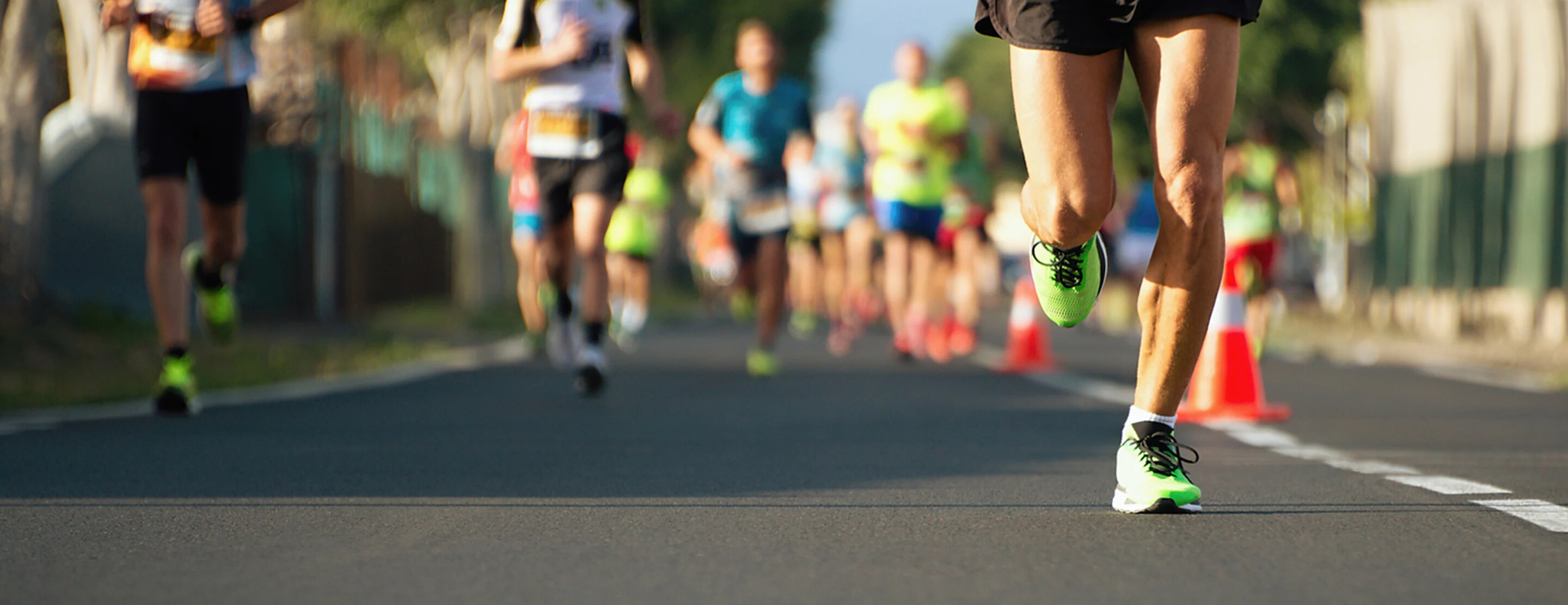
1. World Athletics Championships Budapest 23
More than 2000 athletes from about 200 countries will head to the Hungarian capital to compete in the world’s biggest track and field event of 2023. Taking place just 13 months after the last edition, it will be the shortest ever gap between two World Championships, so fans won’t have long to wait before seeing the best athletes on the planet re-engage in battle for global honours.
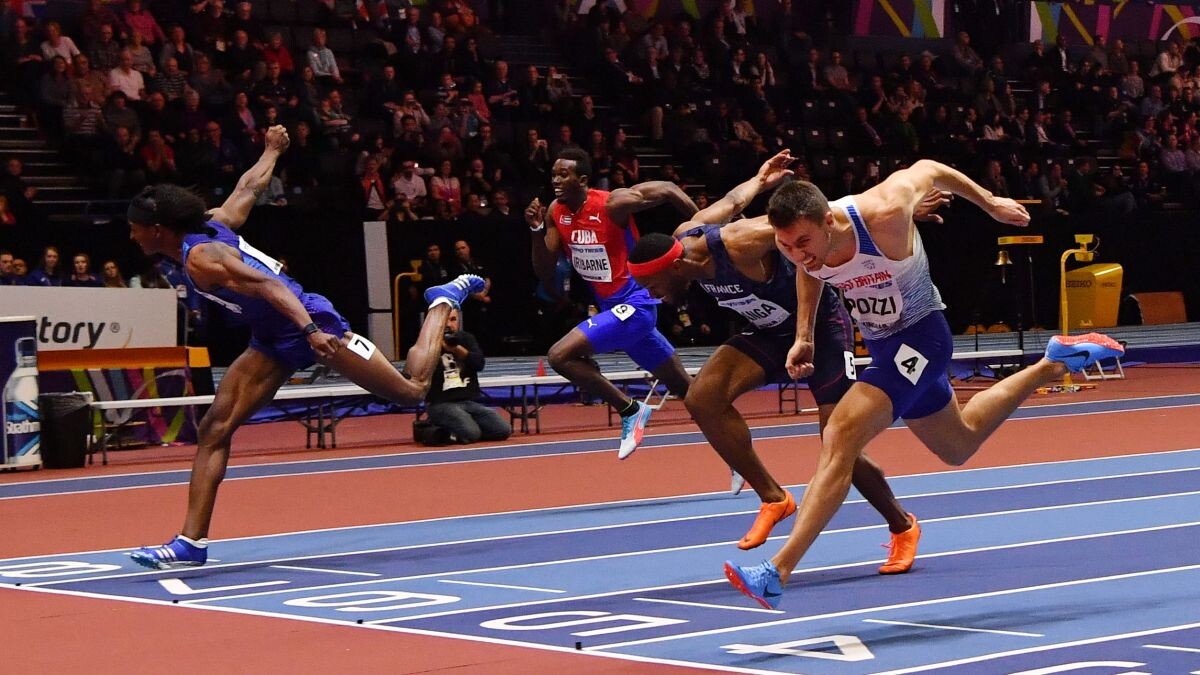
2. Pushing boundaries
World Athletes of the Year Mondo Duplantis and Sydney McLaughlin-Levrone have elevated their respective events to new heights in recent years.
Both aged just 23, their progression and record-breaking exploits will most likely continue in 2023. The same applies to other dominant forces within the sport, such as world and Olympic triple jump champion Yulimar Rojas and marathon legend Eliud Kipchoge.
3. New eras
The sport, as with everything in life, continues to evolve. Kenya, for example, dominated the steeplechase for years, but now the leading forces in that discipline are from Morocco, Ethiopia and Kazakhstan.
The women’s throws, meanwhile, are now the domain of North America. And Japan is a leading force in men’s race walking.
New faces and countries will likely emerge in 2023, changing the landscape of the sport.
4. Sprint showdowns
Gone are the days where the world’s leading sprinters avoid each other on the circuit. Multiple world champion Shelly-Ann Fraser-Pryce, for example, will often line up against fellow Jamaican stars Elaine Thompson-Herah and Shericka Jackson. And 200m specialists Noah Lyles and Erriyon Knighton have clashed frequently in recent years. No doubt there will be many more high-octane sprint duels in store in 2023.
5. World Athletics Road Running Championships Riga 23
The newest global event within the sport, the World Athletics Road Running Championships Riga 23 will unite elite and recreational runners in the Latvian capital on September 30 and October 1. The range of distances — mile, 5km and half marathon — means there’s something for all of the world’s best endurance athletes to sink their teeth into. The same applies to the thousands of runners who’ll take to the streets of Riga for the mass races as they race in the footsteps of legends.
6. Crouser vs Kovacs
They provided one of the greatest duels the sport has ever witnessed at the 2019 World Championships, and there’s no sign of the rivalry ending between Ryan Crouser and Joe Kovacs. The shot put giants have won numerous global titles between them. Crouser has been a dominant force in recent years, but Kovacs also hit an all-time career peak in 2022 with a lifetime best of 23.23m, taking him to No.2 on the world all-time list behind Crouser. No one would be surprised if either man broke the world record in 2023.
7. At the double
When the timetable for the 2023 World Championships was release a few months ago, it became clear that many popular doubles — such as the 100m and 200m, 800m and 1500m, 1500m and 5000m, 5000m and 10,000m, 20km and 35km race walk, women’s long jump & triple jump, and women’s 200m and 400m – would be doable in Budapest. The likes of Yulimar Rojas, Shaunae Miller-Uibo, Fred Kerley and Sydney McLaughlin have all hinted at attempting major championship doubles in recent years, so it will be fascinating to see who enters more than one discipline in the Hungarian capital.
8. Continental Tour Gold expands
The global one-day meeting circuit will have 14 Gold level meetings in 2023, taking in new stops in Botswana, Grenada and Melbourne.
It means there are now Gold meetings in five different continental areas. The wider series has also expanded with 165 Continental Tour meetings currently on the calendar for 2023, 13 more than in 2022.
9. Distance duels
Endurance athletes are extra fortunate in 2023 because they will be able to compete at all three global championships, covering a range of surfaces. Letesenbet Gidey and Hellen Obiri provided one of the most thrilling clashes at the World Championships in Oregon, and there’s a good chance they’ll race one another again, either in Bathurst, Budapest or Riga.
World 5000m champion Jakob Ingebrigtsen, meanwhile, could potentially line up against two-time world 10,000m champion Joshua Cheptegei in Budapest — or even on the circuit throughout the season.
There are four women active in the marathon — Brigid Kosgei, Ruth Chepngetich, Amane Beriso and Tigist Assefa — with sub-2:16 PBs, all of whom could push one another to a world record. And in the race walks, the likes of Toshikazu Yamanishi and Massimo Stano could clash at either 20km or 35km — or both.
10. World Athletics Cross Country Championships Bathurst 23
One of the first big highlights of the year will take place Down Under when Bathurst hosts the World Cross Country Championships.
Recent editions have been highly competitive and engaging, and that will no doubt be the case once more as hundreds of the world’s best distance athletes take to Mount Panorama. And, as is the case with Riga and Budapest, there are opportunities for recreational runners to be a part of the event too.
(01/05/2023) ⚡AMPby World Athletics
Five-time European champion Mahiedine Mekhissi announces his retirement at the age of 37
One of the greatest European steeplechasers in history Mahiedine Mekhissi from France has announced his retirement from athletics at the age of 37.
In an illustrious decade-long spell, Mekhissi won medals at three successive Olympic Games between 2008 and 2016 and titles at five consecutive editions of the European Athletics Championships between 2010 and 2018.
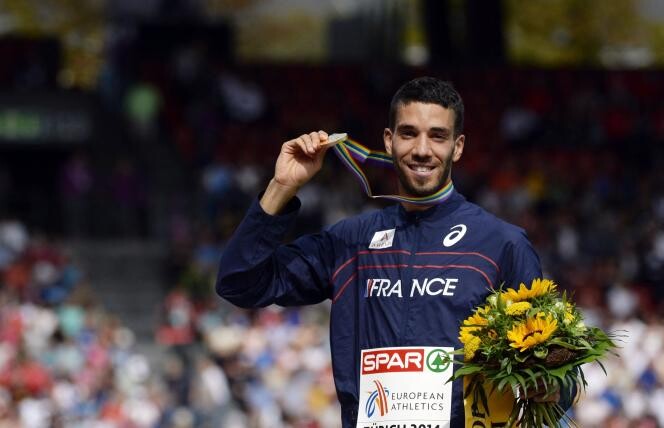
But in recent years, Mekhissi has struggled with leg and foot injuries and hasn’t completed a 3000m steeplechase since winning gold for the fourth time at the 2018 European Athletics Championships in Berlin.
“I have stopped because the will is no longer there. I no longer have the desire to train. I felt that this was the right moment to stop. Put simply, if I ran, it would be to become world champion, Olympic champion, to win medals and break records.
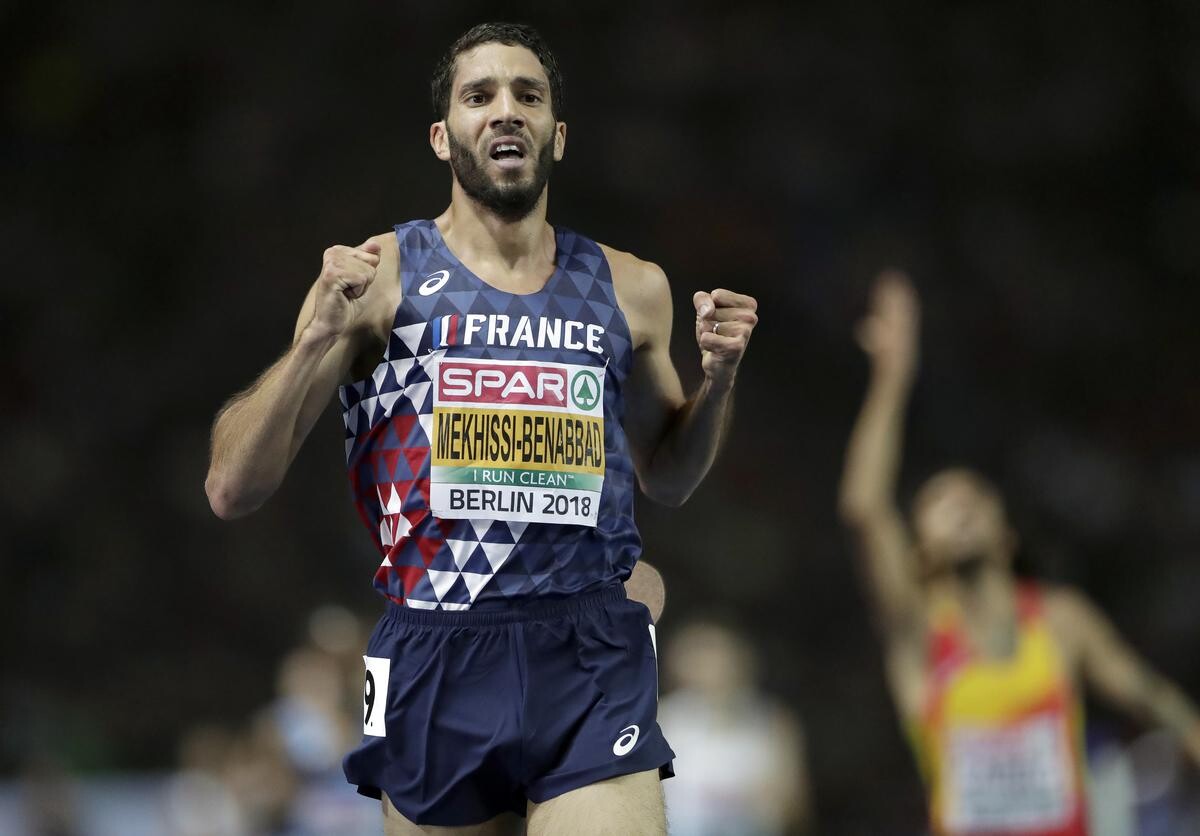
“To achieve those objectives, if you don’t have the will, there is no point in continuing. The desire is no longer there and I wanted to move on, to do something else with my life,” said Mekhissi as quoted by L’Equipe.
But despite being primarily renowned for his exploits in major championships, Mekhissi has also held the European record in the 3000m steeplechase for just over nine years, clocking 8:00.09 on home soil in the Paris Diamond League in 2013.
The mercurial Frenchman’s career was not without its controversies either. Mekhissi was famously disqualified at the 2014 European Athletics Championships after winning the 3000m steeplechase for taking off his vest and waving it in celebration as he came down the home straight for the last time.
But Mekhissi kept his win streak at the European Athletics Championships intact by returning to win a tactical and scrappy 1500m final on the last day of the championships with a devastating sprint. Even though he eased off in the last 20 metres, his last lap was still timed at 52.17.
"This is a discipline which I have never contested in a championships before and I won it with style," said Mekhissi, who is still the last non-Ingebrigtsen to win the 1500m title at the European Athletics Championships.
Aside from his Olympic and European triumphs, Mekhissi also won bronze medals in the 3000m steeplechase at the 2011 and 2013 World Athletics Championships.
He also demonstrated his versatility by winning the 1500m title at the 2013 European Athletics Indoor Championships in Gothenburg while his last medal came on the mud in Tilburg in 2018, helping France to team silver in the mixed relay at the SPAR European Cross Country Championships.
Mekhissi's ten fastest 3000m steeplechase races
8:00.09 Paris (2013)
8:02.09 Paris (2011)
8:02.52 Brussels (2010)
8:03.23 Brussels (2014)
8:06.60 Eugene (2013)
8:06.98 Hengelo (2009)
8:07.45 Sotteville (2014)
8:07.86 World Championships, Moscow (2013)
8:07.87 European Championships, Barcelona (2010)
8:08.15 Brussels (2016).
(01/05/2023) ⚡AMPWorld Athletics boss Sebastian Coe meets Sports CS Ababu
Kenya is ready to abide by World Athletics guidelines in view of preserving the country’s strong tradition of competing and winning clean, Sports CS Ababu Namwamba has said.
Nawamba Wednesday told the visiting World Athletics President Sebastian Coe that the government will champion for cultural change in sport by inculcating the value of integrity amongst the athletes.
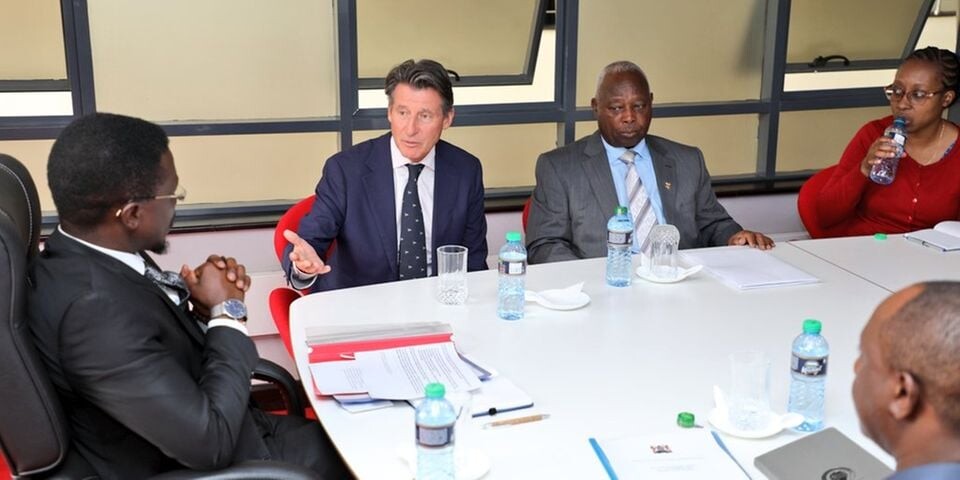
Namwamba said that they will partner with the Athletes Integrity Unit (AIU) and Athletics Kenya to ensure that issues pertaining to athletics sports management and Kenya's battle against doping is achieved.
"I am a strong believer in Abraham Lincoln's philosophy that it is more honorable to lose than to cheat. Our athletes must also live by this," Namwamba told Coe, who paid him a courtesy call at Maktaba Kuu office, Nairobi Wednesday afternoon.
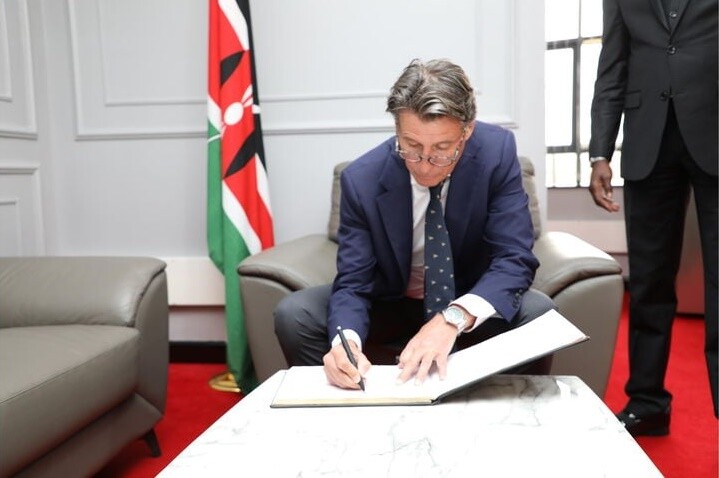
Coe, who arrived in the country on Tuesday, is on a one week private visit and holiday in the country.
The World Athletics boss will Thursday hold discussions with Athletics Kenya officials, coaches and athletes at the Weston Hotel, Nairobi.
Coe, 66, will also have a session with the media starting at 11m at the same hotel.
Coe’s visit comes five weeks after chairing a World Athletics Council meeting in Italy , which gave the country a great reprieve on matters of doping.
Even though Kenya stayed in Category “A” of countries where doping is prevalent, the country escaped a ban despite the skyrocketing cases of doping cases in the country.
Coe lauded Kenya’s efforts to fight the doping scourge adding that the move by the Kenyan government to increase the funding in the fight against doping to Sh619 million annually for a period of five years, was evident enough.
Coe said that the funding will help increase the number of tests, investigations besides bolstering the already comprehensive education programs by Athletics Kenya and Anti-Doping Agency of Kenya (ADAK).
In the last four years, 90 Kenyan athletes have been banned or suspended for varying doping offences with 30 cases coming last year.
(01/04/2023) ⚡AMPby Ayumba Ayodi
Sebastian Coe
Emily Sisson, Conner Mantz, Jenny Simpson, Tirunesh Dibaba Headline 2023 Aramco Houston Half Marathon
The Houston Marathon Committee announced today the elite athletes who will chase the $10,000 first-place prize in this historically fast race. Elite fields for the Chevron Houston Marathon which is held simultaneously on Sunday, January 15, will be announced tomorrow.
American records in the half marathon and marathon were set in Houston last year, but by the end of 2022, Emily Sisson had broken them both. Houston will be Sisson’s first race since running 2:18:29 at the Bank of America Chicago Marathon in October, shattering Keira D’Amato’s record by 43 seconds. Earlier in the year, her 1:07:11 performance in Indianapolis shaved four seconds off Sara Hall’s half marathon record.
“I have really enjoyed racing here in the past and am excited to start my 2023 season in Houston,” said Sisson who finished fifth in the 2019 Aramco Houston Half Marathon. “I felt good coming out of Chicago and am really looking forward to another opportunity to race.”
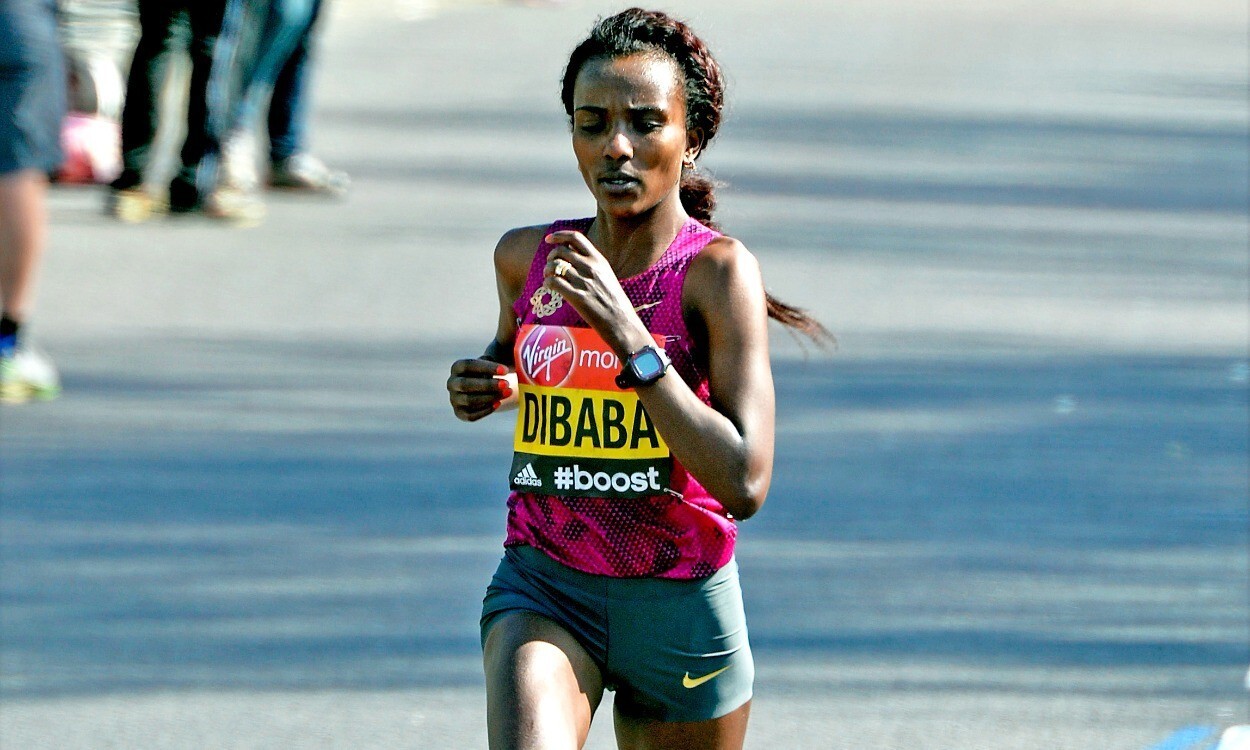
Sisson will have to contend with one of the greatest distance runners of all time as Tirunesh Dibaba of Ethiopia makes a return to competition after a more than four-year hiatus. The three-time Olympic gold medalist and five-time world champion has not raced since 2018 but says after giving birth to a second child in 2019 and then battling COVID-19, she is ready to add another chapter to her storied career.
“Houston is a famous race and my training has been going well,” said Dibaba, the 2017 Chicago Marathon Champion. “It seemed like the best way to test myself and see what could be next.”
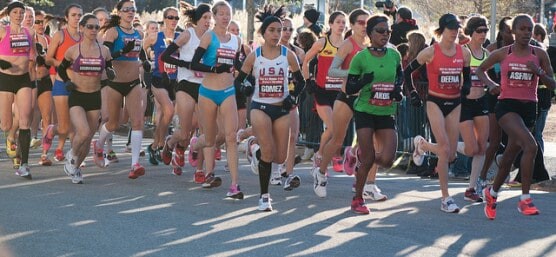
Other top contenders in the women’s half marathon elite field include 2021 Berlin Marathon runner-up Hiwot Gebrekidan of Ethiopia and 2022 World Championship Marathon fourth-place finisher Nazret Weldu of Eritrea. Dom Scott will attempt to break the South African half marathon record of 1:06:44, after a 3rd place finish in Houston last year. The top Americans include 28-time U.S. Champion Molly Huddle who set the then-American record here in 2018, as well as World Champion and Olympic Bronze Medalist Jenny Simpson who will make her half marathon debut.
“All of the racers I am learning from speak so highly of their experience with the Aramco Houston Half Marathon,” said Simpson. “It’s the perfect place for me to make my half marathon debut because the timing, course and organization are so well tested.”
In the men’s race, Edward Cheserek of Kenya, known to fans as “King Ches,” will look to trade in his crown for a king-sized belt buckle. Cheserek is coming off a 1:00:13 half marathon personal best in Valencia last month. “After Valencia this fall, I’ve trained harder and think sub-60 is possible,” said Cheserek, a 17-time NCAA Champion at the University of Oregon. “Houston is known for being a fast course and I want to have a chance at a personal best.”
Cheserek will face off against 2019 champion Shura Kitata of Ethiopia who lines up for his fourth Aramco Houston Half Marathon. With career marathon victories in London, Frankfurt and Rome, Kitata says he “feels home and comfortable in Houston.”
Other contenders to watch are Ethiopia’s Leul Gebresilase Aleme, runner up at last year’s London Marathon, and 2020 Olympian Mohamed El Aaraby of Morocco. The top American in the field is Conner Mantz of Utah. Mantz, the 2020 and 2021 NCAA Cross Country Champion at BYU, made his much-anticipated marathon debut in Chicago last October running 2:08:16, the fastest debut ever by an American-born runner.
Houston-native Frank Lara will return for a second consecutive year. Lara, a former Gatorade Texas High School Runner of the Year, was the top American finisher in the marathon last year. This year he competes in the half marathon.
The HMC is the only organizer to host two World Athletic Gold Label events simultaneously, which are Sunday’s Chevron Houston Marathon and Aramco Houston Half Marathon. These two races will have over 27,000 registrants, with an additional 6,000 registrants in the We Are Houston 5K presented by Aramco and Chevron, held on Saturday, January 14.
“Whether you are an elite athlete or a new runner, our committee is dedicated to hosting your individual pursuits with the utmost care and respect for the extraordinary efforts made to toe the start line with us,” said Wade Morehead, Executive Director of the Houston Marathon Committee.
The Aramco Houston Half Marathon and Chevron Houston Marathon will be broadcast on ABC13 from 7 a.m.-10 a.m., on Sunday, January 15 with a race day recap at 10:35 p.m. Joining ABC13’s Greg Bailey and Gina Gaston as expert commentator will be Des Linden, the 2018 Boston Marathon winner and 50K world-record holder. Linden made the first of her two U.S. Olympic Marathon teams in Houston in 2012. The trio will be joined by long-time analyst and Rice University cross country coach Jon Warren.
(01/04/2023) ⚡AMPby Letsrun
Aramco Houston Half Marathon
The Chevron Houston Marathon offers participants a unique running experience in America's fourth largest city. The fast, flat, scenic single-loop course has been ranked as the "fastest winter marathon" and "second fastest marathon overall" by Ultimate Guide To Marathons. After 30 years of marathon-only competition, Houston added the half-marathon in 2002, with El Paso Energy as the sponsor. Today the...
more...Pogo hops: one drill to boost leg strength and prevent injuries
While your comfortably cushioned shoes keep you rolling along for hours, they may be preventing you from tapping into your body’s natural elasticity. Christopher McDougall and Eric Orton, coauthors of Born to Run 2: The Ultimate Training Guide, suggest working on foot and leg strength to enhance your ability to bound along the ground lightly, and tout leg stiffness as key.
Leg stiffness, the authors share, doesn’t mean (in this case) having tight muscles or reducing range of motion–rather, it means creating a stiff base so that muscles and tendons can recoil quickly. The more quickly you rebound into the air, the less likely you’ll get injured–after all, injuries happen when your feet meet the land rather than mid-stride.
The more quickly you can spring off each leg, the less your knee, calf, or Achilles tendon is forced to support your body. To get started, try adding pogo hops into your weekly training routine.
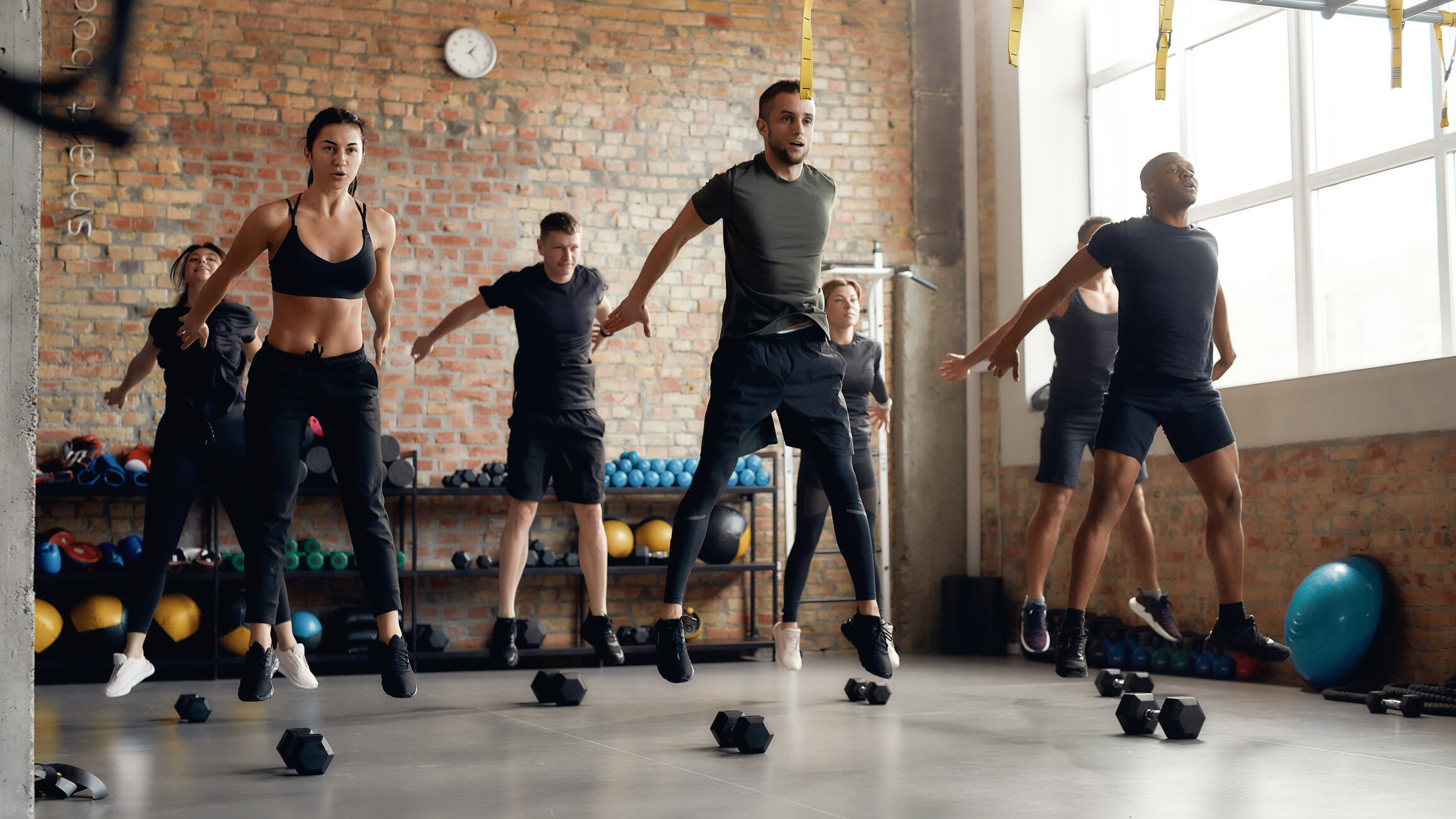
Pogo hops
Pogo hops “engage the arch and calves to activate natural elastic leg energy,” McDougall and Orton explain. By practicing these, you’ll learn to minimize ground contact while enhancing elastic energy.
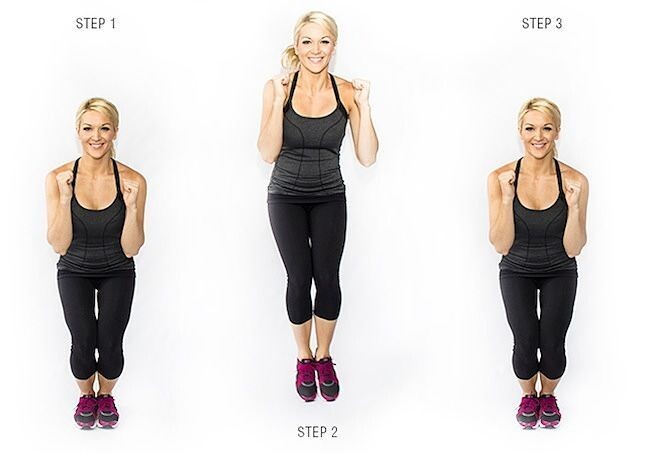
Pogo hops
Pogo hops “engage the arch and calves to activate natural elastic leg energy,” McDougall and Orton explain. By practicing these, you’ll learn to minimize ground contact while enhancing elastic energy.
Focus on getting off the ground quickly, with short bounces the goal rather than achieving height. Do these in bare feet, if possible–running shoes are OK too.
Two feet
Hop quickly up and down, jumping from your ankles with as little knee flex as possible–just like you would in a mosh pit, the authors suggest. Once you have a good pogo hop rhythm going, add some variety by jumping from side to side, front to back, and wherever your hops lead you.
Hop for 30–45 seconds or until you can no longer pogo quickly. Slow pogo hops increase ground contact time, so you want to avoid them.
One foot
Pogo just like you did before, but with one foot only.
Limit these to 10–15 and stop before you fatigue, limiting ground contact time.
(01/04/2023) ⚡AMPby Keeley Milne
Ethiopian Derara Hurisa to defend crown at 2023 Tata Mumbai Marathon
Ethiopia’s Derara Hurisa returns to defend his crown at Asia’s most prestigious Tata Mumbai Marathon on January 15, 2023, in a competitive Elite men’s field, with a dozen runners holding personal bests under the 2:08:09 course record he set in 2020.
The 18th edition of the USD 405,000 prize fund World Athletics Gold Label Road Race takes place after a two-year pandemic-forced break and will also witness over 55,000 amateurs across six categories on its much-awaited return.
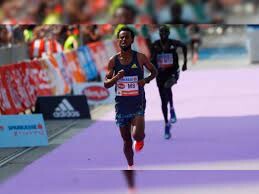
The elite men’s and women’s winners will take home USD 45,000 each. The runners will be
further incentivized by a Course Record Bonus of USD 15,000.
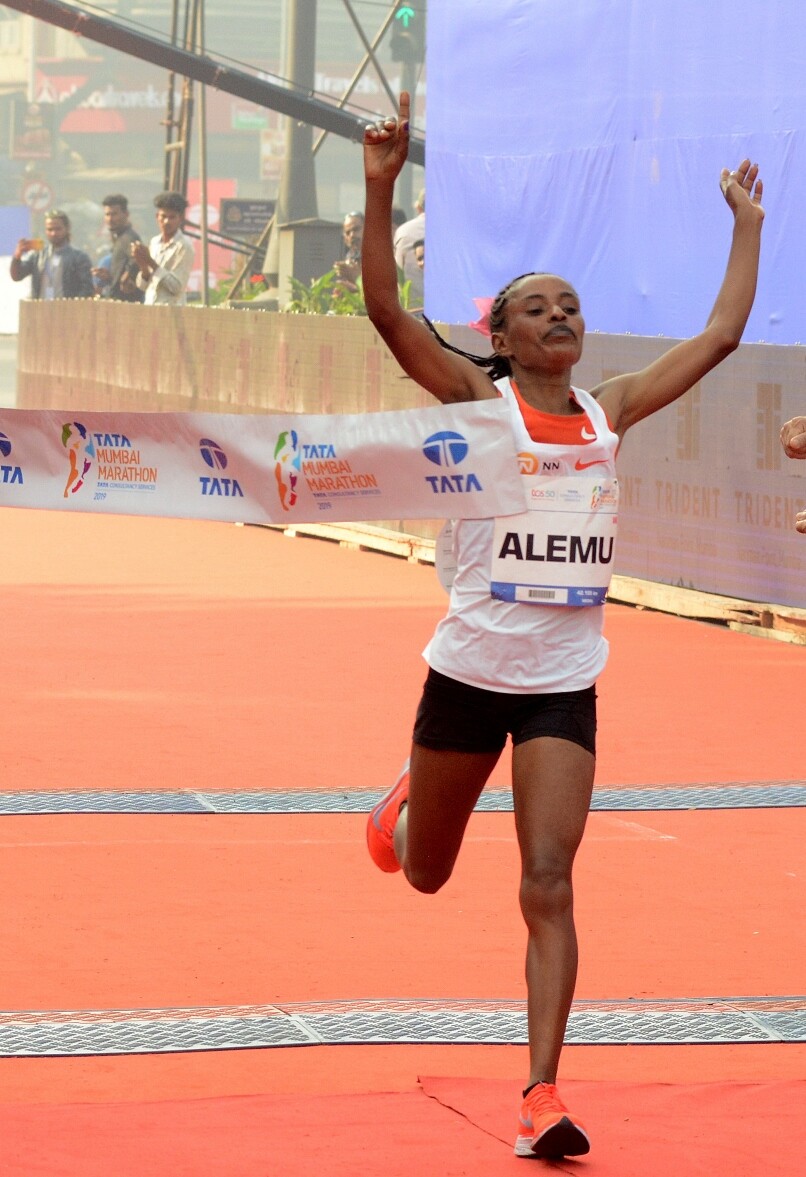
“I’m up for the challenge and have set my sights on the title,” said Hurisa, who clinched the 2021 Guadalajara Marathon in Mexico in a time of 2:12:28.
Toeing the start line in the men’s section are also Hurisa’s compatriots Ayele Abshero and
Hayle Lemi and Kenya’s Philemon Rono, a training partner of the legendary Eliud Kipchoge.
Abshero was runner-up here in 2020, 11 seconds adrift of Hurisa, on an AIMS-certified course that is widely regarded as challenging. Abshero, who finished 10th at the 2022 Linz Marathon in Austria in 2:09:37, has a personal best of 2:04:23, which makes him the fastest in the field.
With a personal best of 2:04:33, Lemi is the second fastest in the group.
“I’m excited about my first Tata Mumbai Marathon. I’ve heard it’s a tough course,” said Lemi, winner of seven marathons, including the Boston Marathon in 2016 and Dubai in 2015. “It’s a tremendous field and is going to be close,” added the Ethiopian, a.k.a. Lemi Berhanu, who was runner-up in the 2021 Boston Marathon.
Rono finished an impressive sixth at the 2019 Boston Marathon and won the Toronto Marathon the same year in 2:05:00. He recorded sixth-place finishes at the 2021 Abu Dubai Marathon and the 2022 Seoul Marathon.
Chepkech, the dark horse
In the women’s field, seven runners hold personal bests under the course record of 2:24:33 set by Valentine Kipketer in 2013, with Dera Dida (Ethiopia), Sharon Cherop (Kenya) and Rahma Tusa (Ethiopia) leading the charge on their debut here.
Silver medalist at the 2019 World Cross Country Championships, Dida won bronze in 10,000m at the 2019 African Games. In 2022, she won the Bejaia Half Marathon in 71:17 and finished eighth at the Great Ethiopian Run 10K.
“The Tata Mumbai Marathon has been on my running bucket list for some time. I’ve heard the people of Mumbai and India are very passionate about the running festival, and I look forward to this experience,” Dida said.
Cherop won marathon bronze at the 2011 World Championships and emerged victorious at the 2012 Boston Marathon. In 2022, she finished third at the Nairobi Marathon and the Buenos Aires Marathon.
Tusa took fourth place at the 2022 Sydney Marathon in 2:26:30 and the 2021 Valencia Marathon (in 2:23:20). She was fifth at the 2018 New York Marathon and won in Rome the same year.
Kenya’s Sheila Chepkech, also a first-timer in Mumbai, is the dark horse here. She won the 2022 Nairobi Marathon in 02:27:04. Previously, she finished second at the 2018 Milan Marathon and the 2017 Kosice Marathon. Also in the fray is the 2019 winner Worknesh Alemu of Ethiopia.
Vivek Singh, Jt MD, race promoter Procam International, said: “A truly world-class field will descend in Mumbai for the Tata Mumbai Marathon, a reflection of the event’s stature as one of the top 10 marathons in the world. The TMM returns bigger and better, and the spirit of #HarDilMumbai will burst to life come race day, with runners taking part across six categories.”
International Elite field:
Men:
Derara Hurisa (ETH) 2.08.09 (Course Record holder)
Ayele Abshero (ETH) 2.04.23
Hayle Lemi (ETH) 2.04.33
Philemon Rono (KEN) 2.05.00
Kebede Wami (ETH) 2.06.03
Aychew Bantie (ETH) 2.06.23
Hailu Zewdu (ETH) 2.06.31
Merhawi Kesete (ERI) 2:06:36
Masresha Bere (ETH) 2.06.44
Okubay Tsegay (ERI) 2.06.46
Reuben Kerio (KEN) 2.07.00
Hosea Kiplimo (KEN) 2.07.39
Abdela Godana (ETH) 2.08.06
John Langat (KEN) 2.09.46
Abida Ezamzamil (MOR) 2.09.52
Mesfin Nigusu (ETH) 2.09.53
Augustine Choge (KEN) 2.20.53
Women:
Dera Dida (ETH) 2.21.45
Sharon Cherop (KEN) 2.22.28
Rahma Tusa (ETH) 2.23.20
Sifan Melaku (ETH) 2.23.49
Adanech Anbesa (ETH) 2:24:07
Zinah Senbeta (ETH) 2.24.21
Ayantu Kumela (ETH) 2.24.29
Worknesh Alemu (ETH) 2.24.42
Letebrhan Haylay (ETH) 2.24.47
Zenebu Fikadu (ETH) 2.25.11
Rodah Tanui (KEN) 2.25.46
Kumeshi Sichala (ETH) 2.26.01
Lemeneh Kasu Bitew (ETH) 2.26.18
Sheila Chepkech (KEN) 2.27.04
Beshadu Birbirsa (ETH) 2.30.03
Gode Chala (ETH) 2.33.22
Anchalem Haymanot (ETH) Debut.
(01/04/2023) ⚡AMPby Sports Africa
Tata Mumbai Marathon
Distance running epitomizes the power of one’s dreams and the awareness of one’s abilities to realize those dreams. Unlike other competitive sports, it is an intensely personal experience. The Tata Mumbai Marathon is One of the World's Leading Marathons. The event boasts of fundraising platform which is managed by United Way Mumbai, the official philanthropy partner of the event. Over...
more...You cannot perform well in a polluted environment Says Eliud Kipchoge
Protecting the environment is a priority for many in 2023, and athletes like Eliud Kipchoge are leading the way.
In 2020, the Kenyan double Olympic gold medalist and world record holder adopted 50 hectares of forest land in the Kaptagat Forest near where he spends most of the year training at high altitude.
“If you train in a polluted environment, then you cannot perform,” marathon great Kipchoge told the BBC from his homeland.
“Kaptagat Forest made a huge difference in my career. I’ve been here for the last 20 years and without this forest, and staying in the area, I think that I could not be where I am today.”
“I realized that the only way to perform and to actually enjoy running is by training in a good place, breathing clean air.”
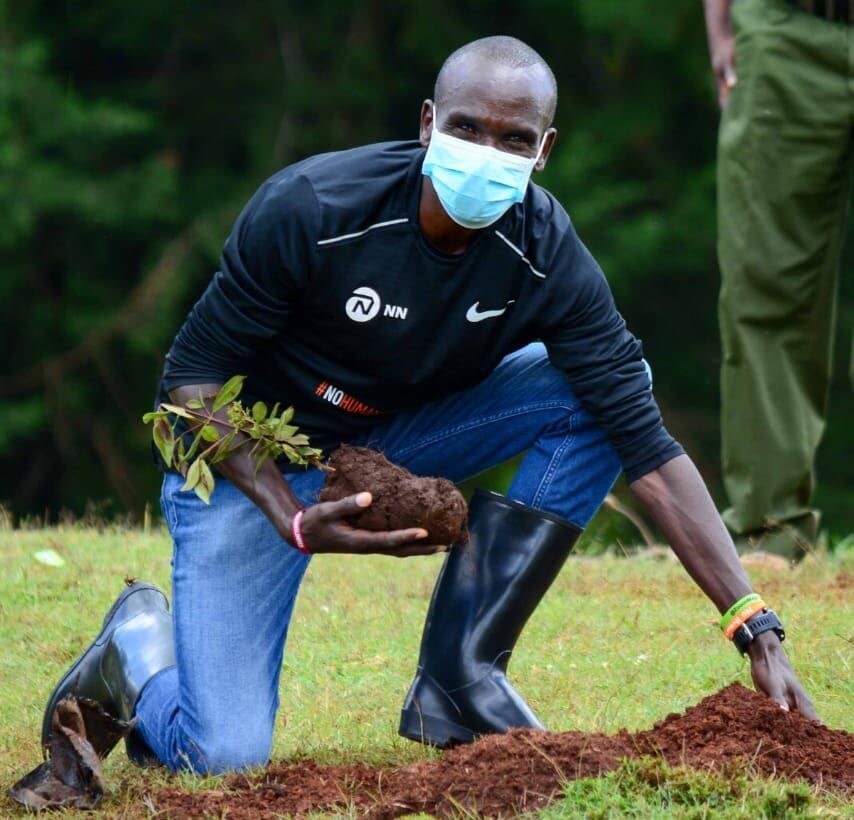
A year later, the distance-running great decided to create a foundation that focused on education and the environment, including planting trees.
To date, Kipchoge has adopted 130 hectares of forest, and claims that it’s ‘just the start’.
His wider goals include adopting a forest in every country in which he would plant indigenous trees.
Kipchoge revealed the principles he employs in his daily routine in order to help protect the environment, in an interview with Olympics.com for Earth Day 2022:
“Every day is Earth day for me,” Kipchoge told Olympics.com.
“I have improved my lifestyle to help fight climate change. I walk more, I minimize my water usage and I always try to encourage others to plant a tree on an important day or anniversary.
"My daily green effort is walking. I walk as much as I can instead of driving everywhere, so I can minimize my emissions."
Creating Africa’s Olympic Forest
Protecting the environment is also an area of focus for the International Olympic Committee (IOC).
In 2021, the IOC started an initiative to grow 590,000 native trees across approximately 90 villages in Mali and Dakar 2026 Youth Olympic Games host nation Senegal.
The Olympic Forest is an important element of the IOC’s strategy to address climate change, which includes cutting emissions in line with the Paris Agreement, and reducing the impact of the organisation’s footprint. With an end-goal to become climate positive, the IOC is set to cut its emissions 30 percent by 2024 and 50 percent by 2030, and compensate more than its remaining emissions.
While planting trees will help to protect the environment, the project also aims to create wider social and economic benefits for communities in Mali and Senegal that are heavily impacted by droughts and floods.
(01/04/2023) ⚡AMP

